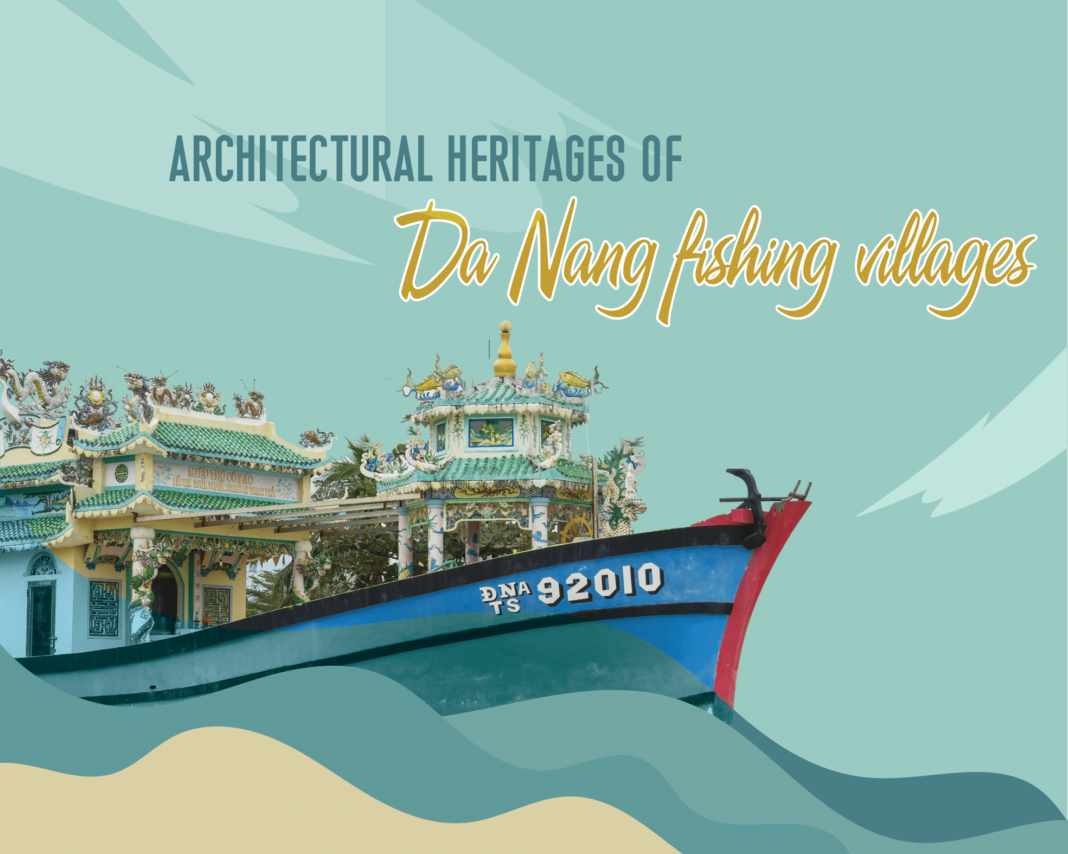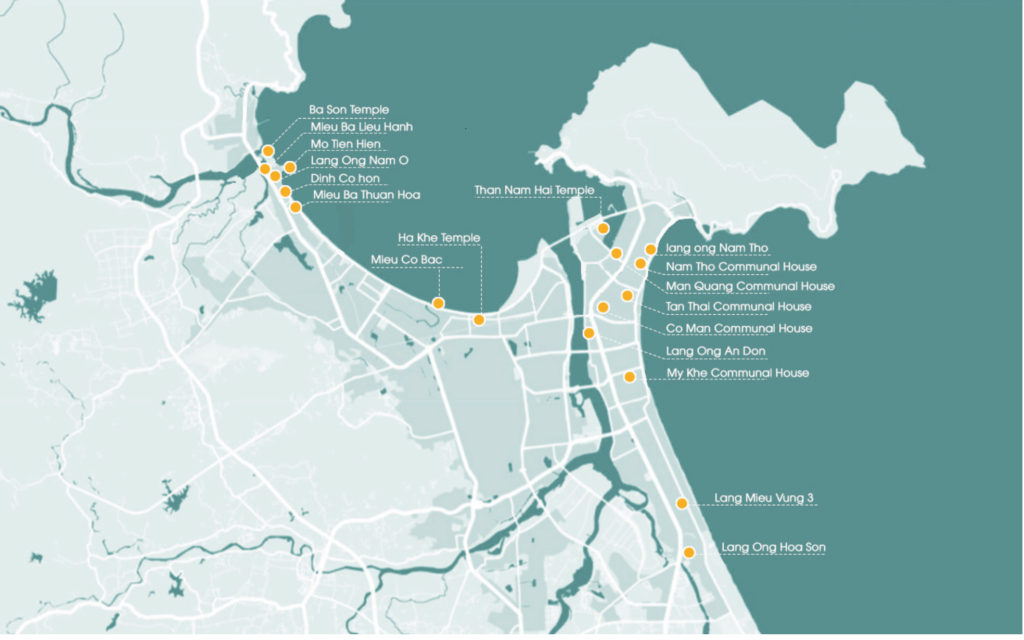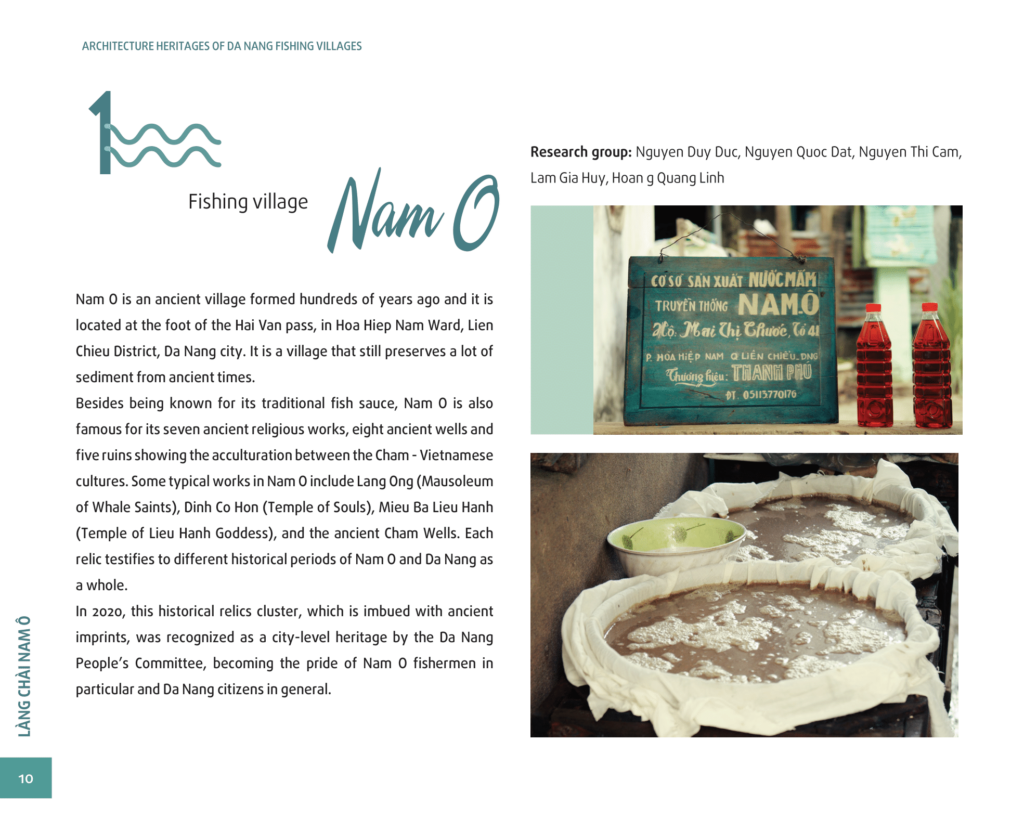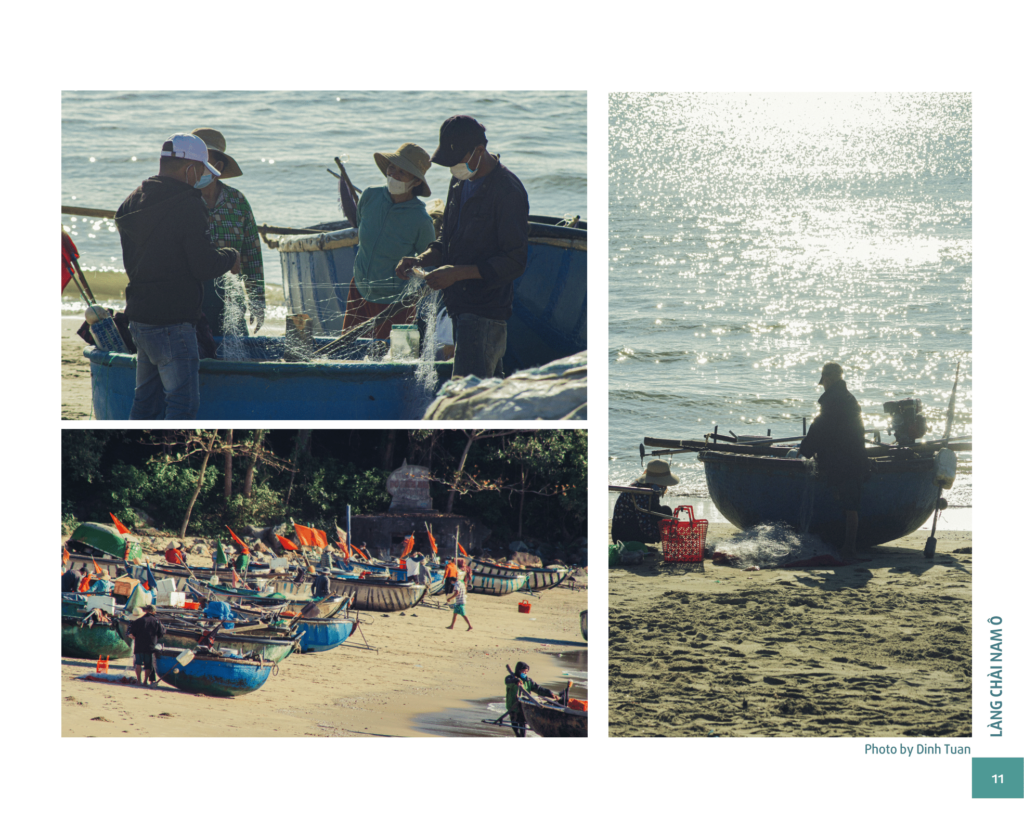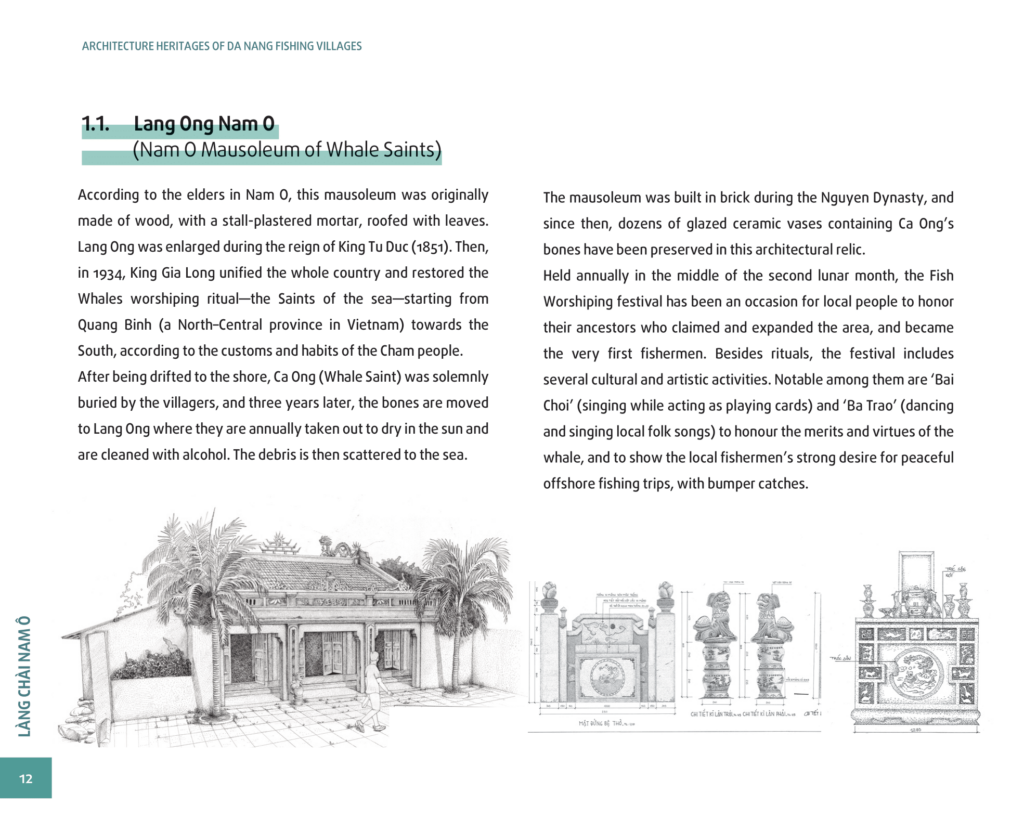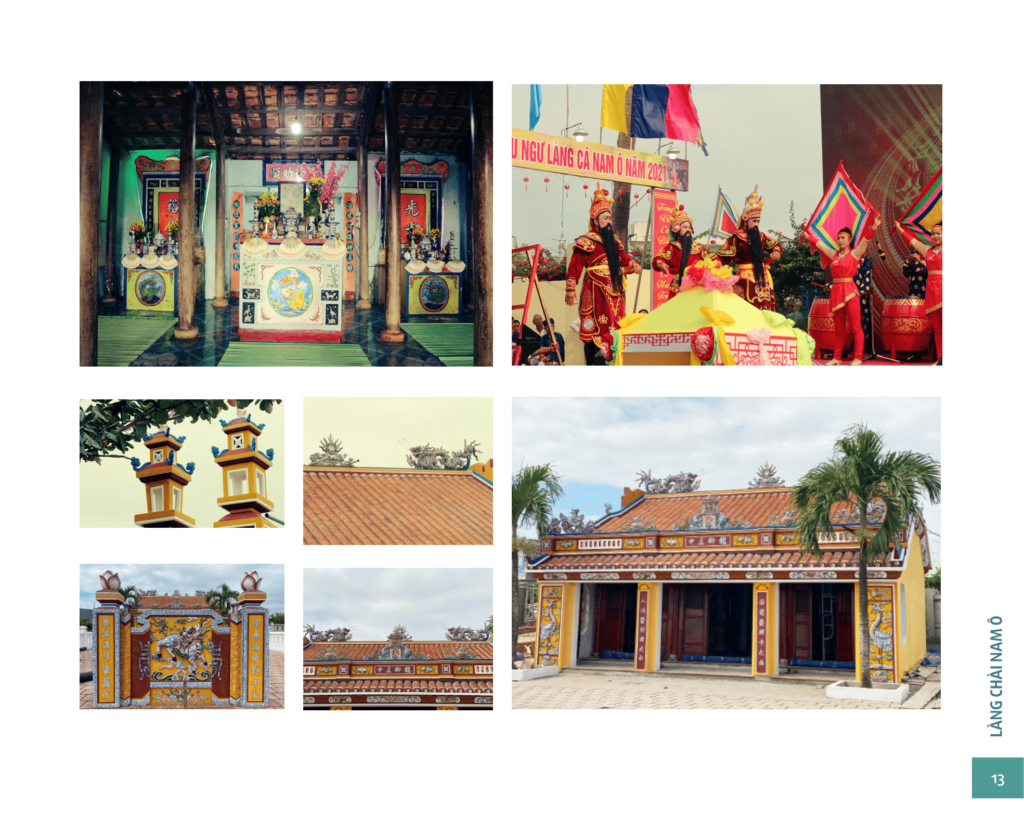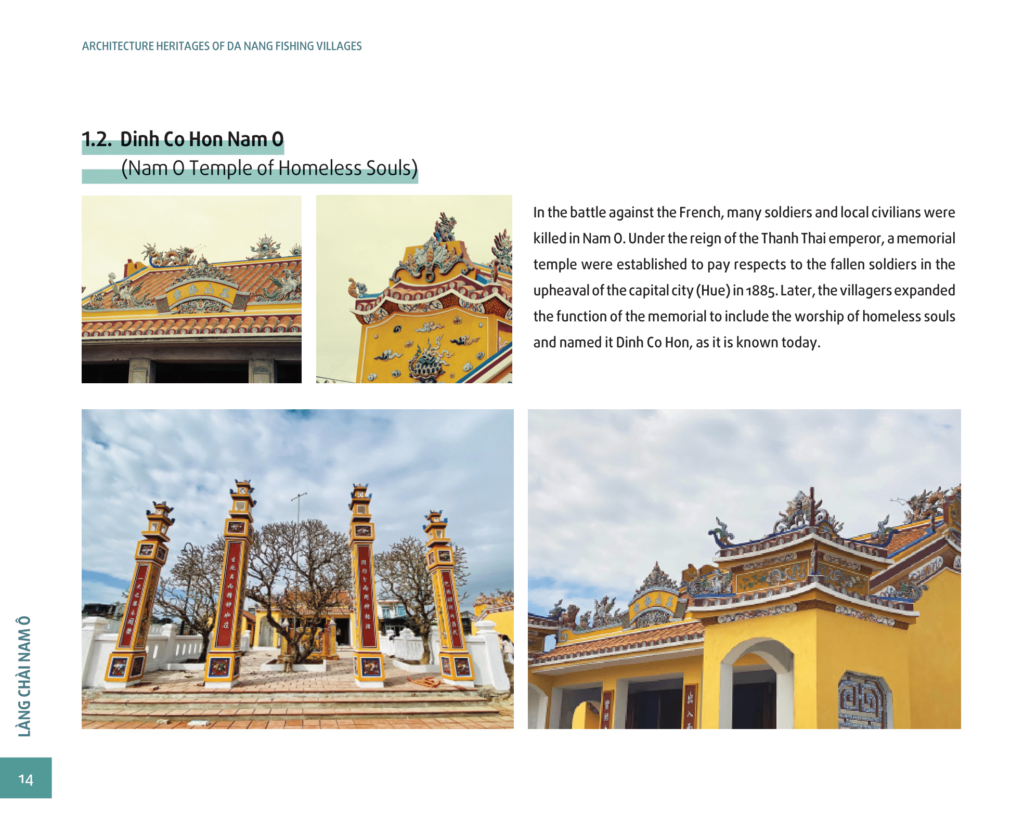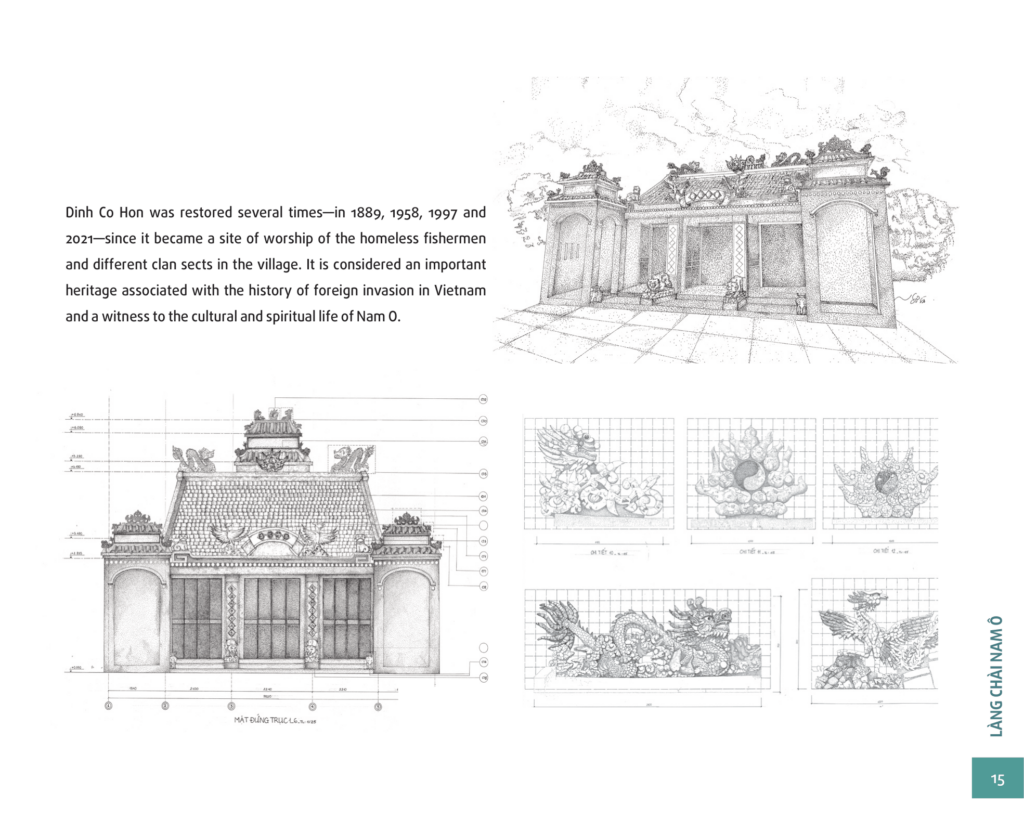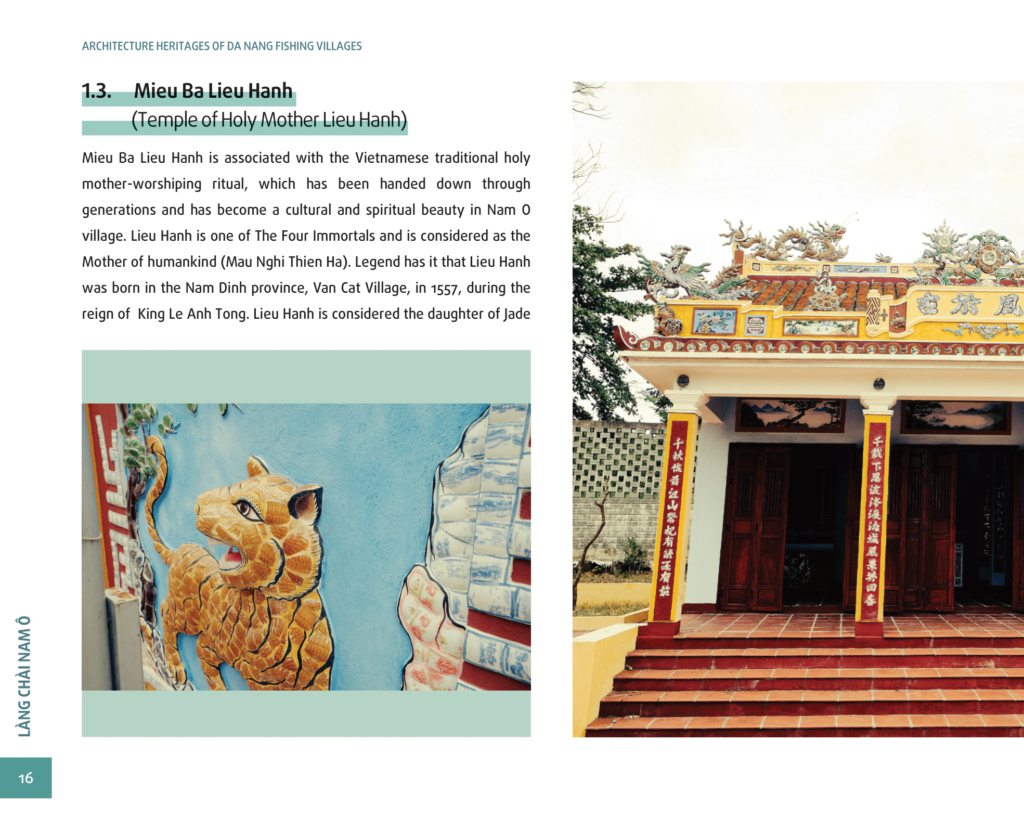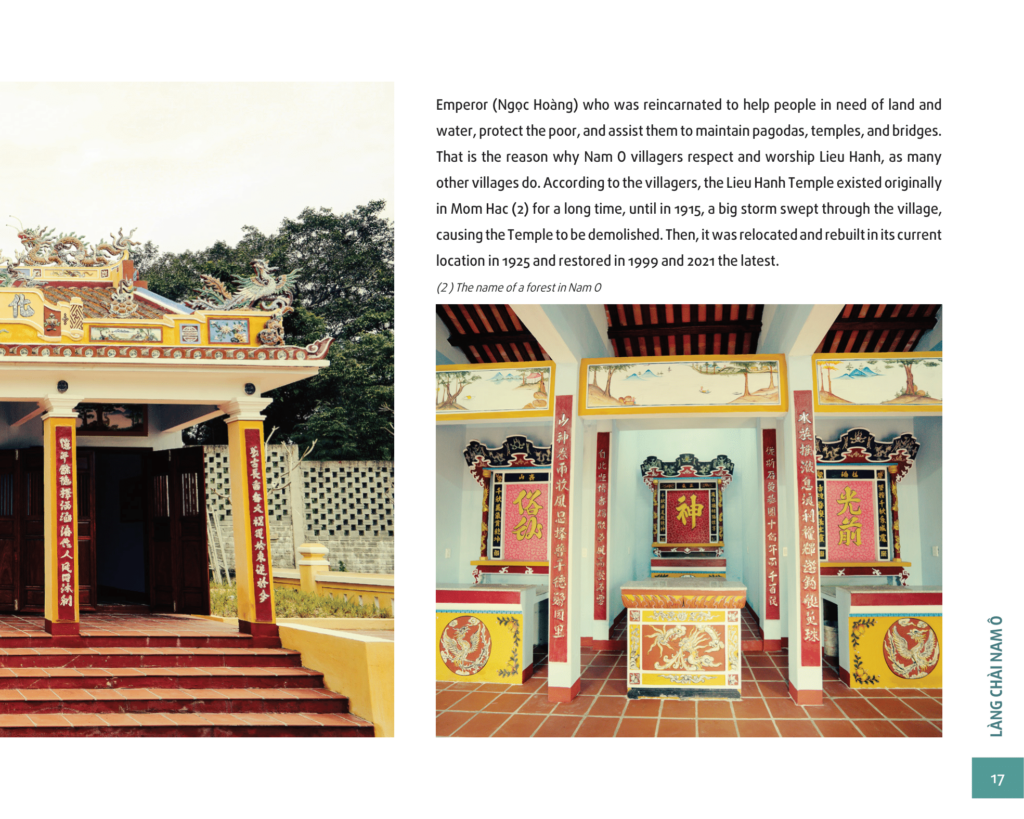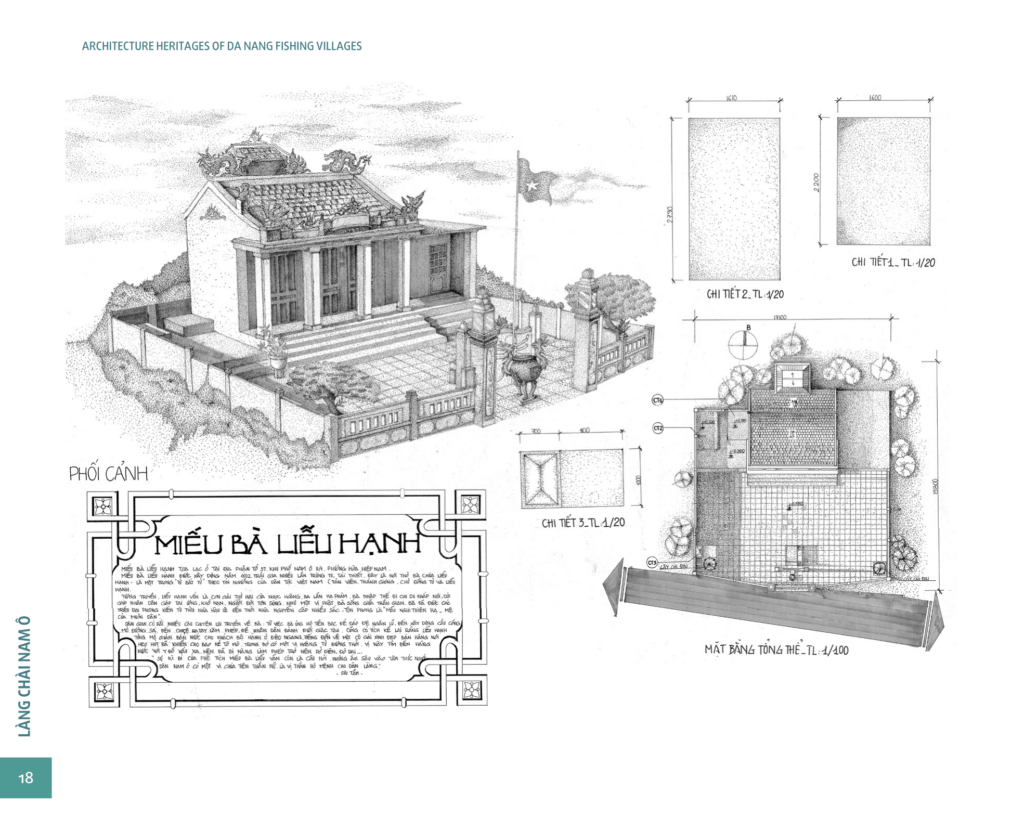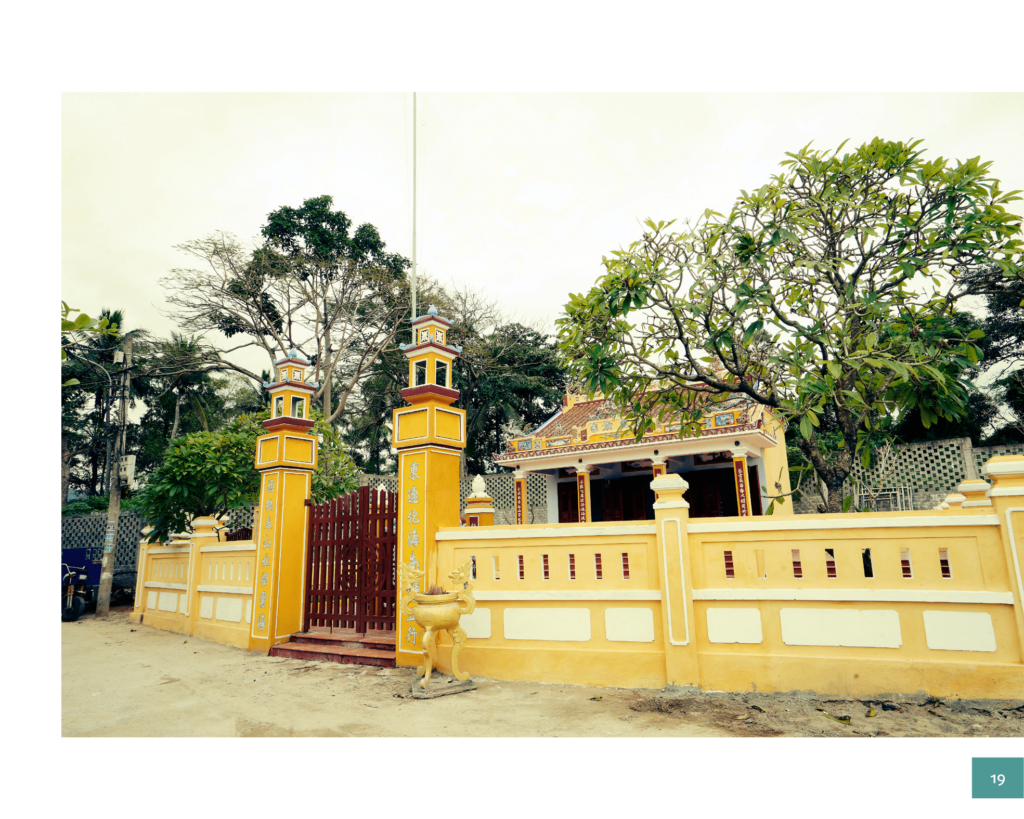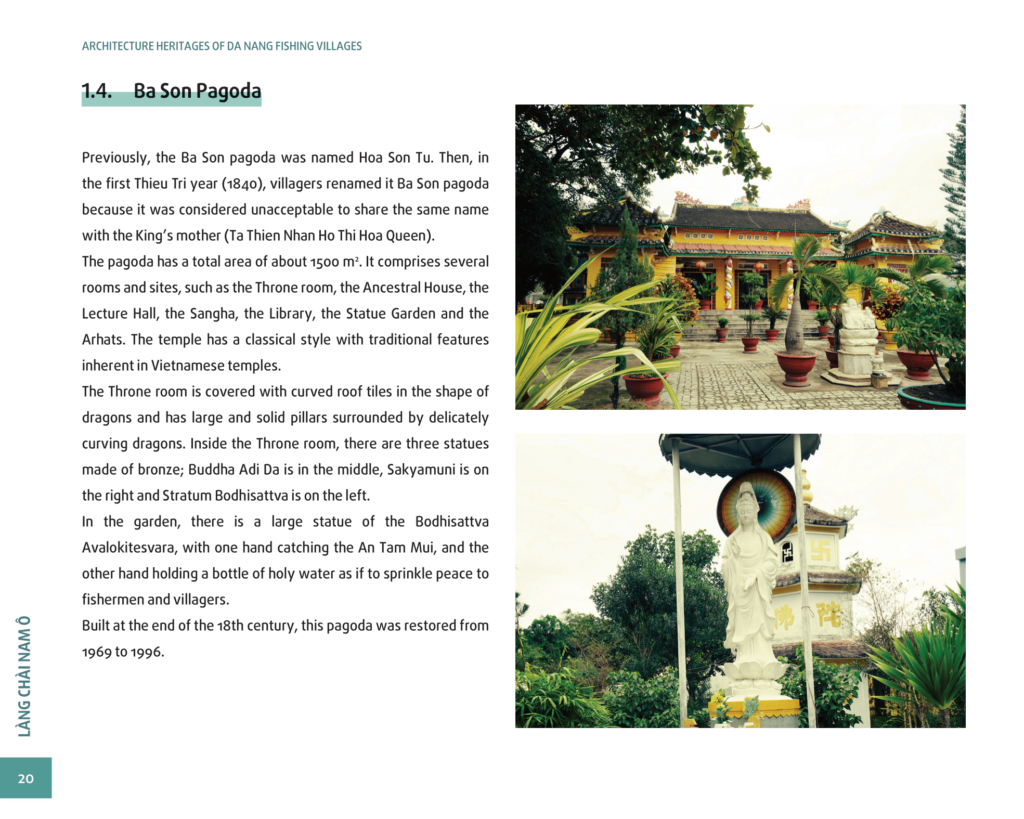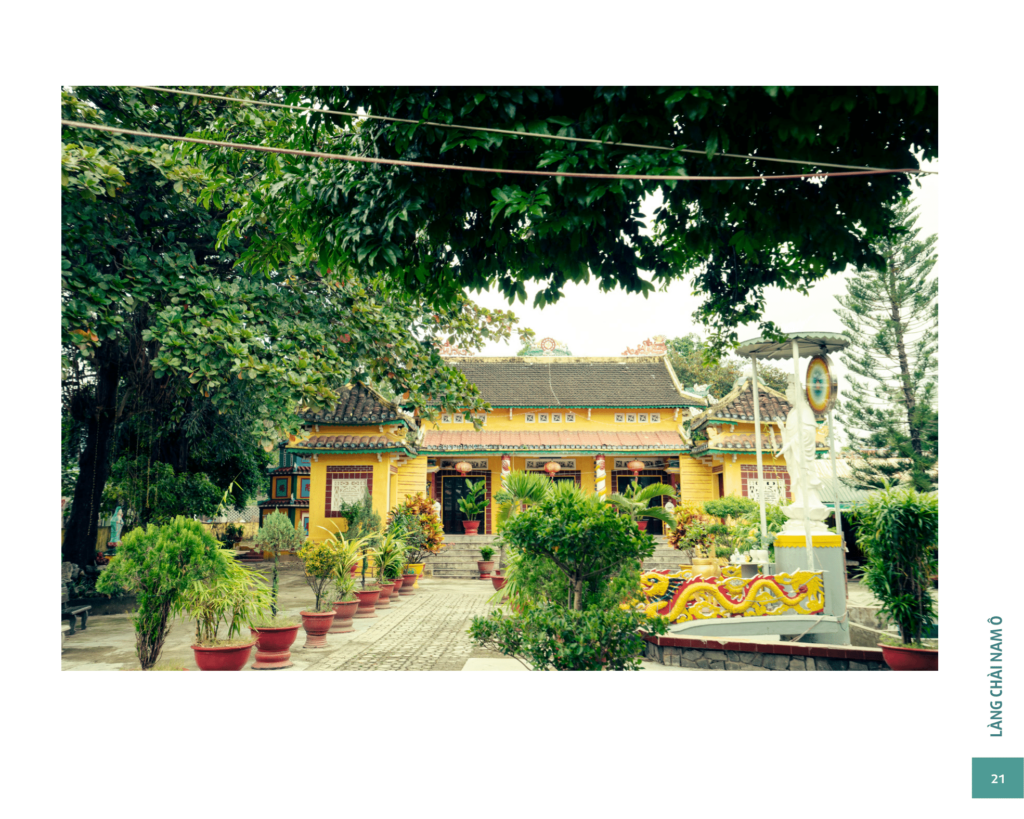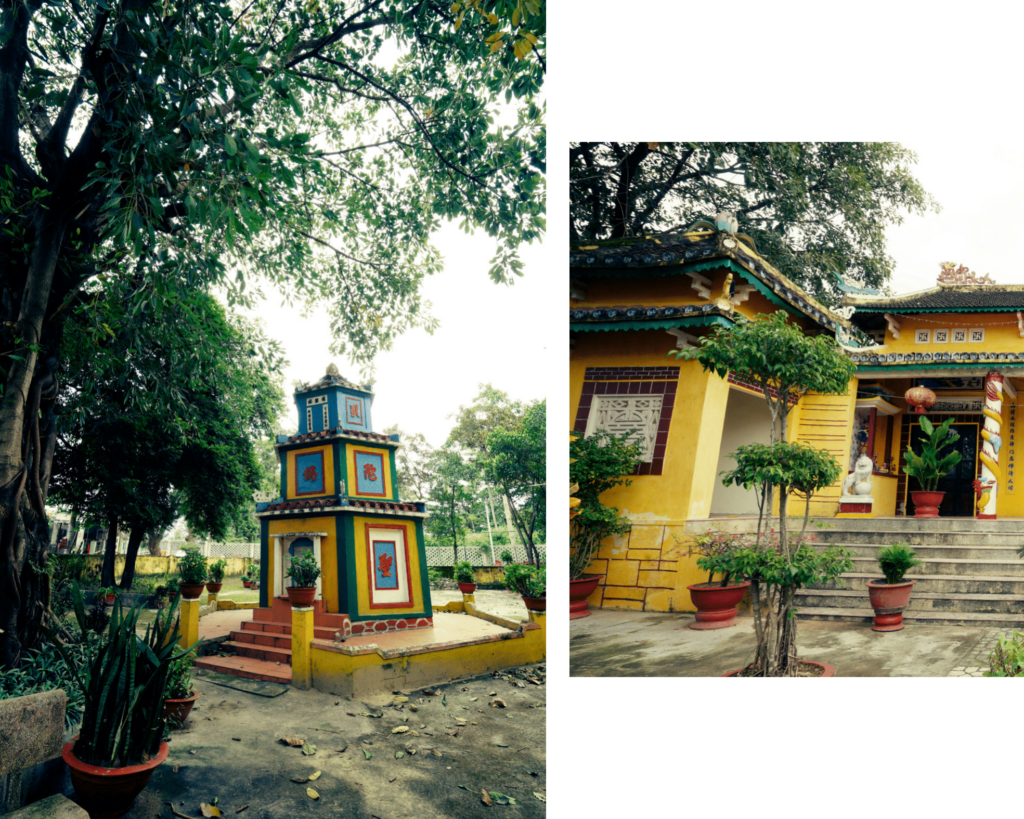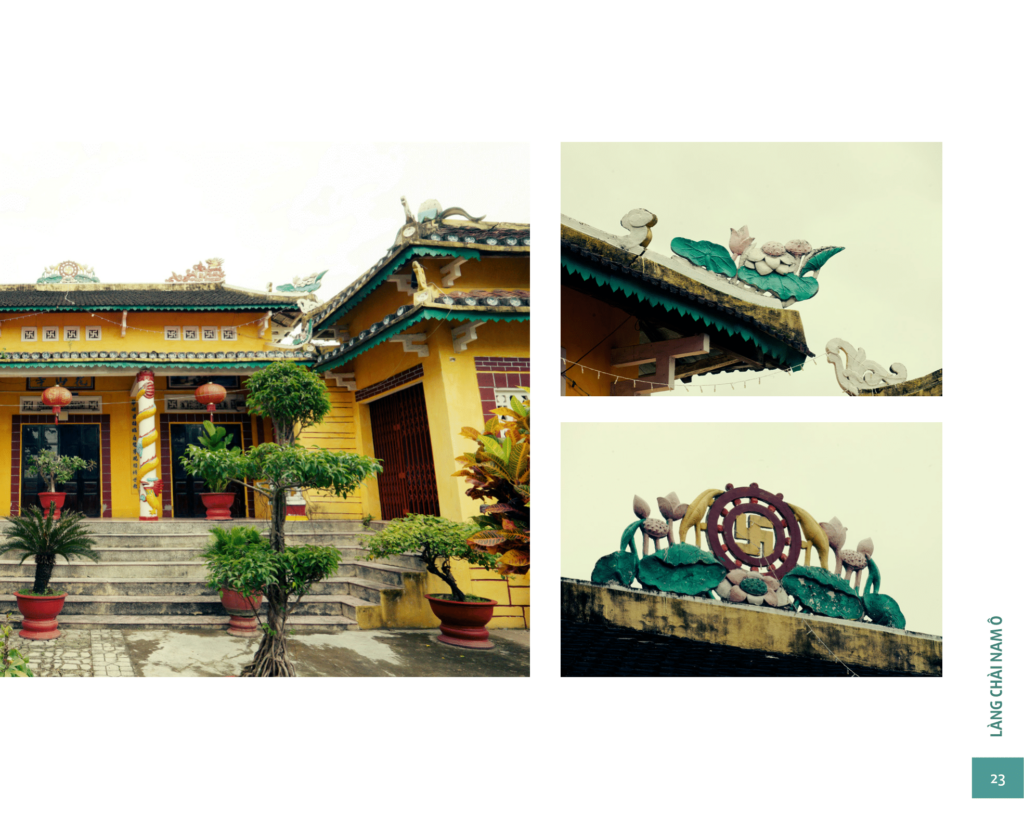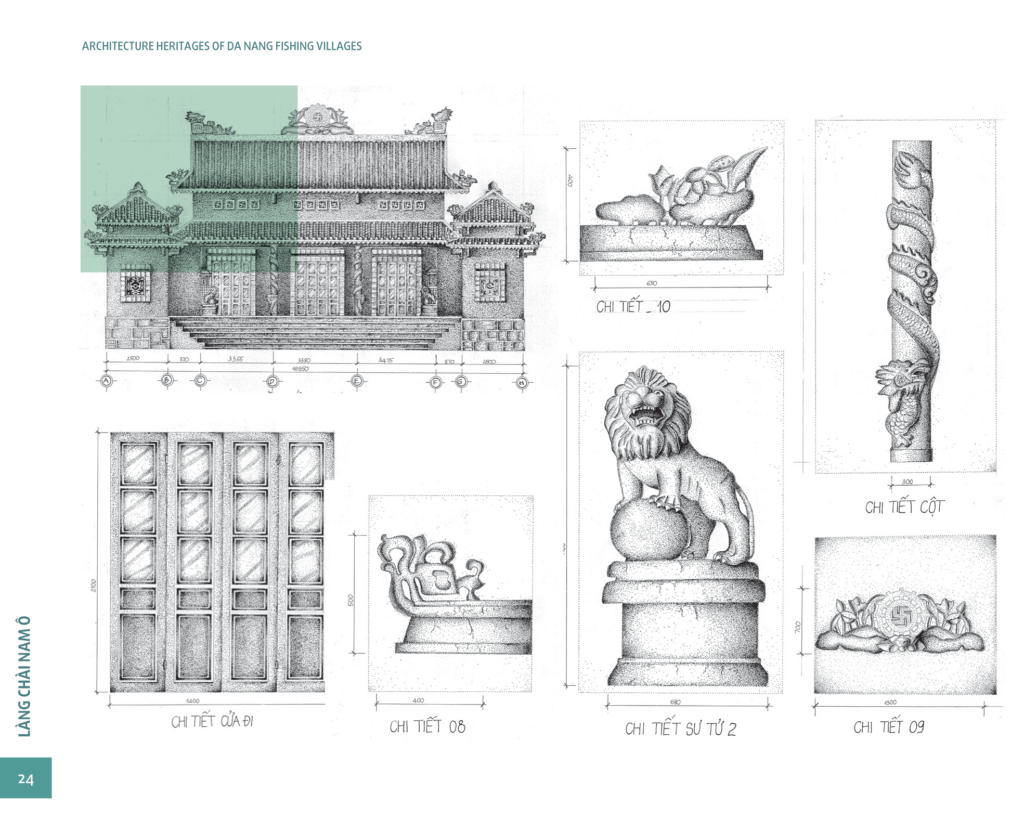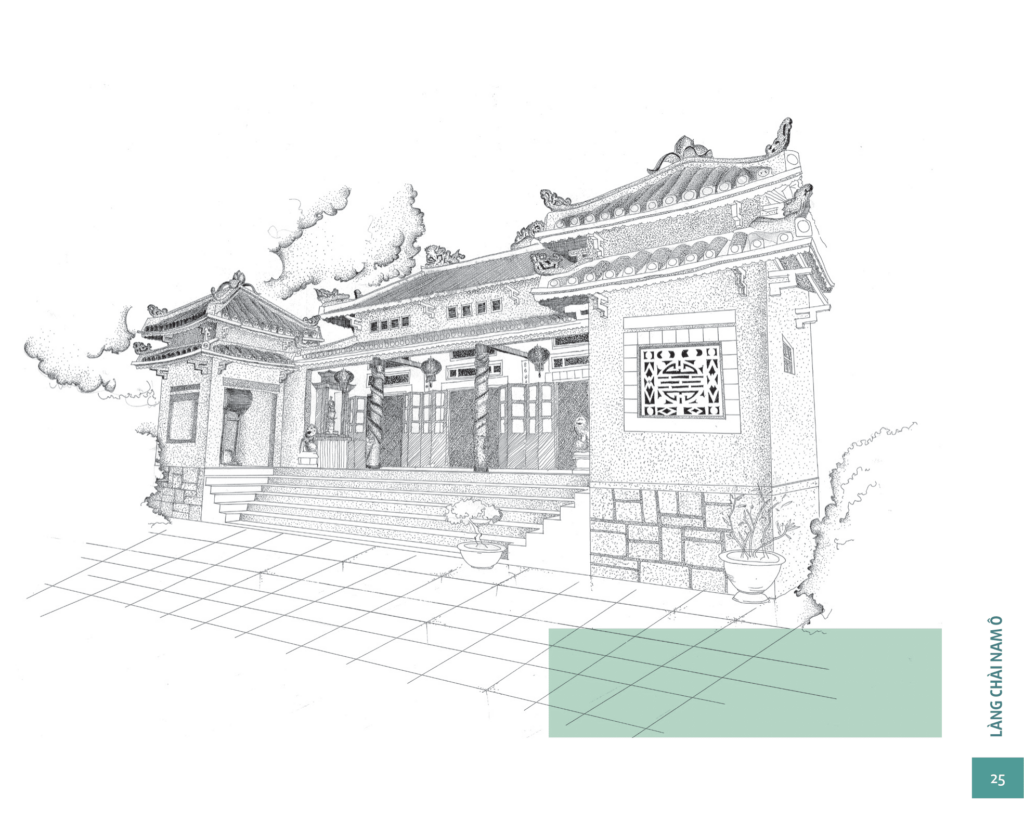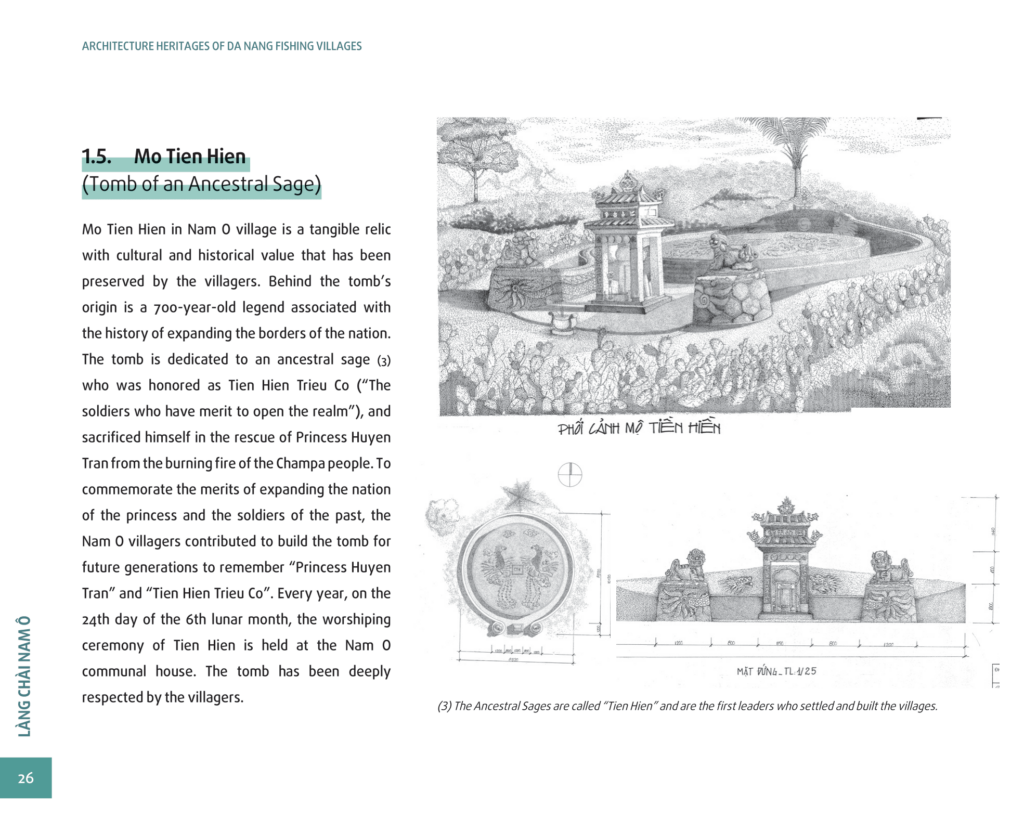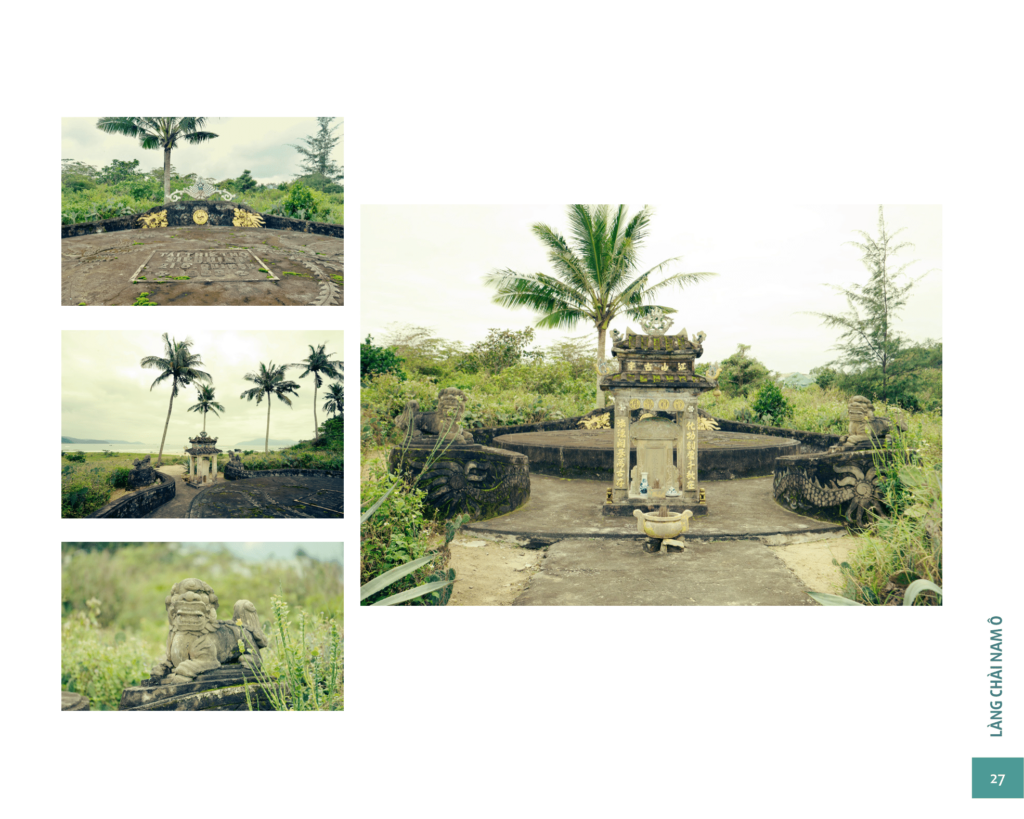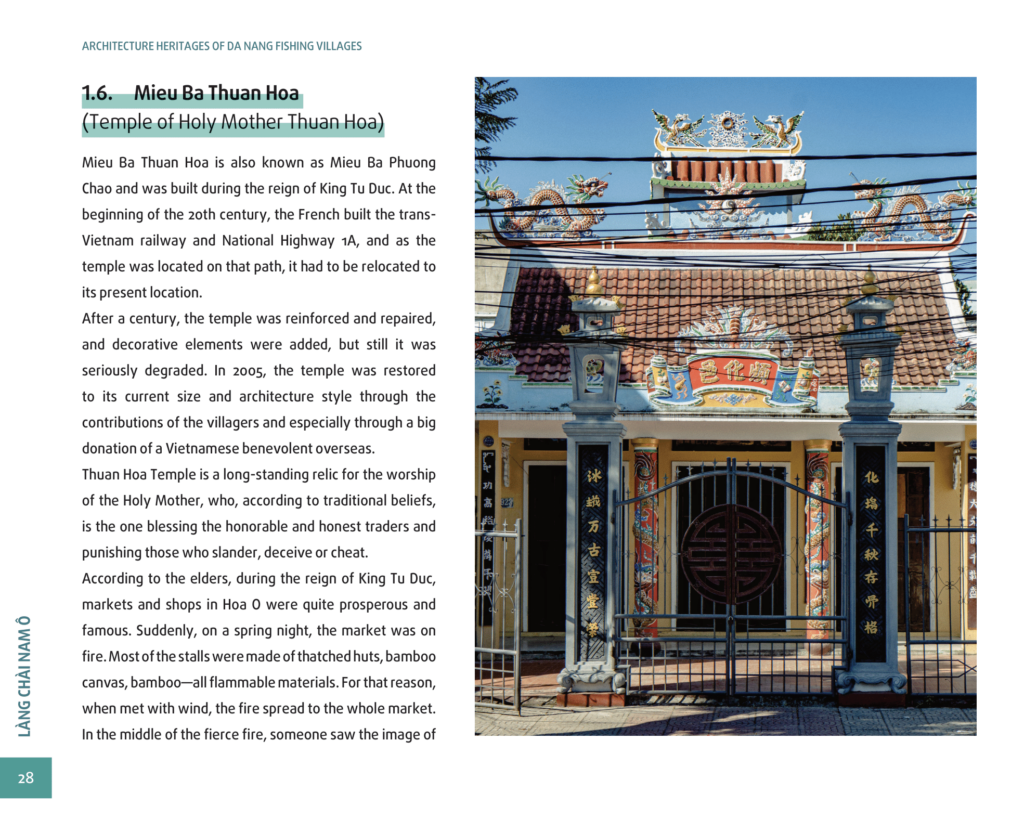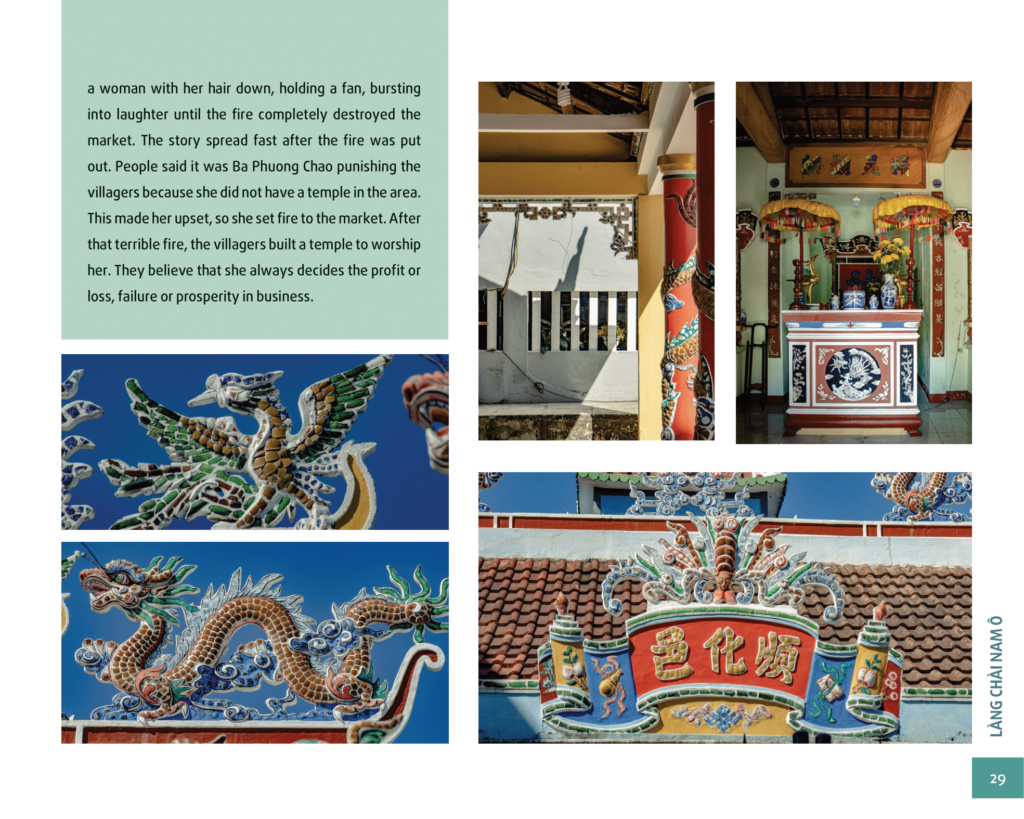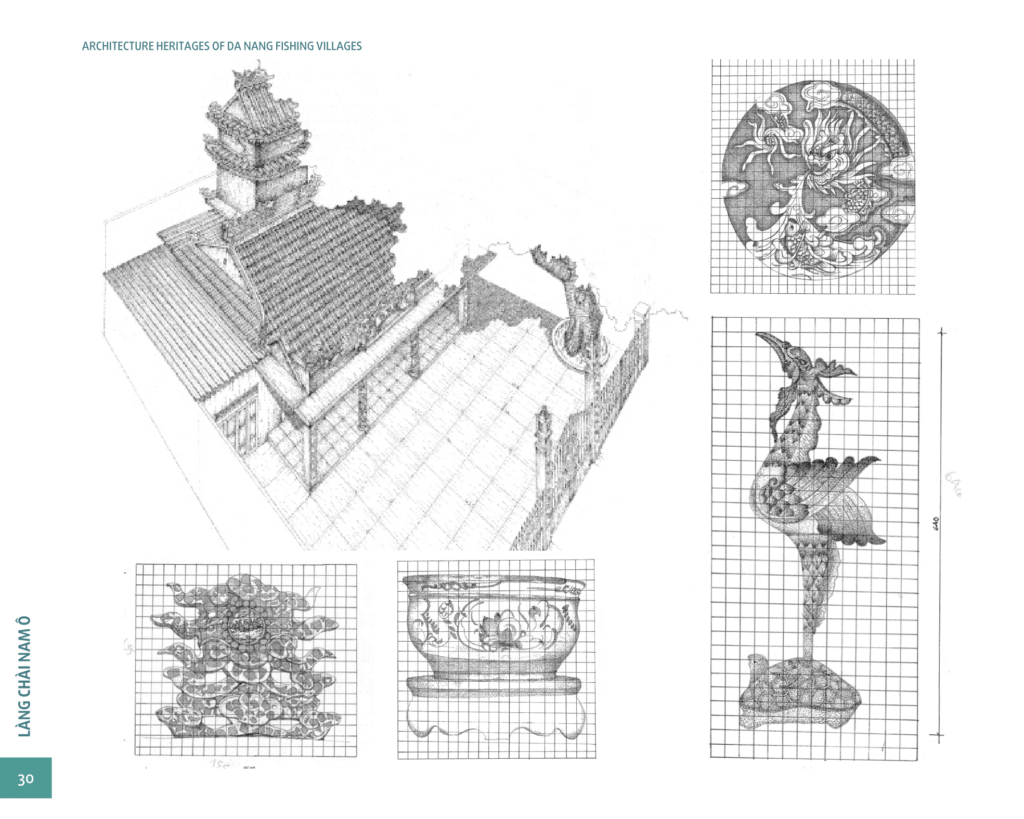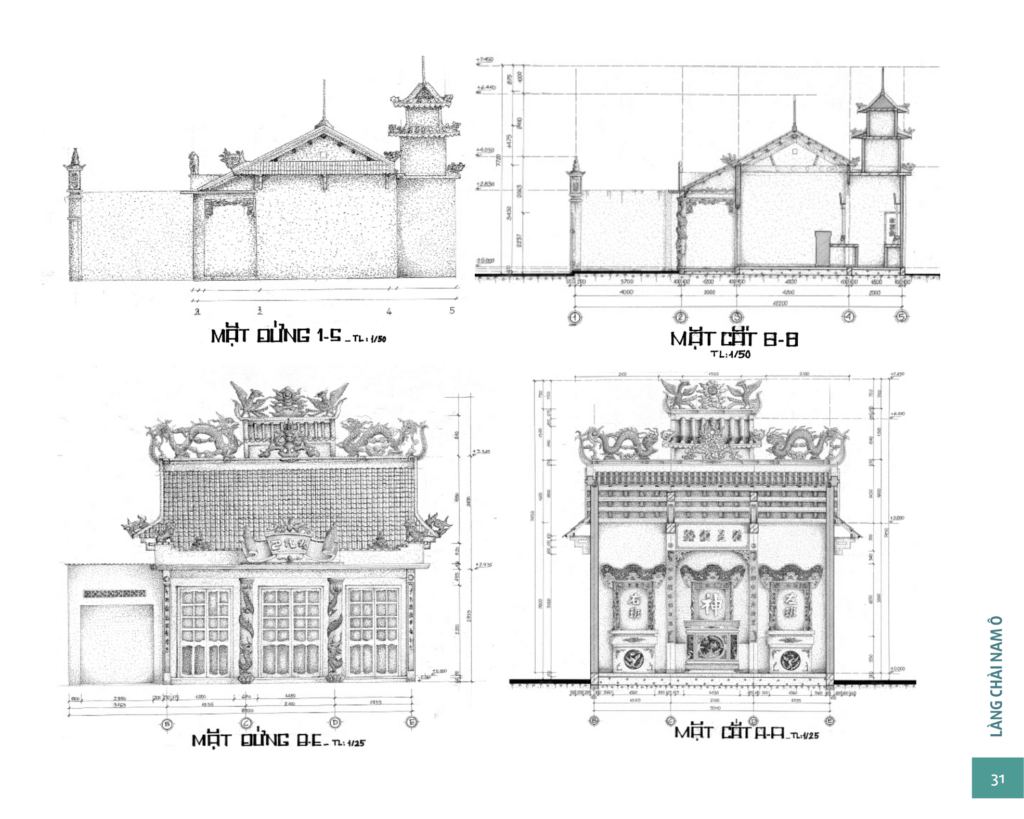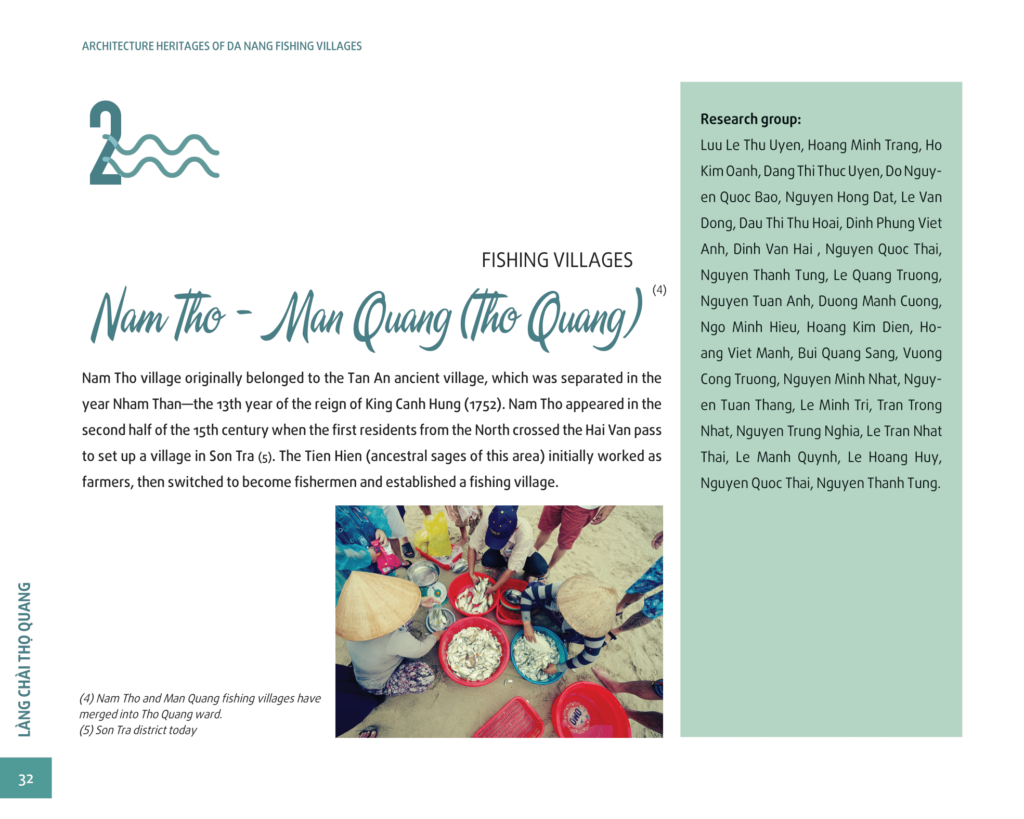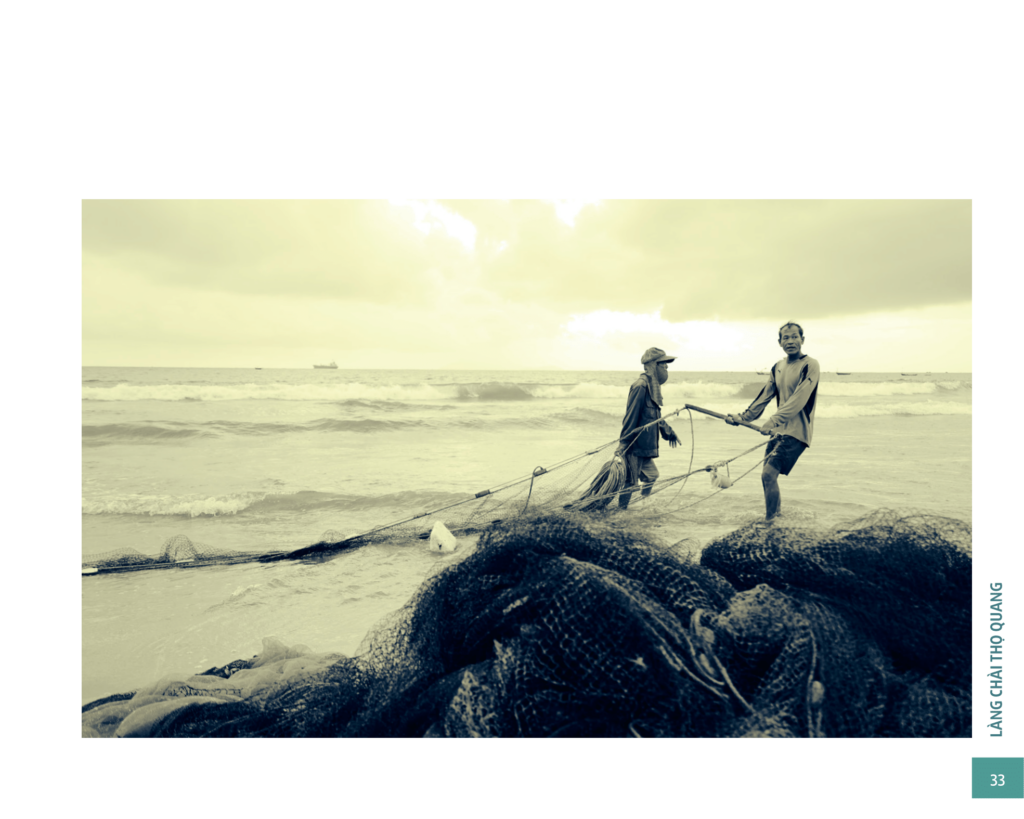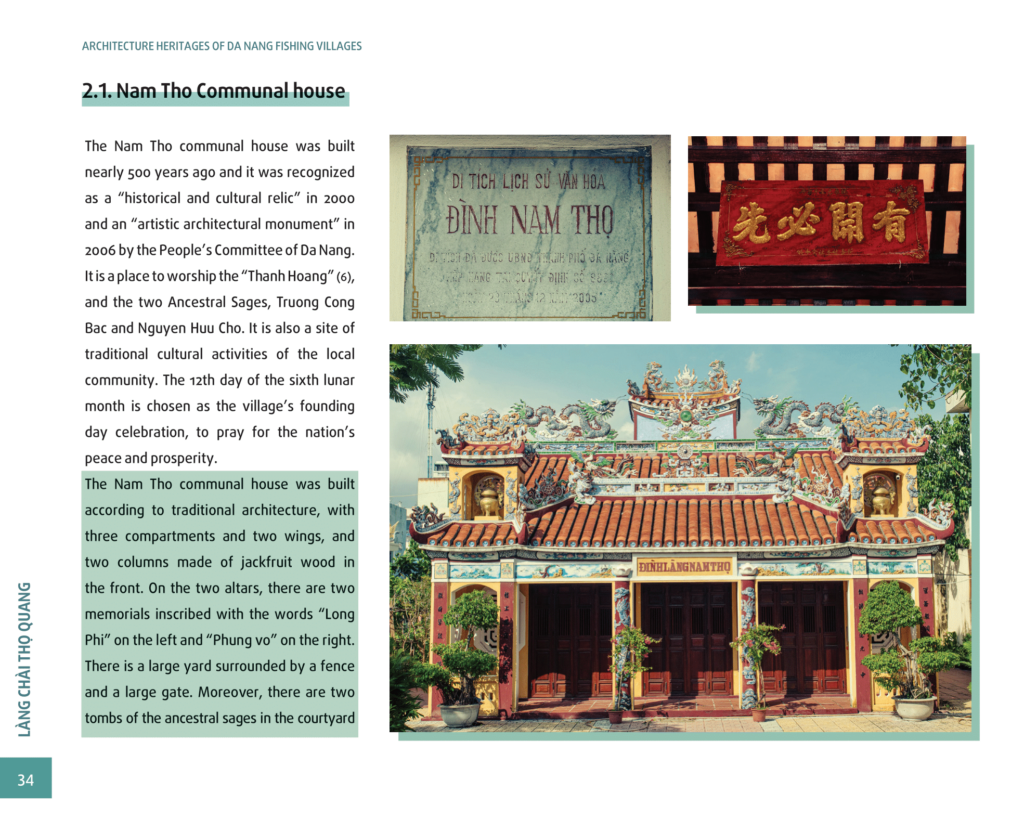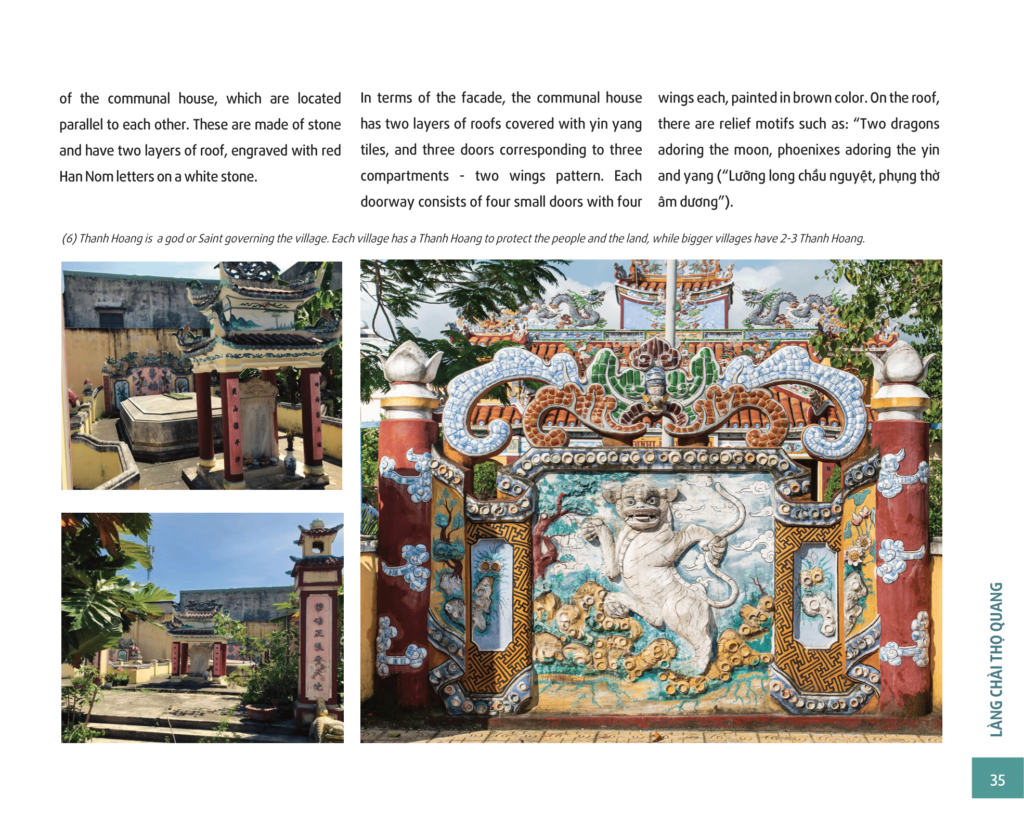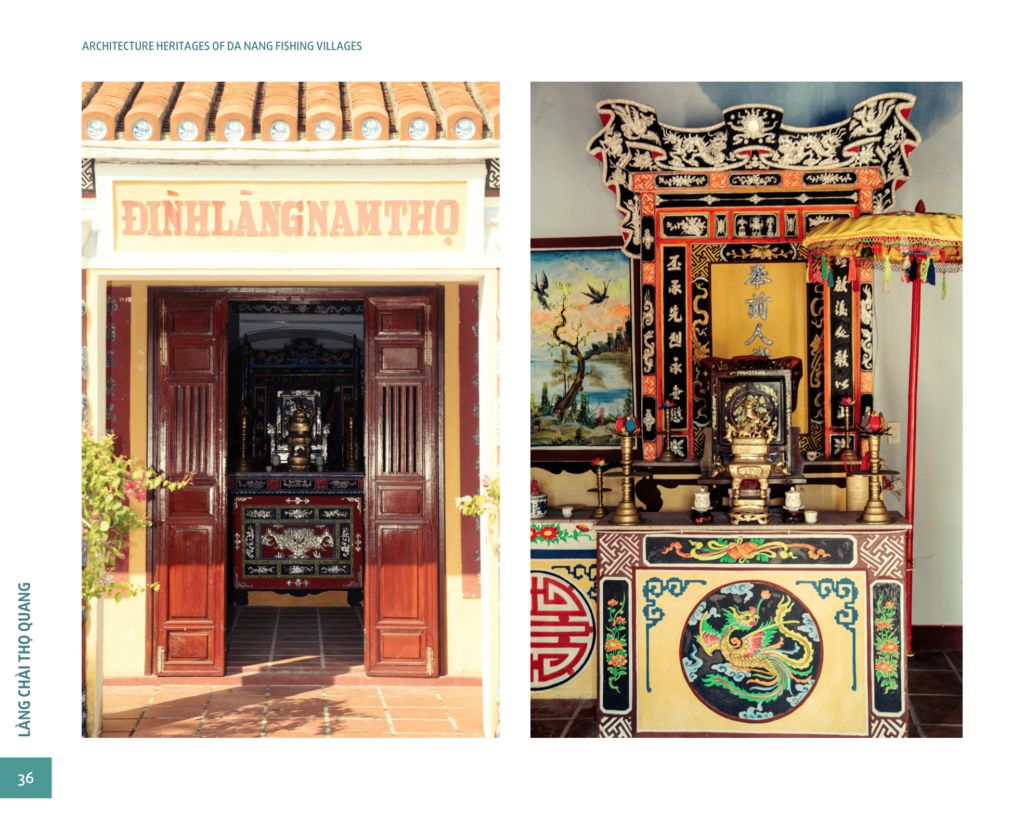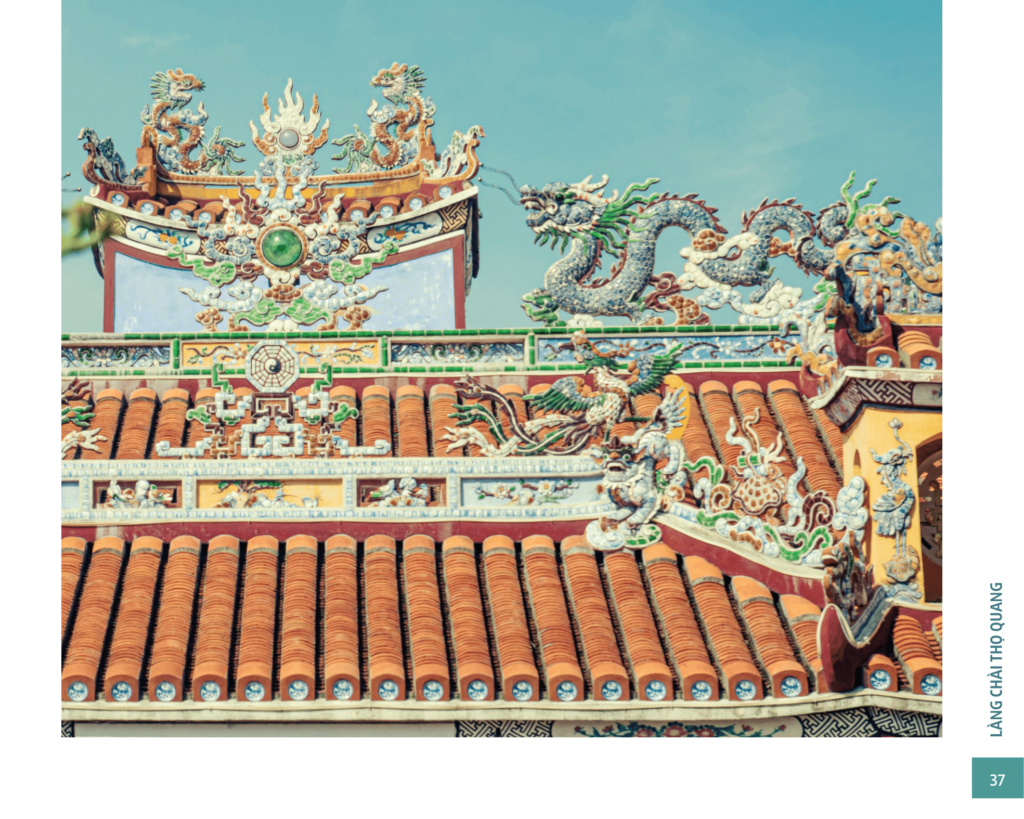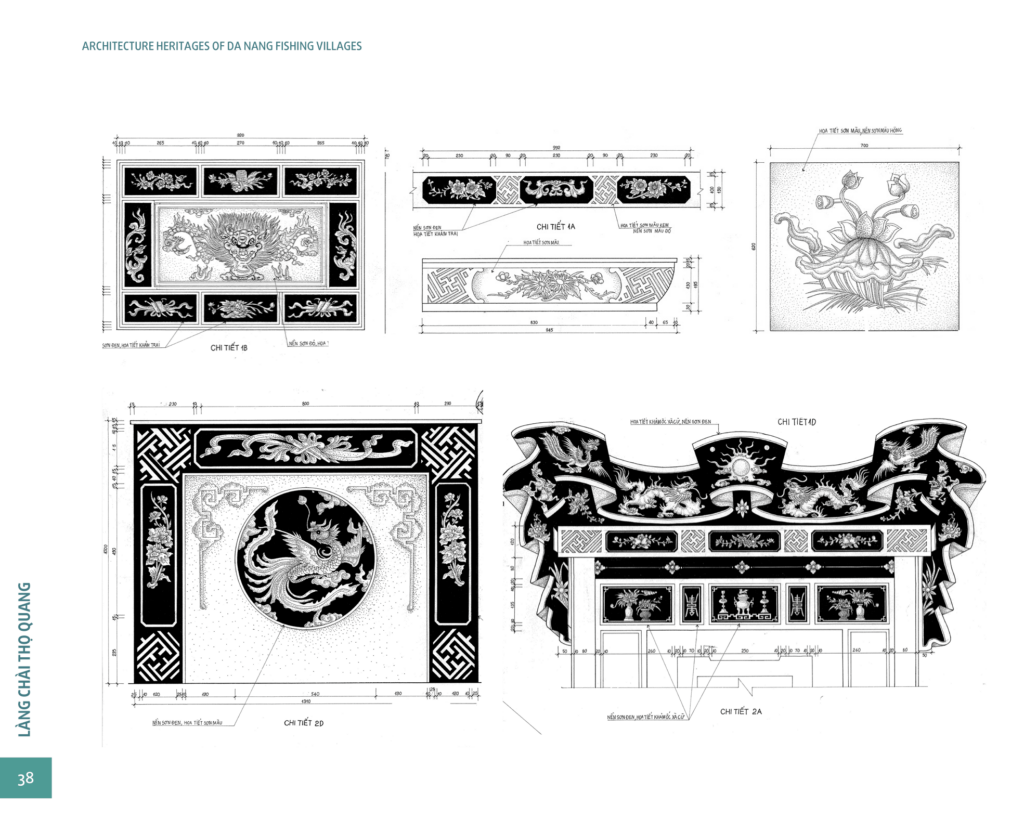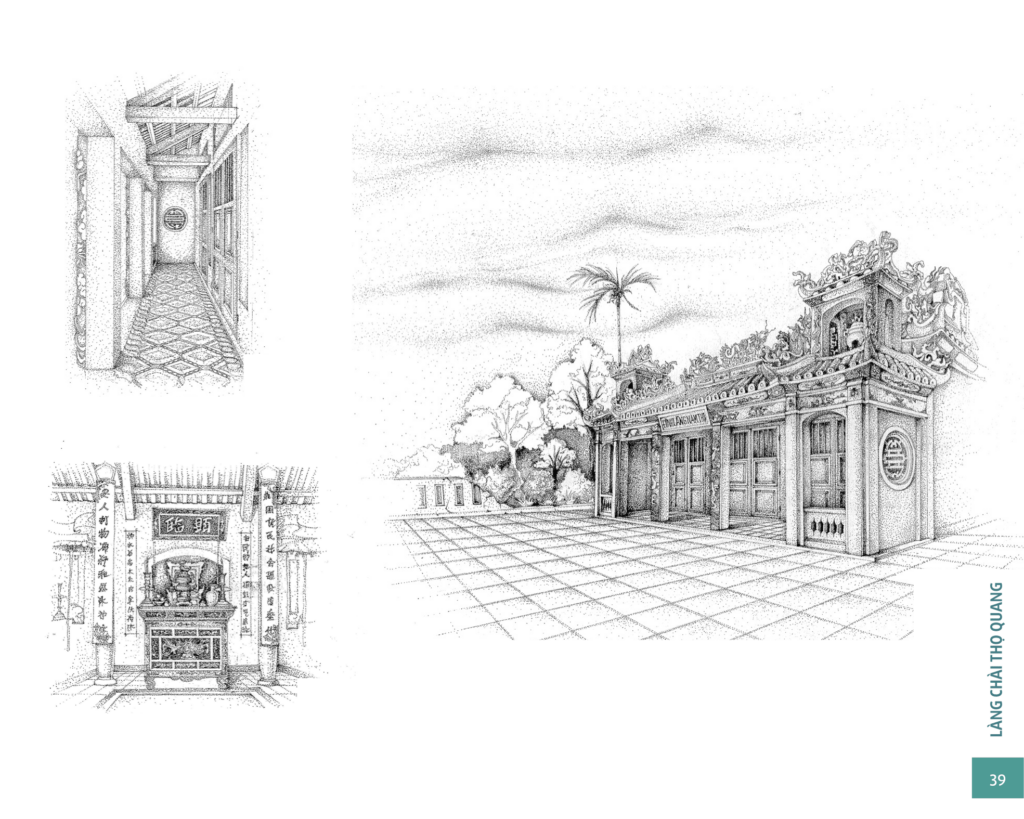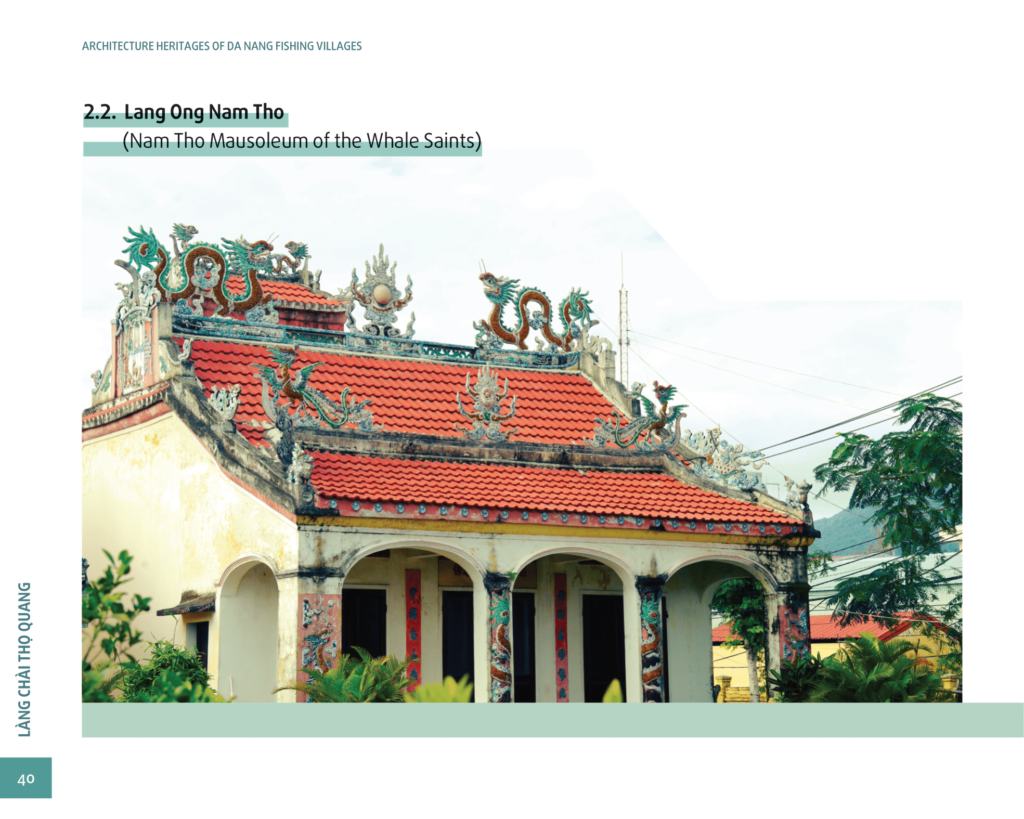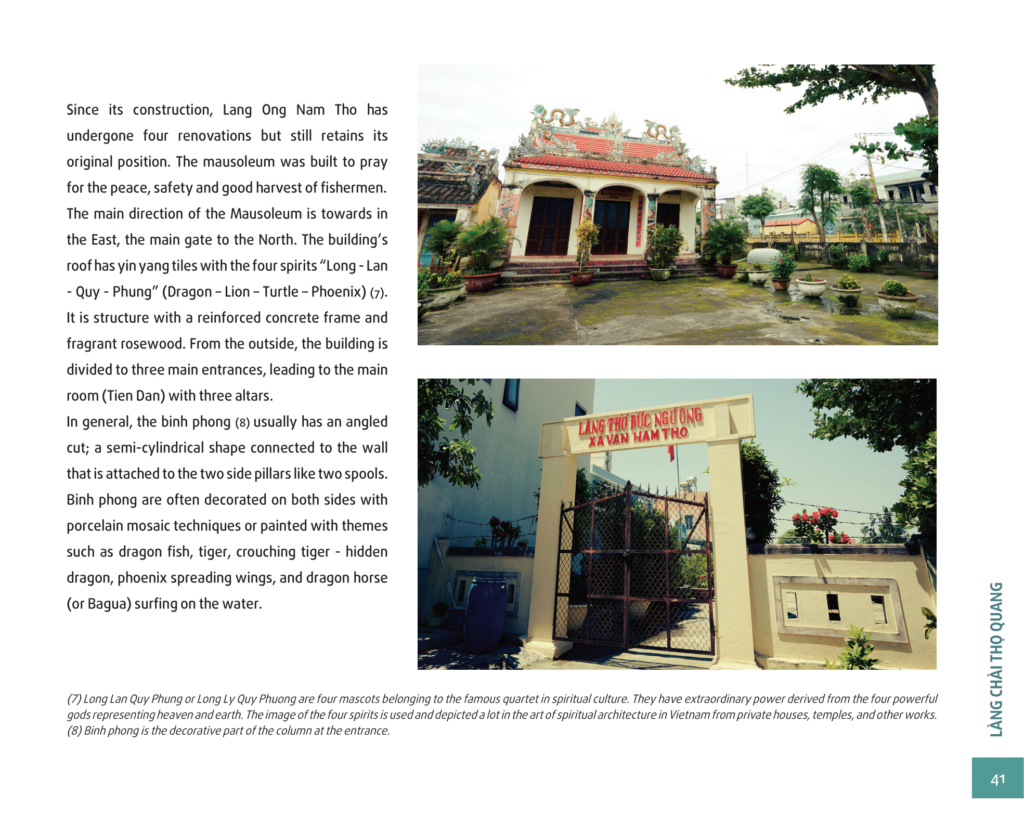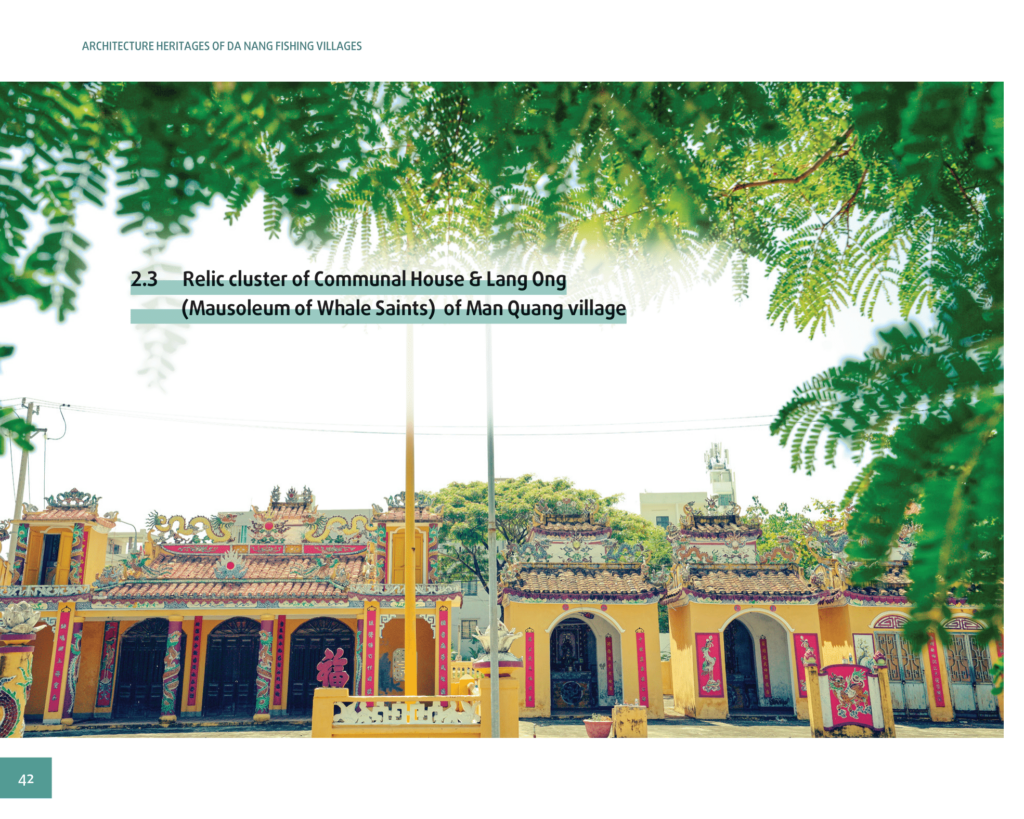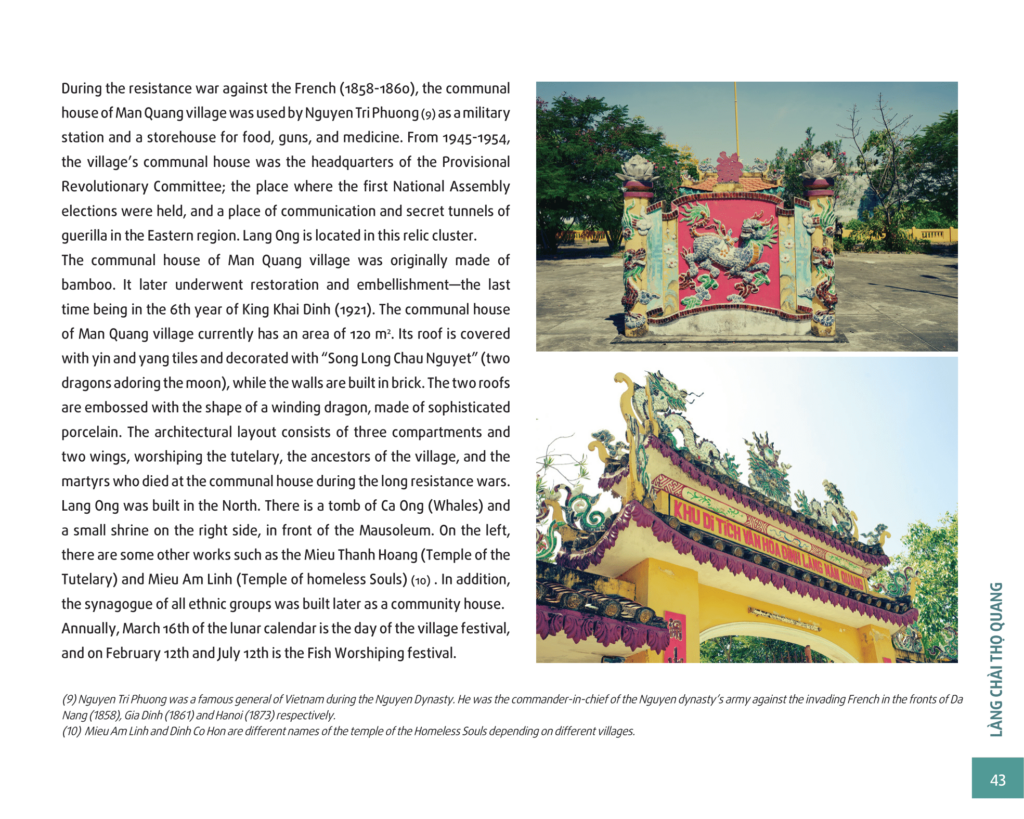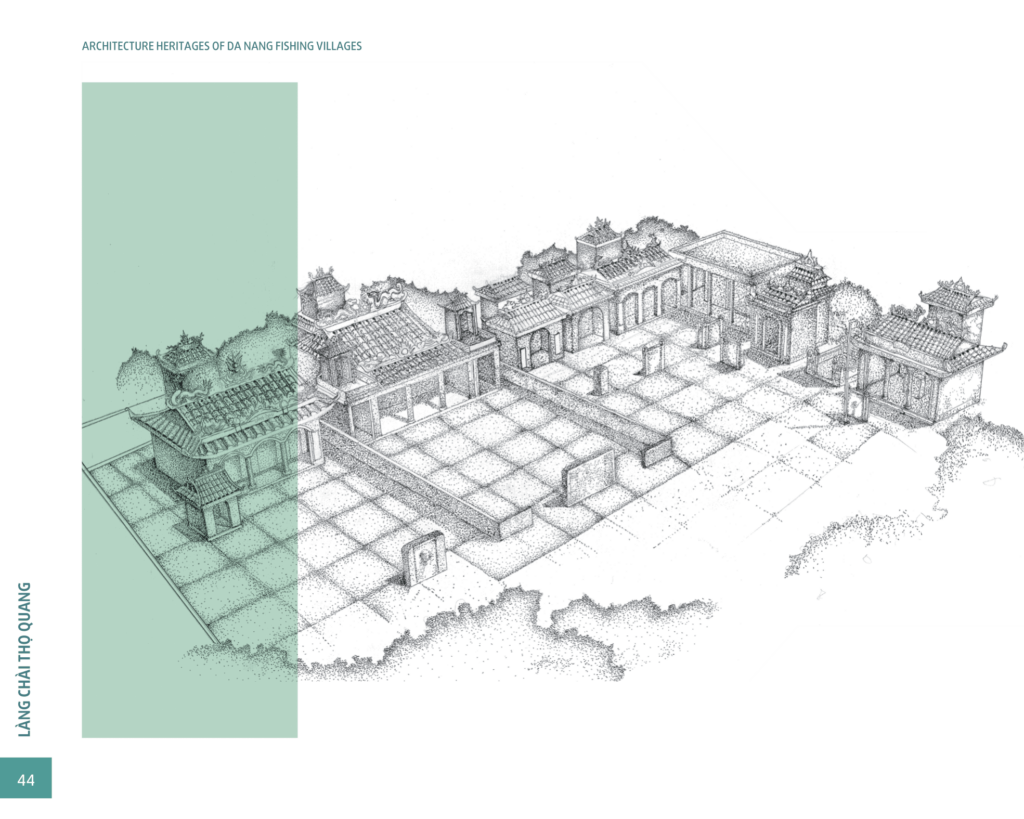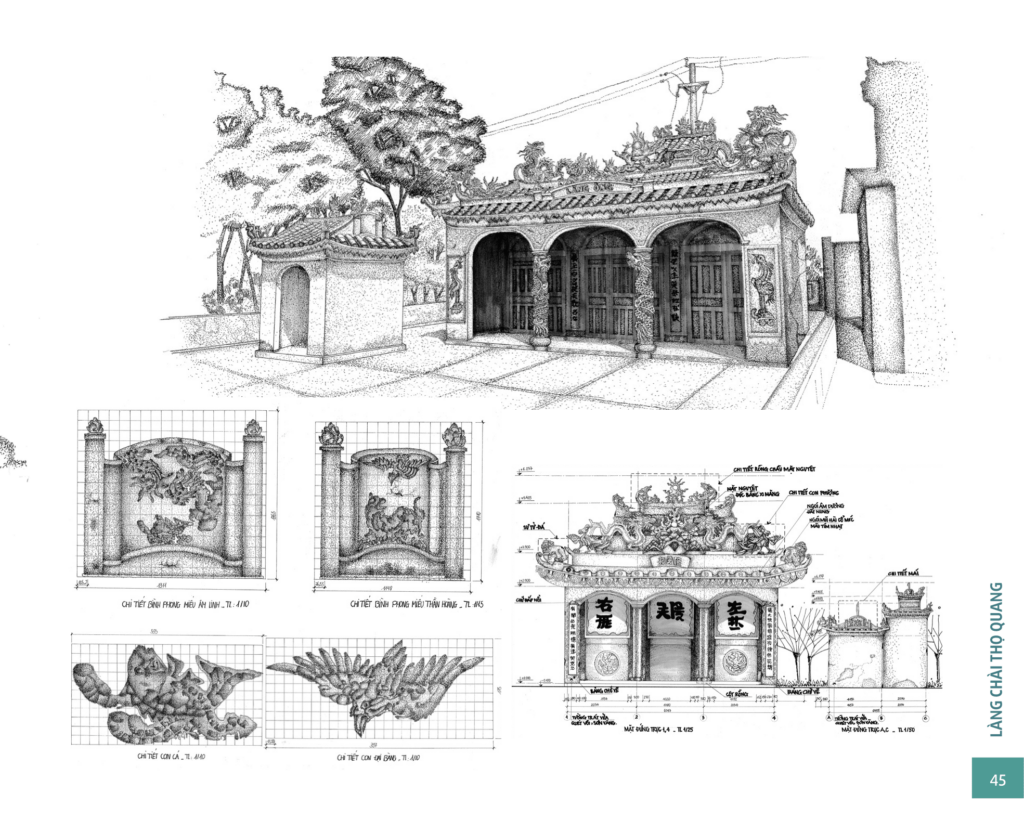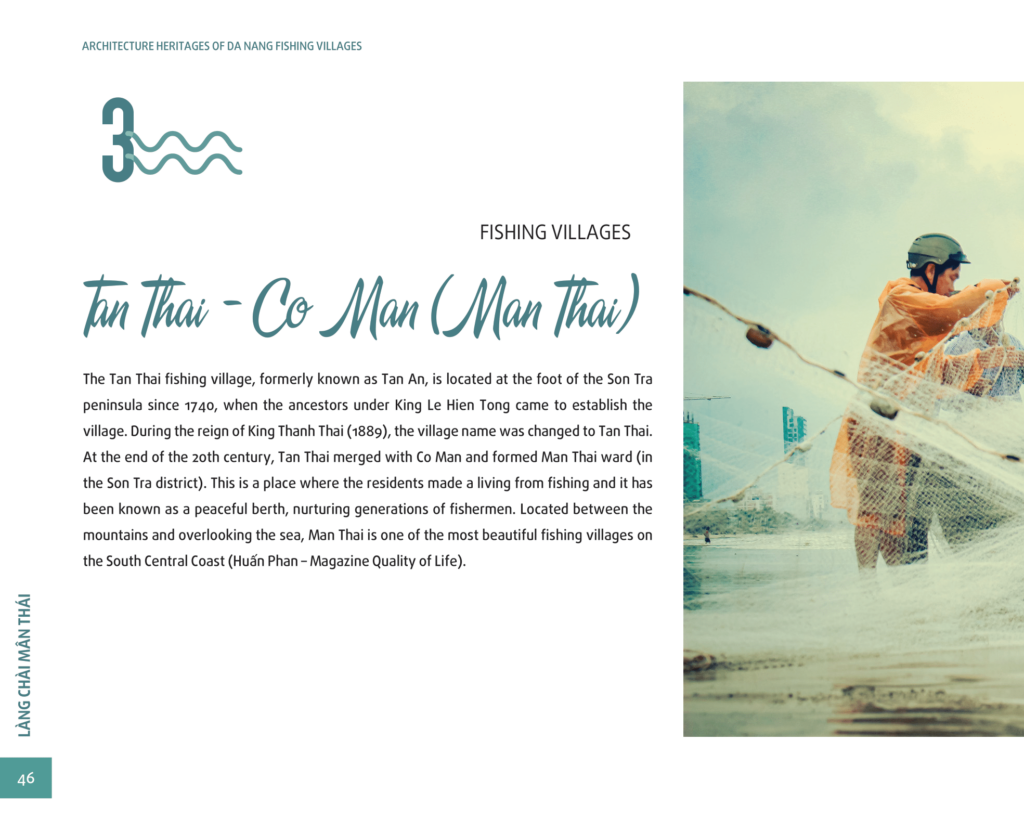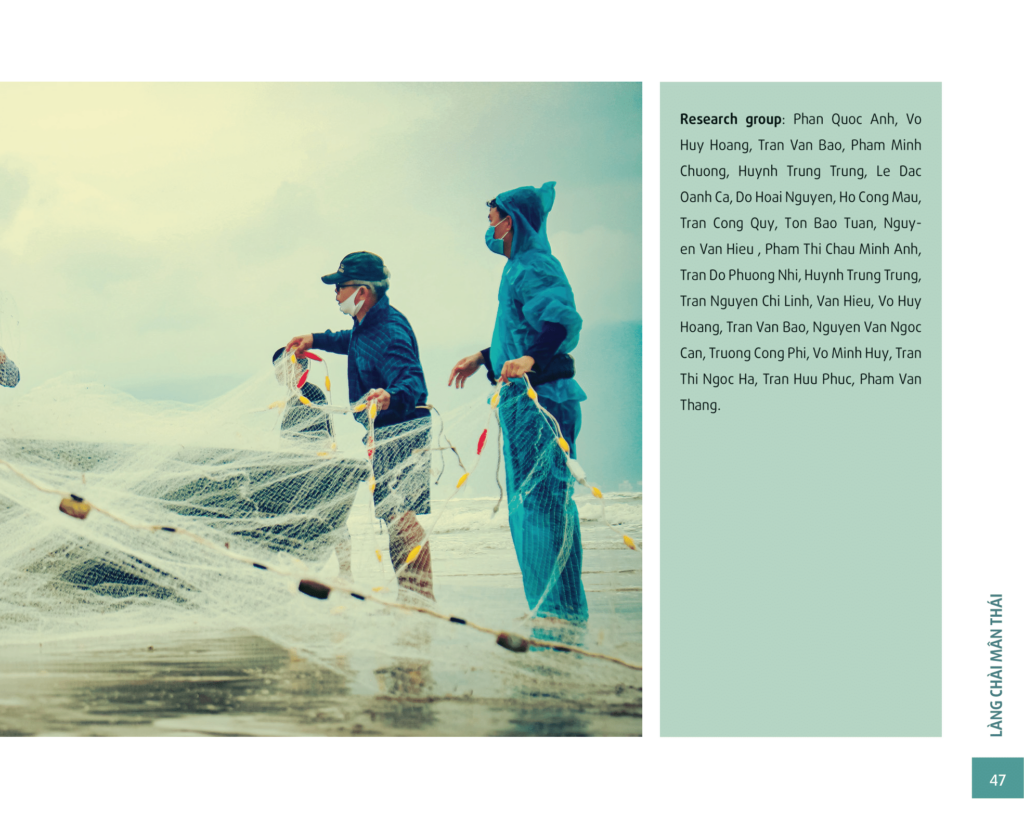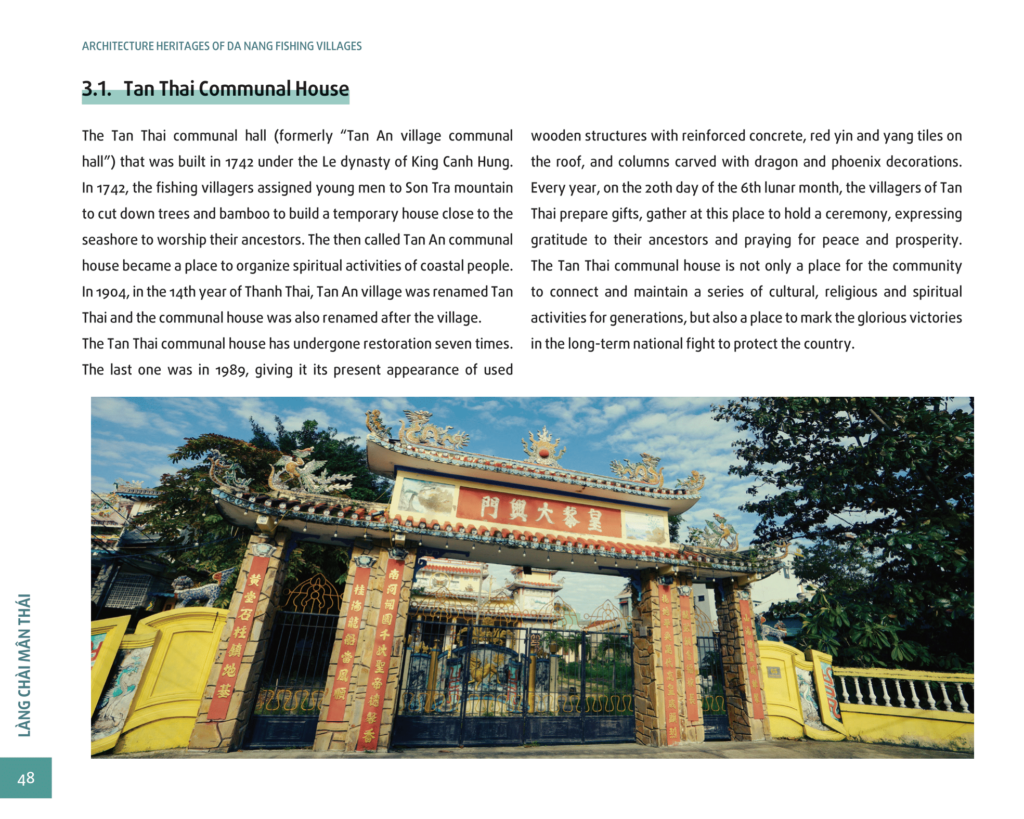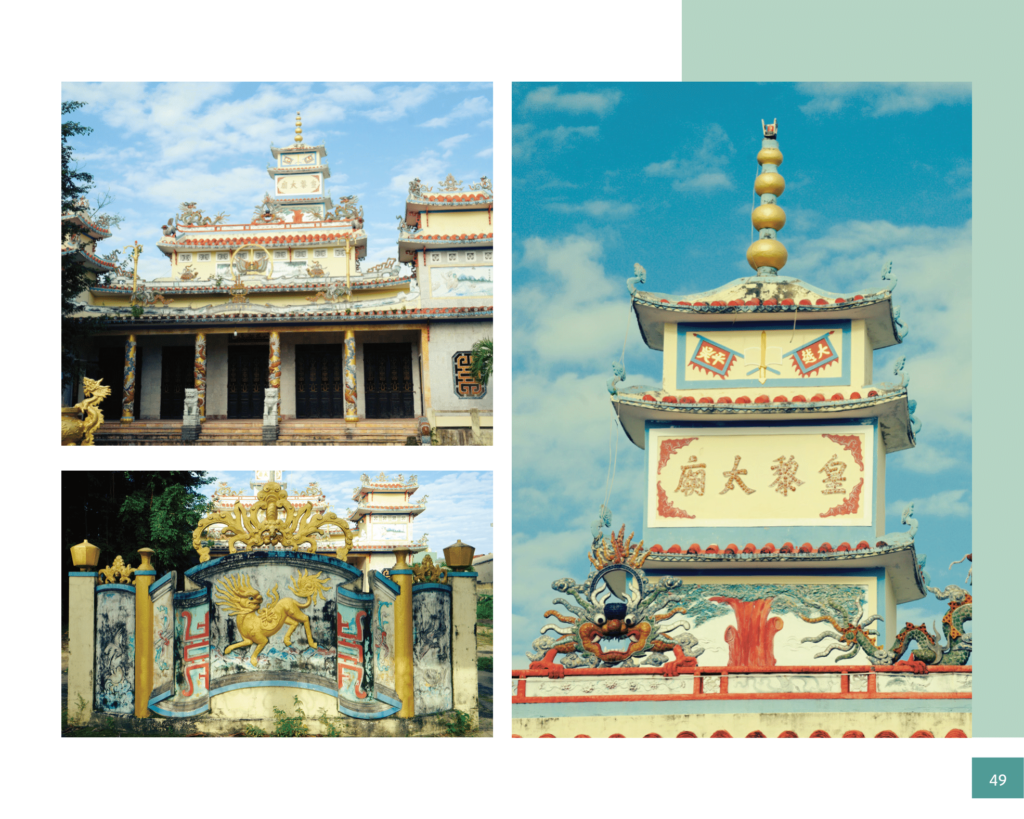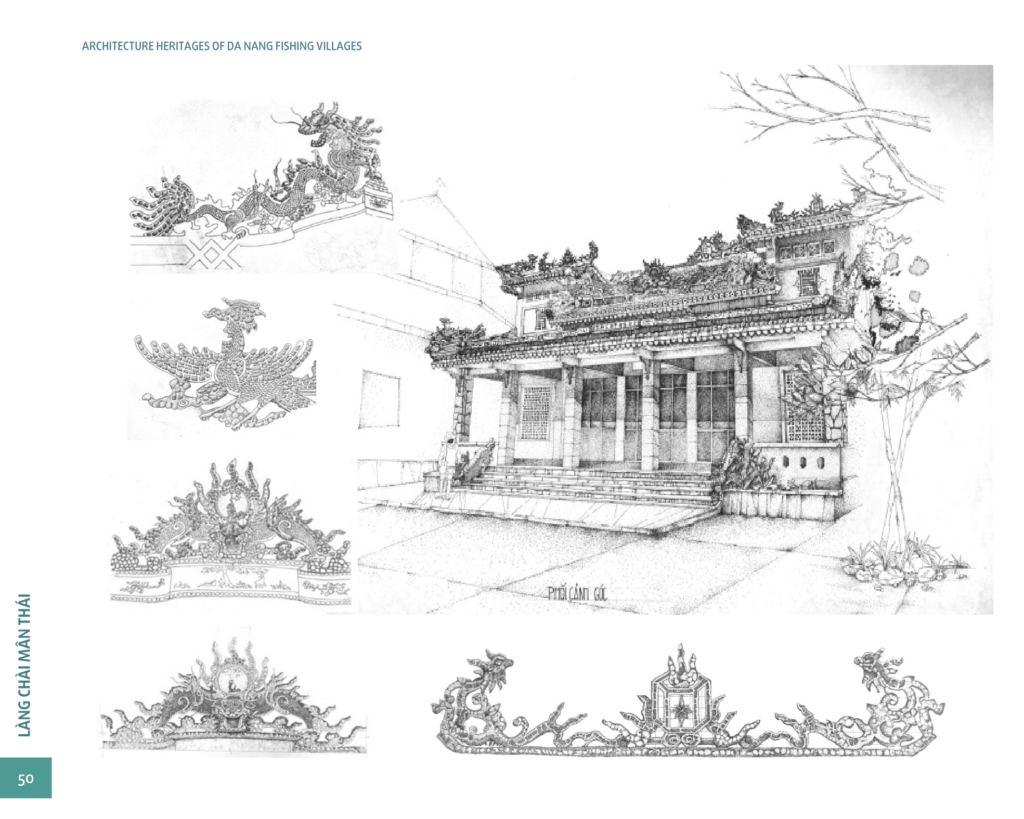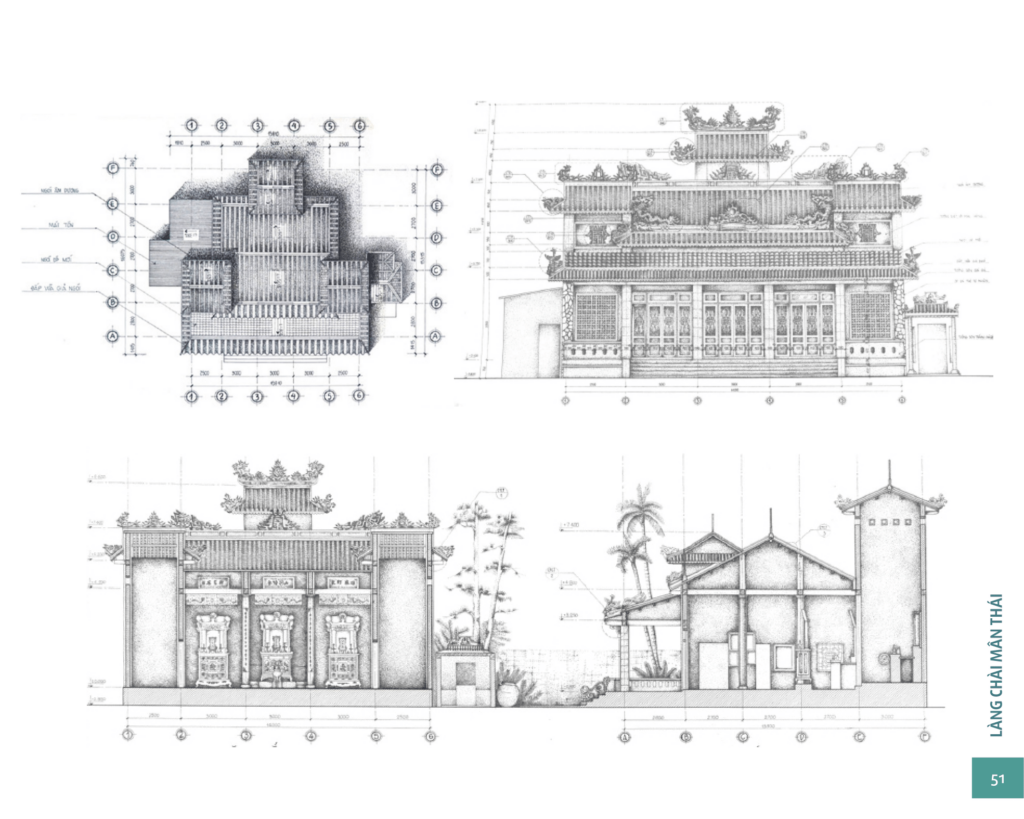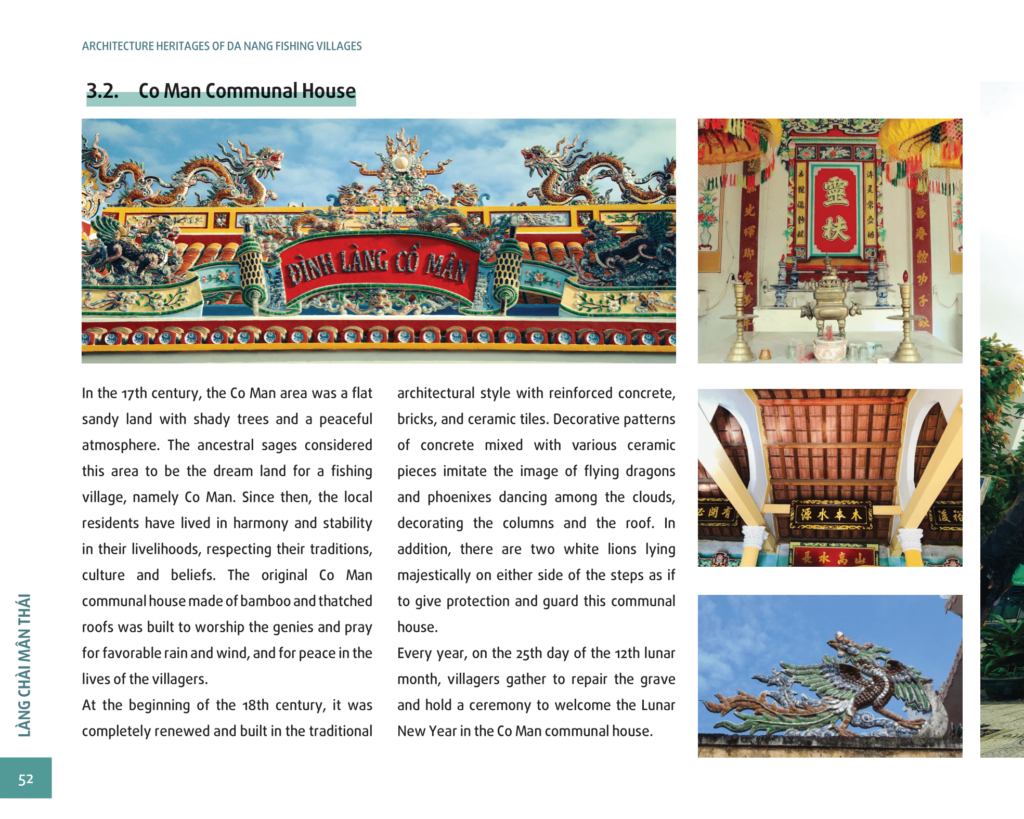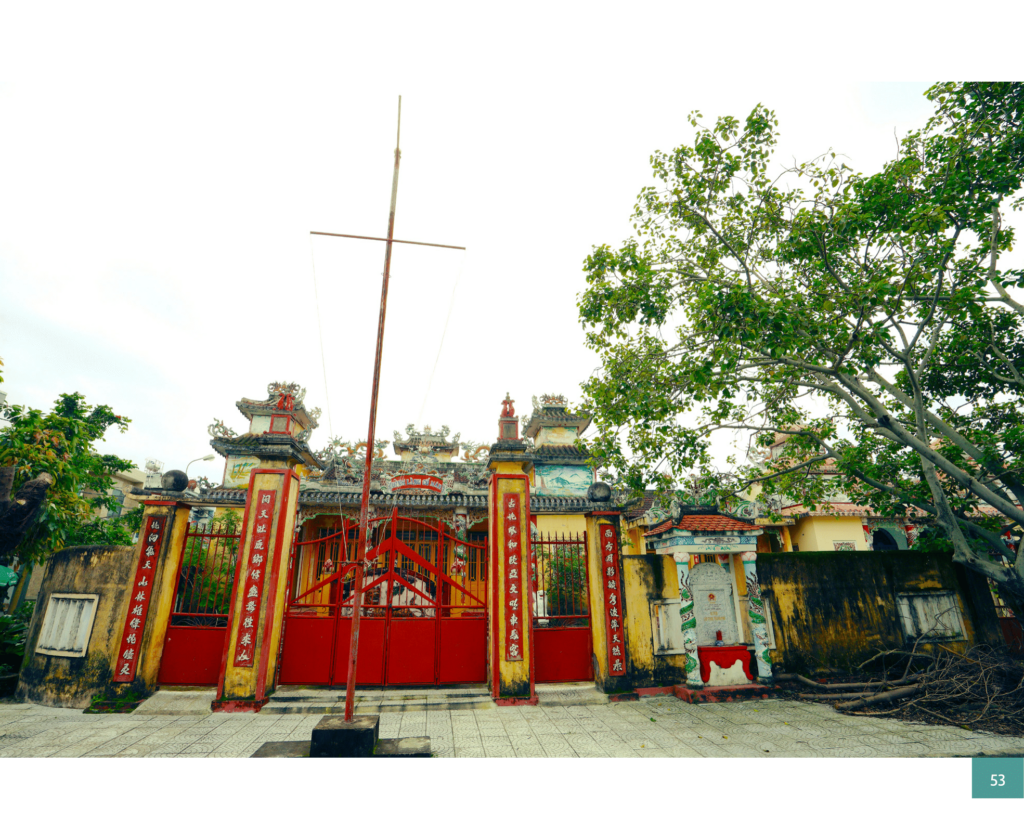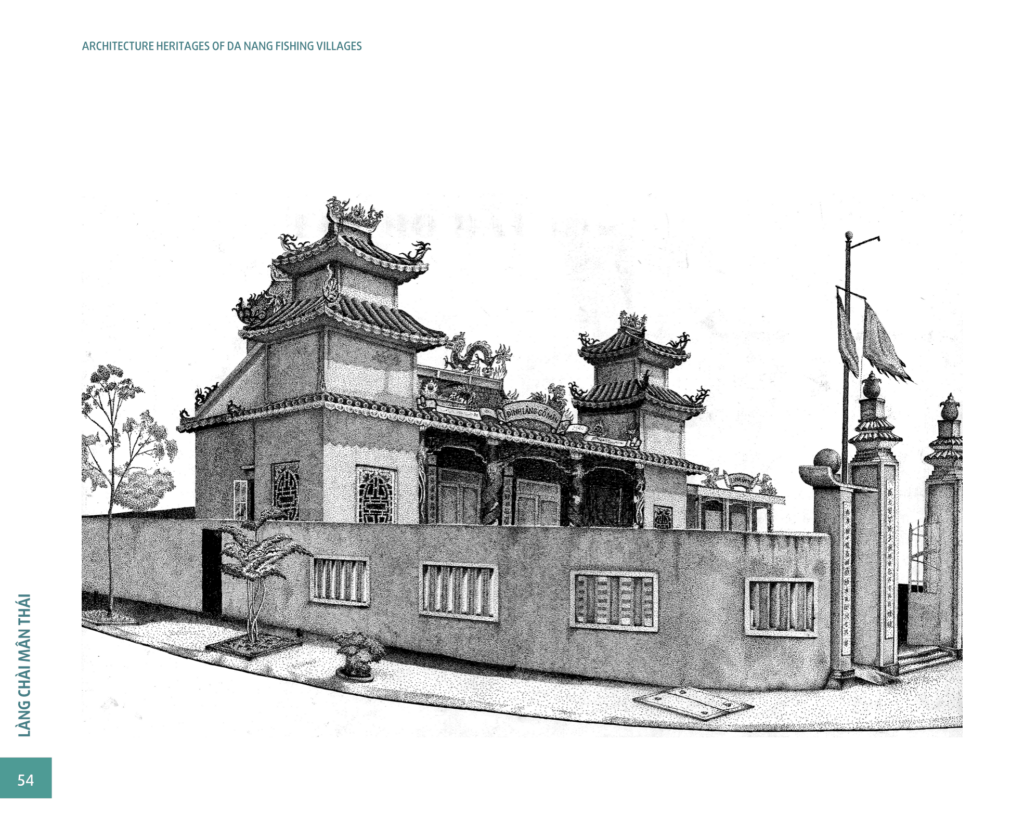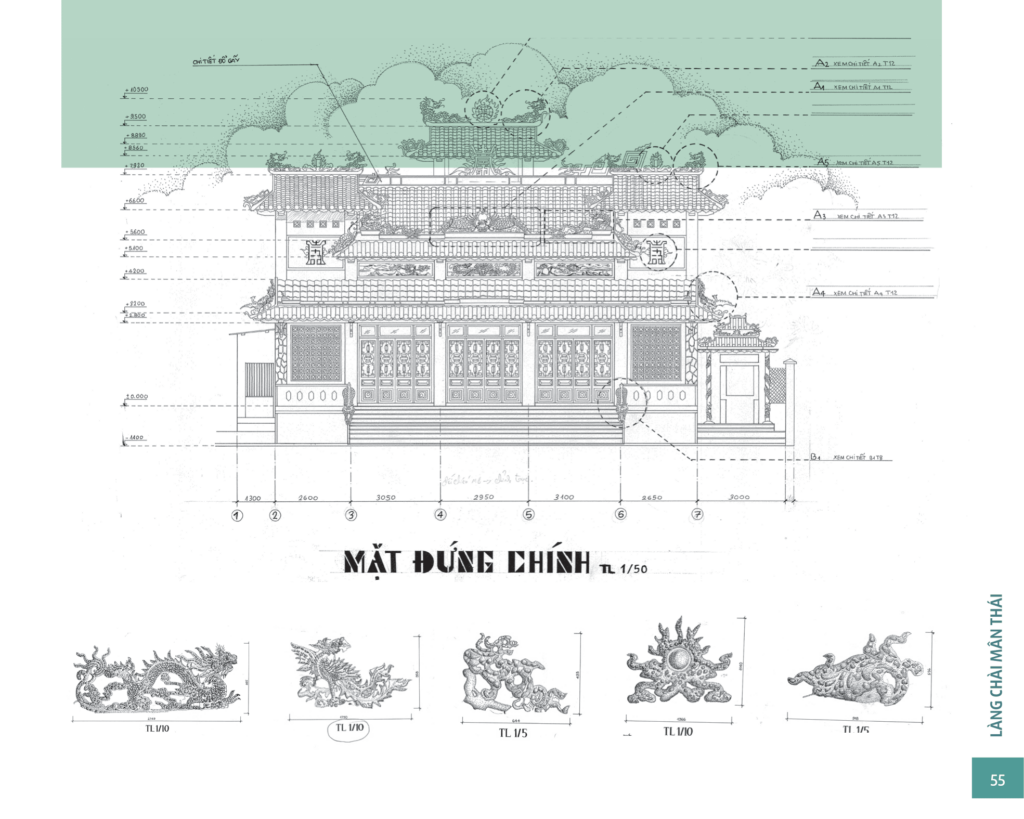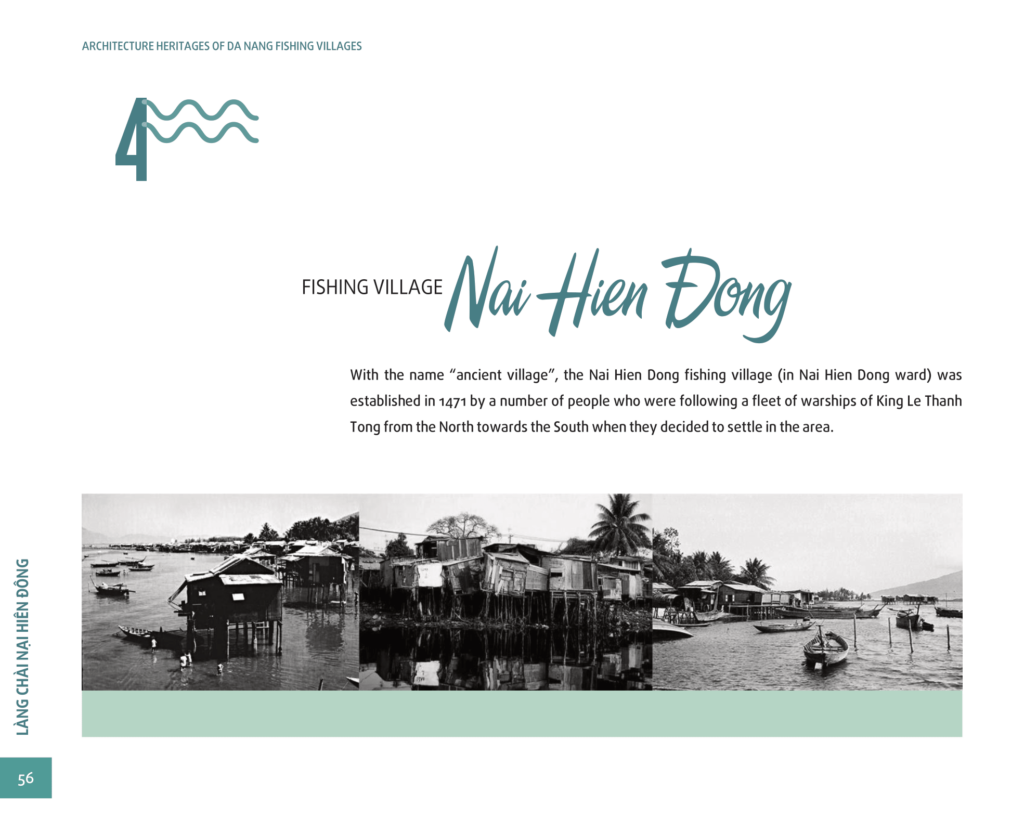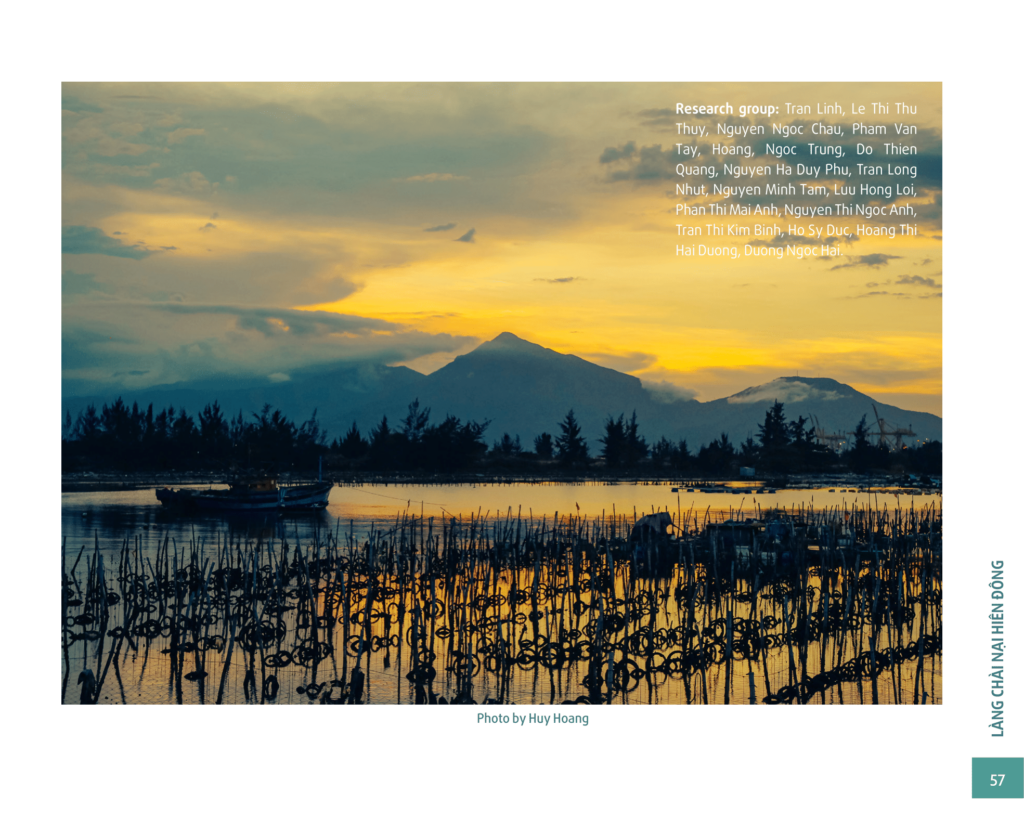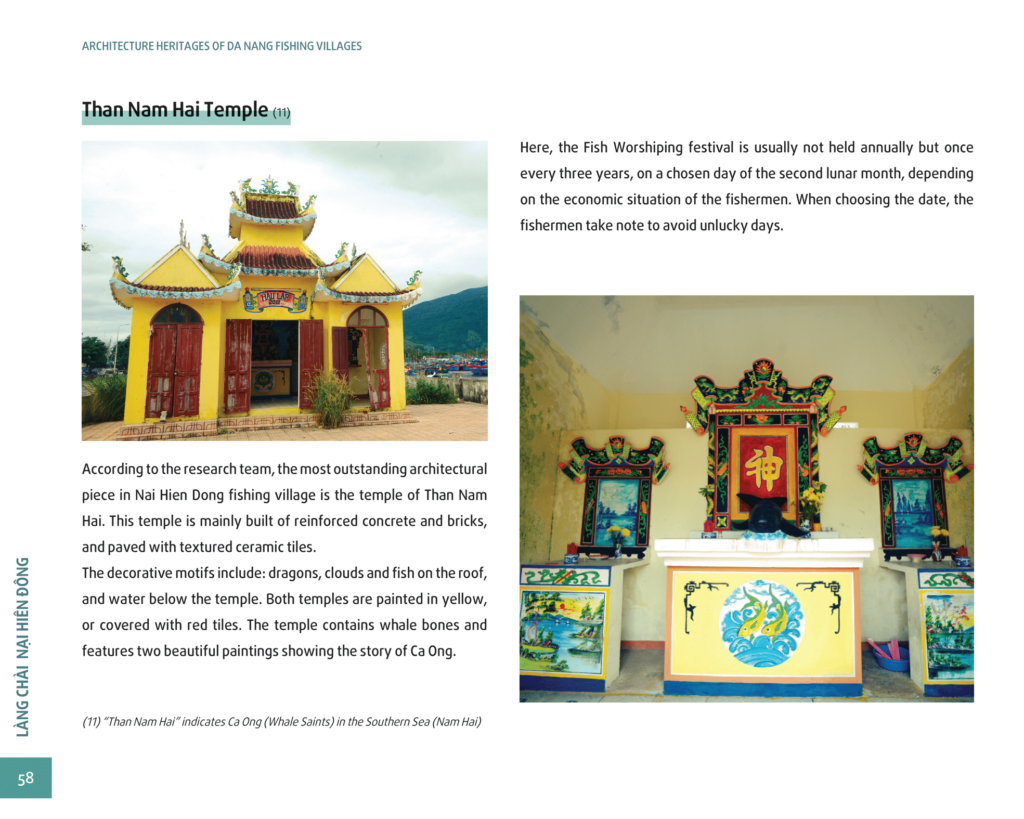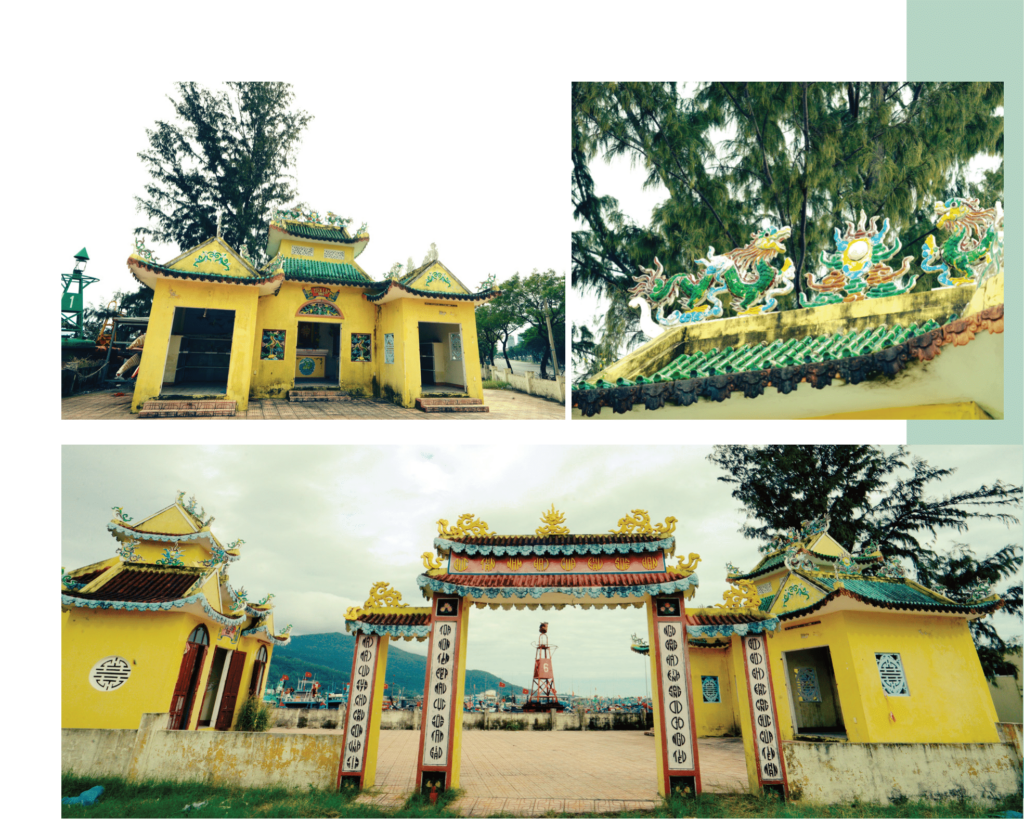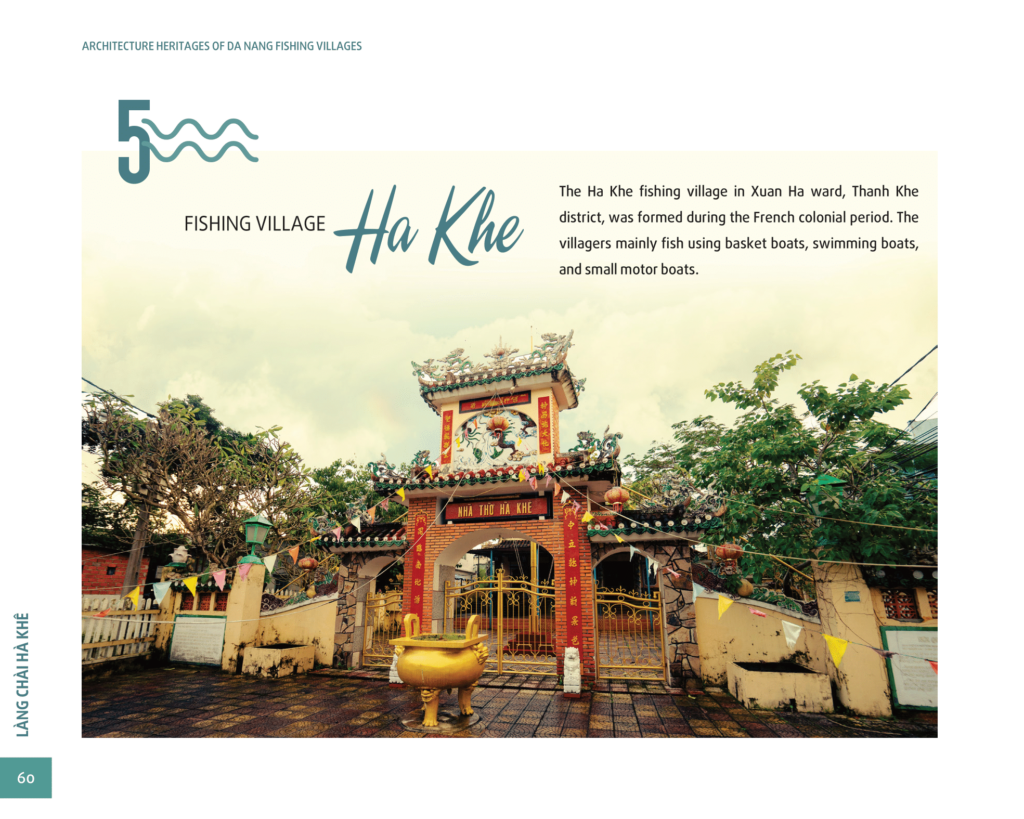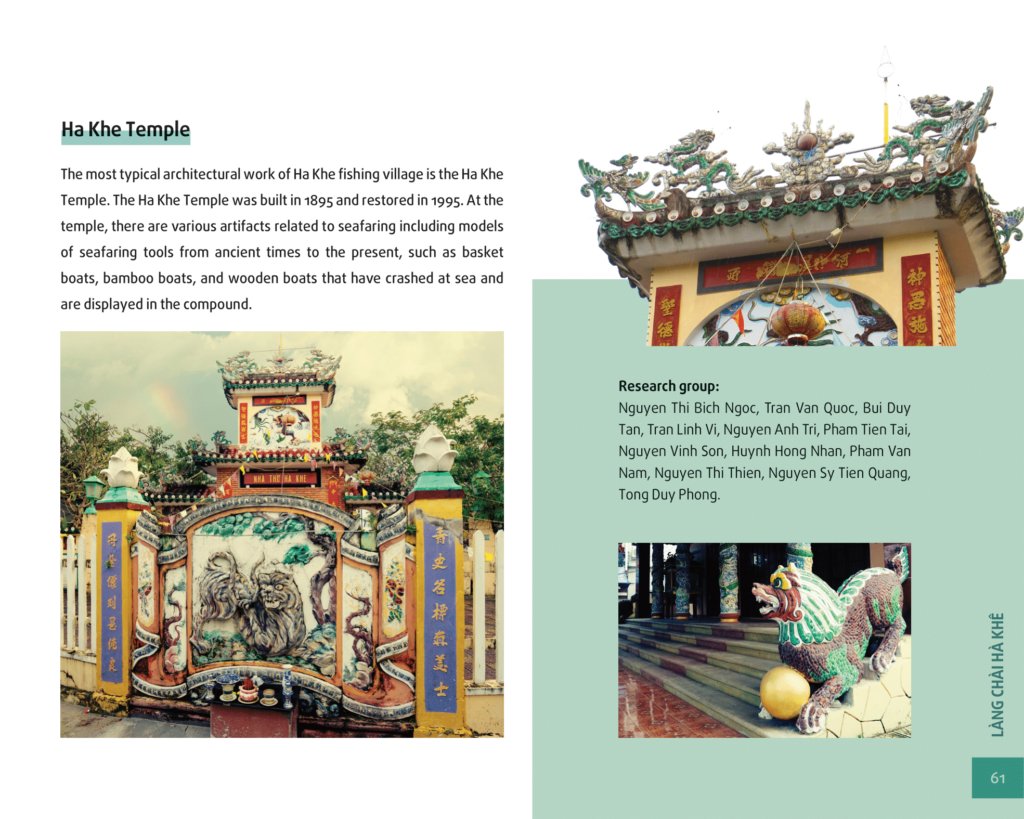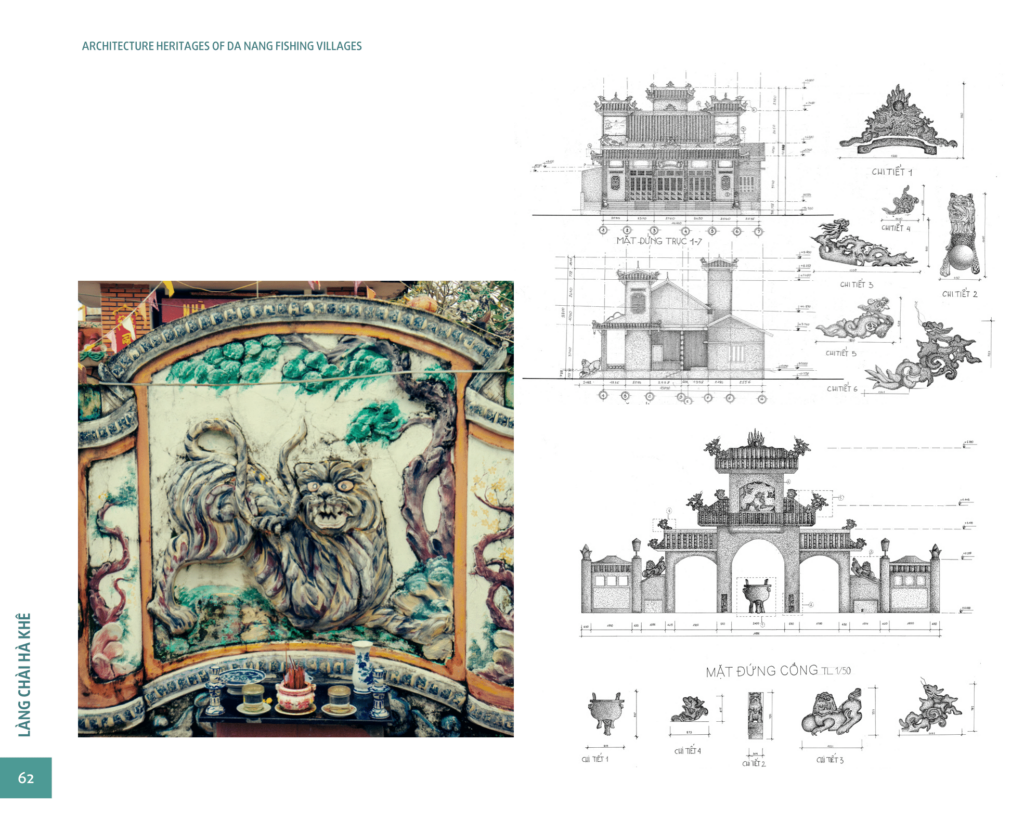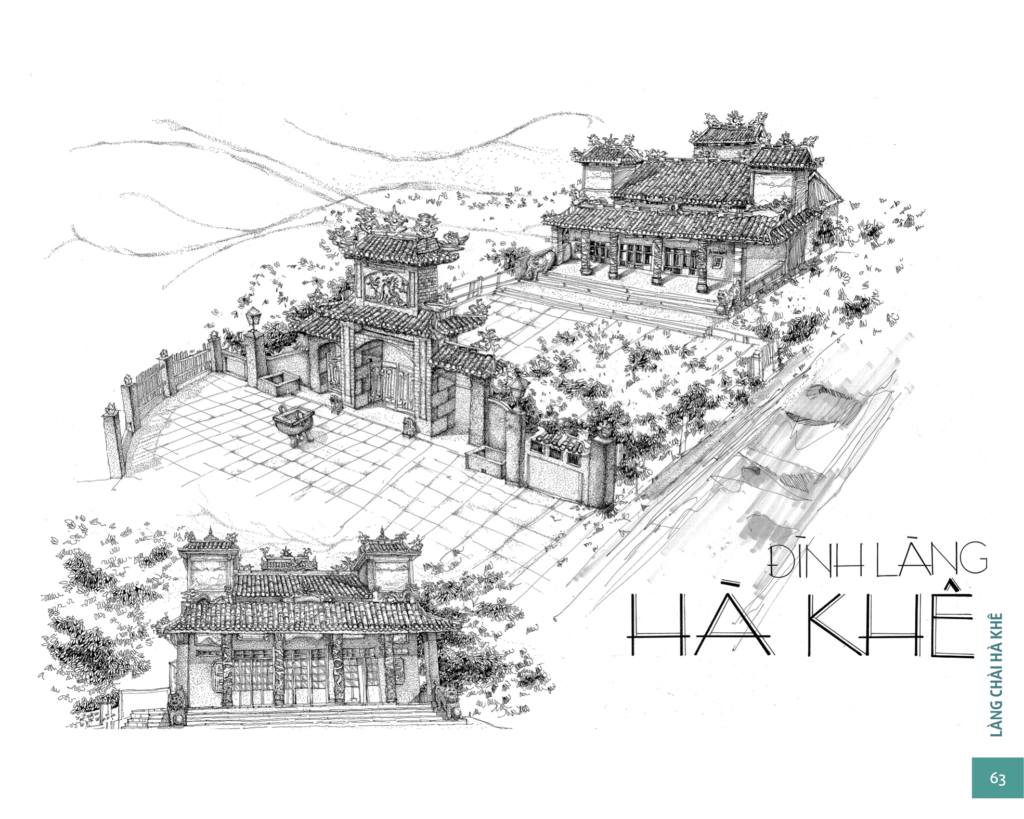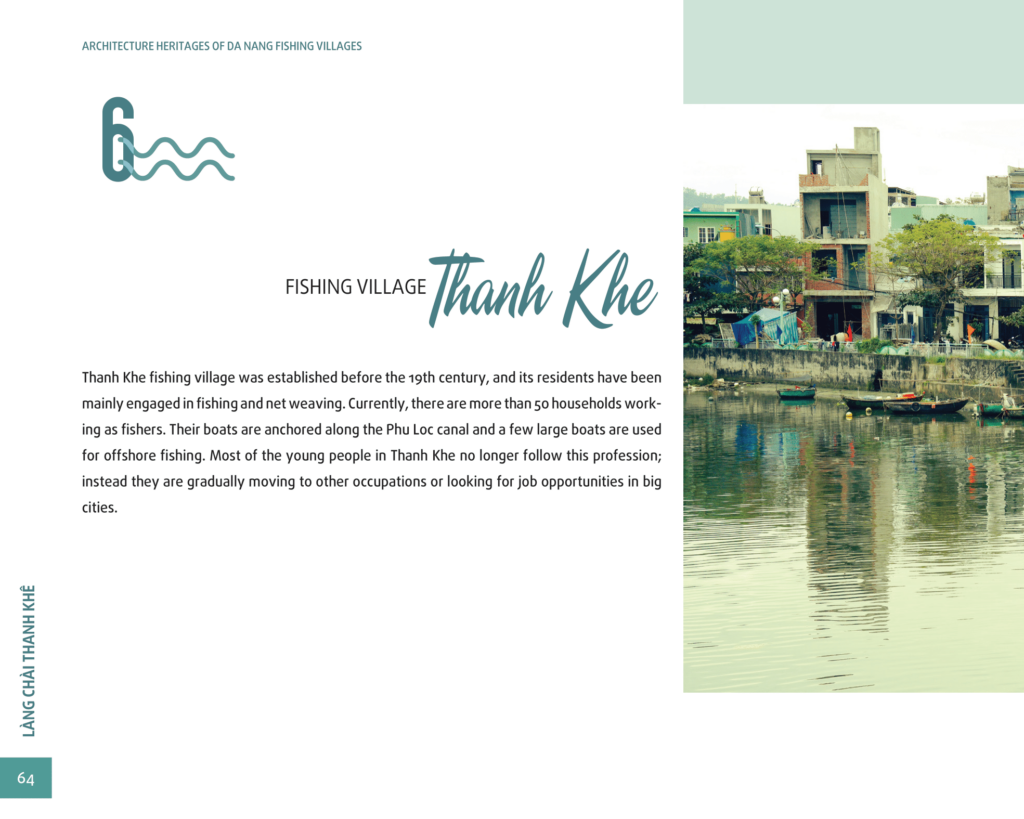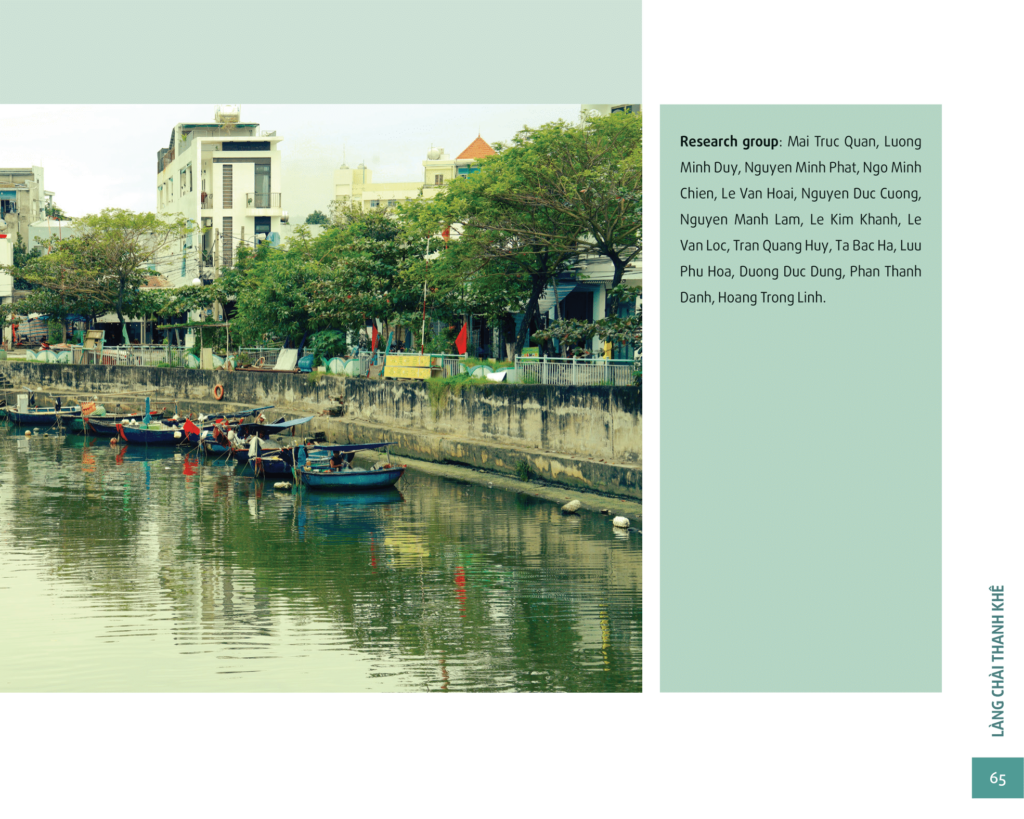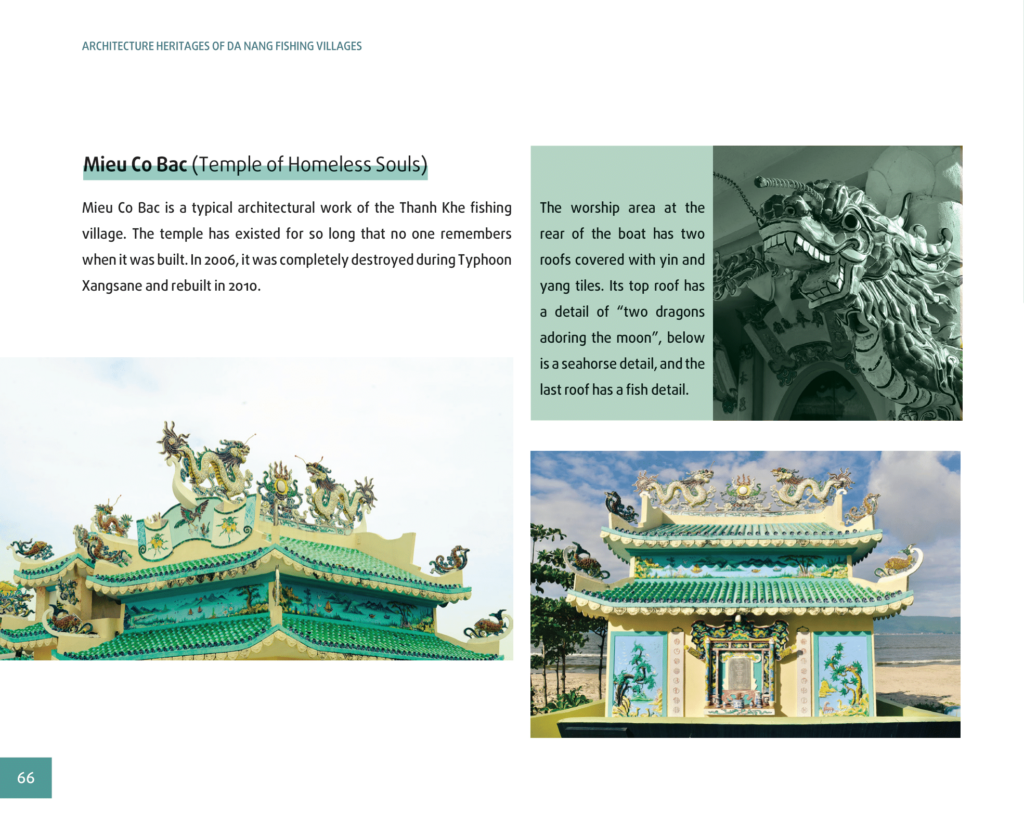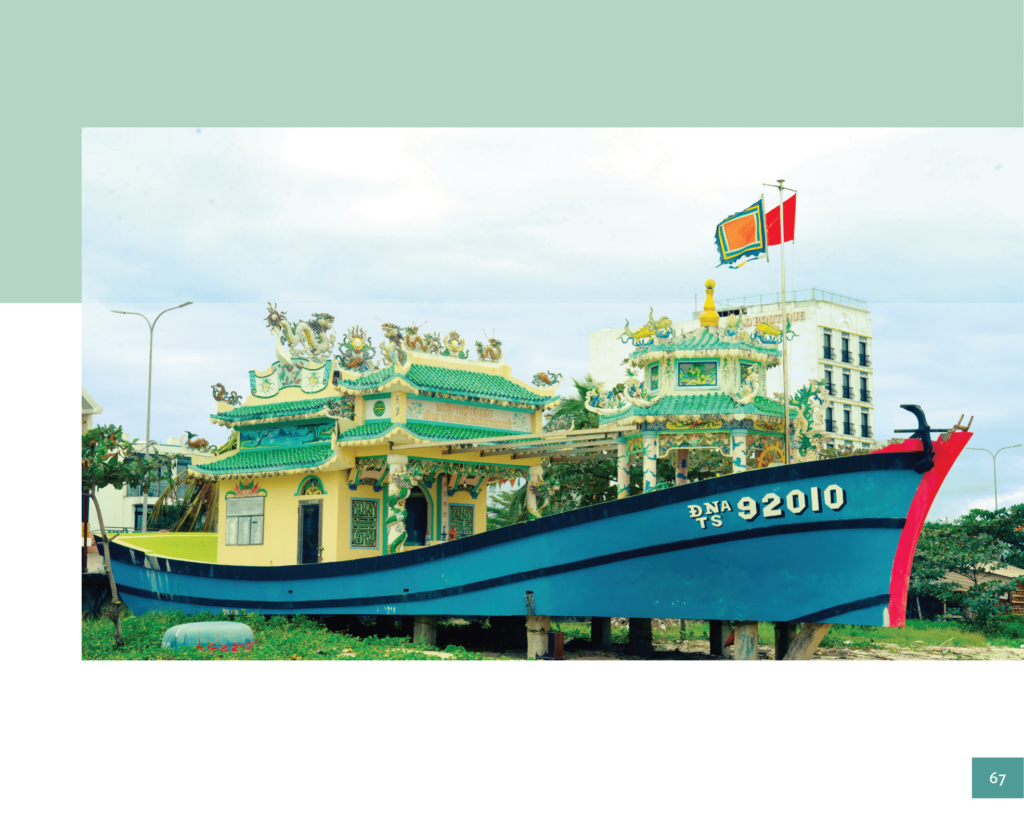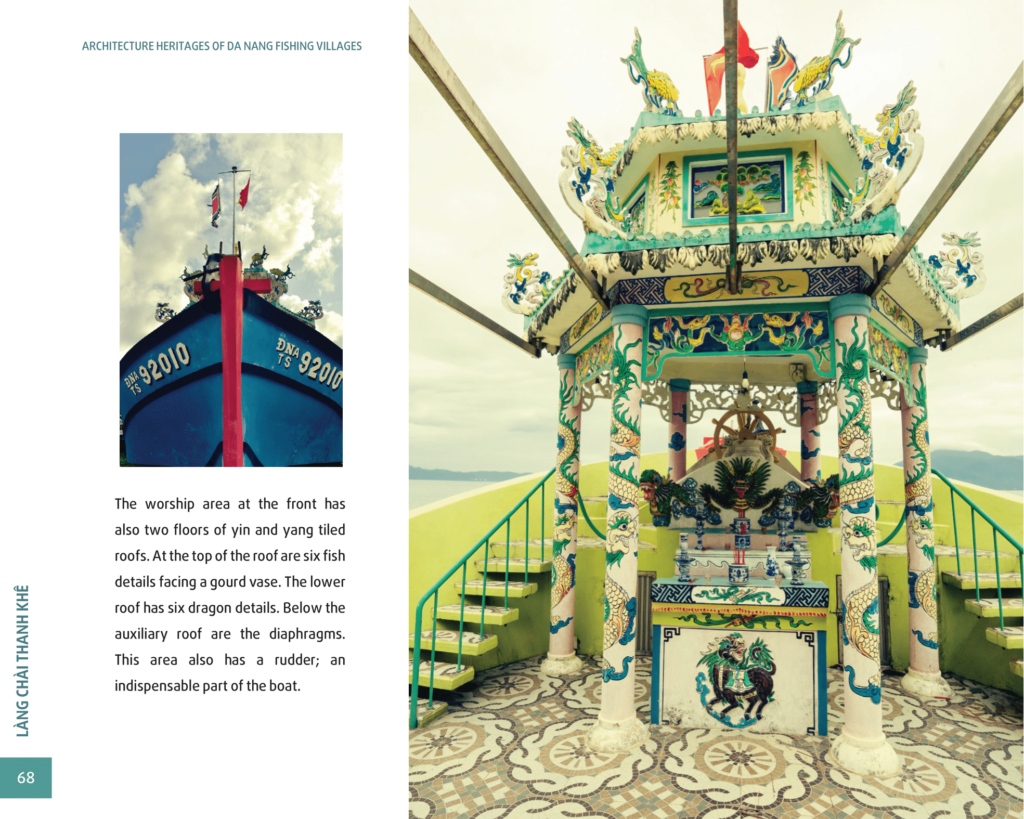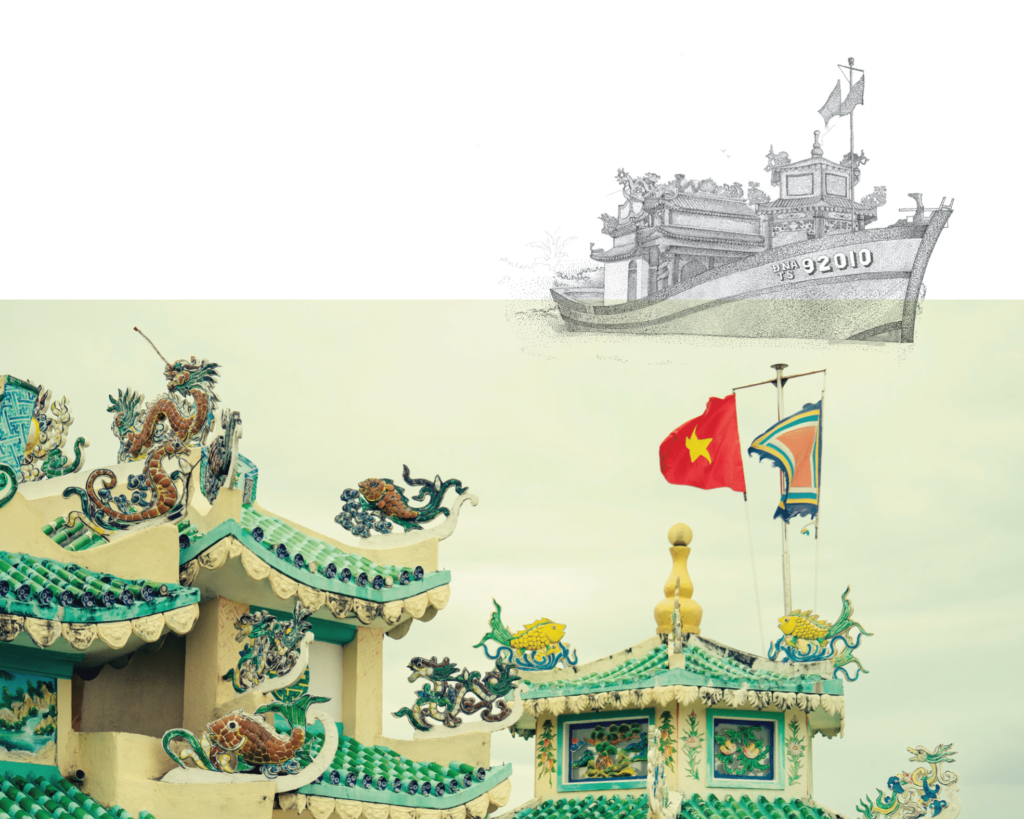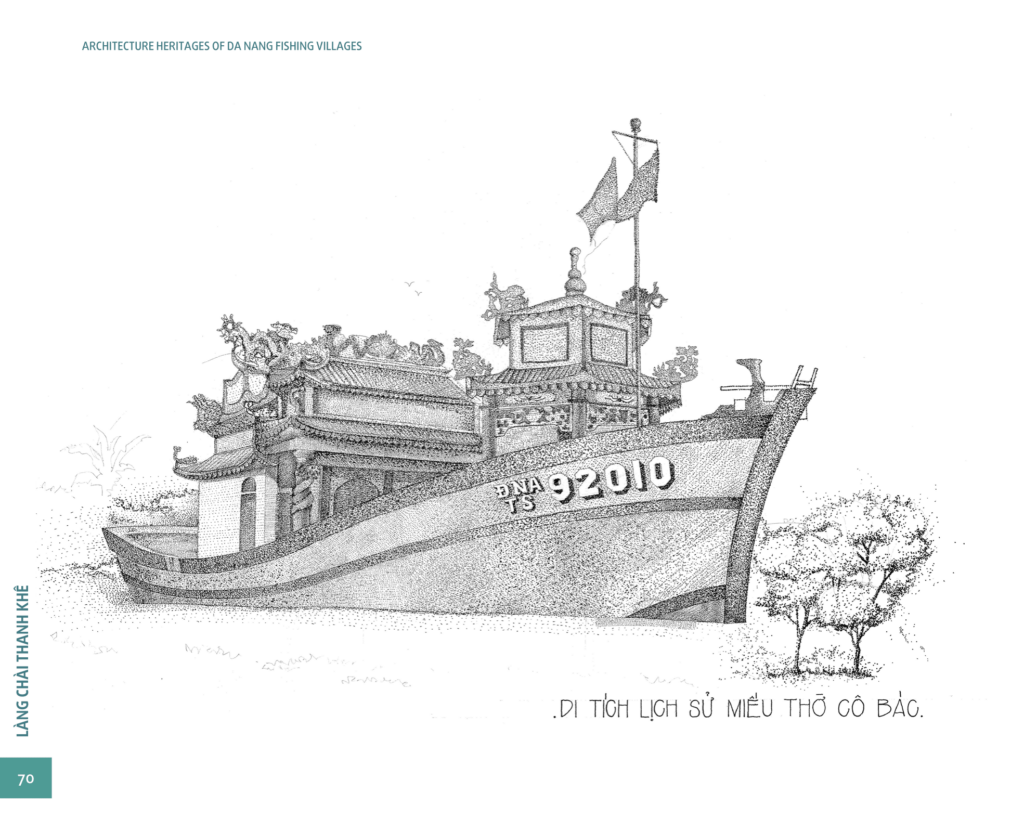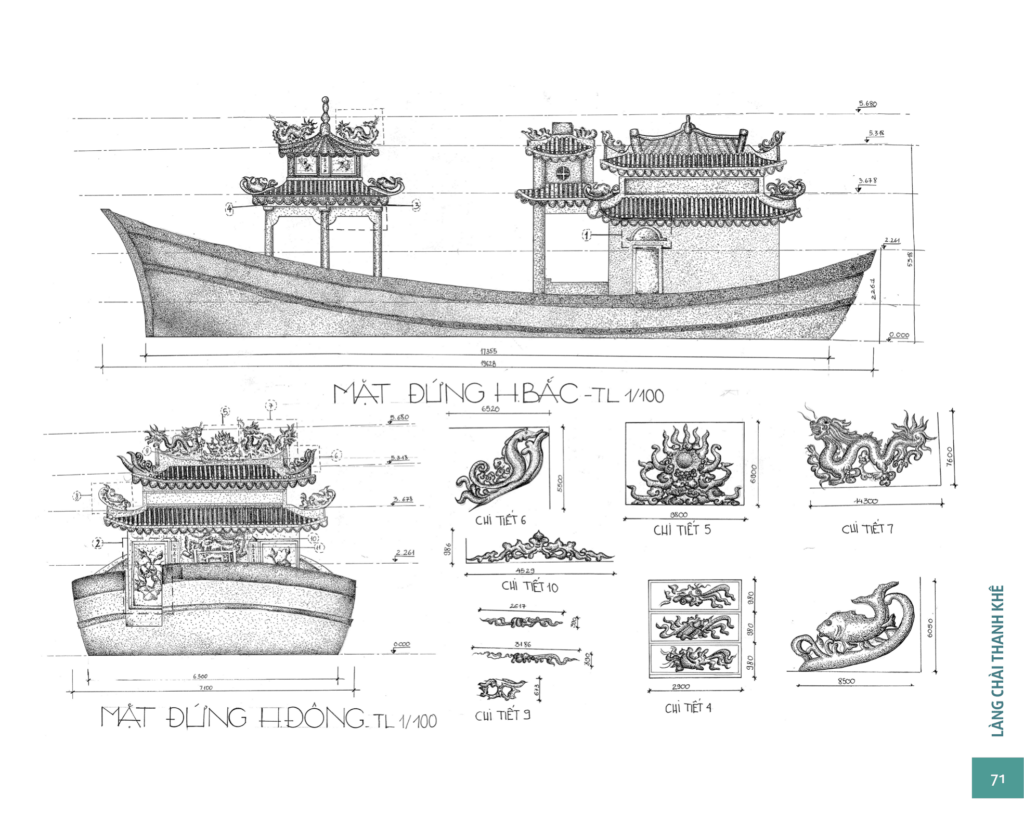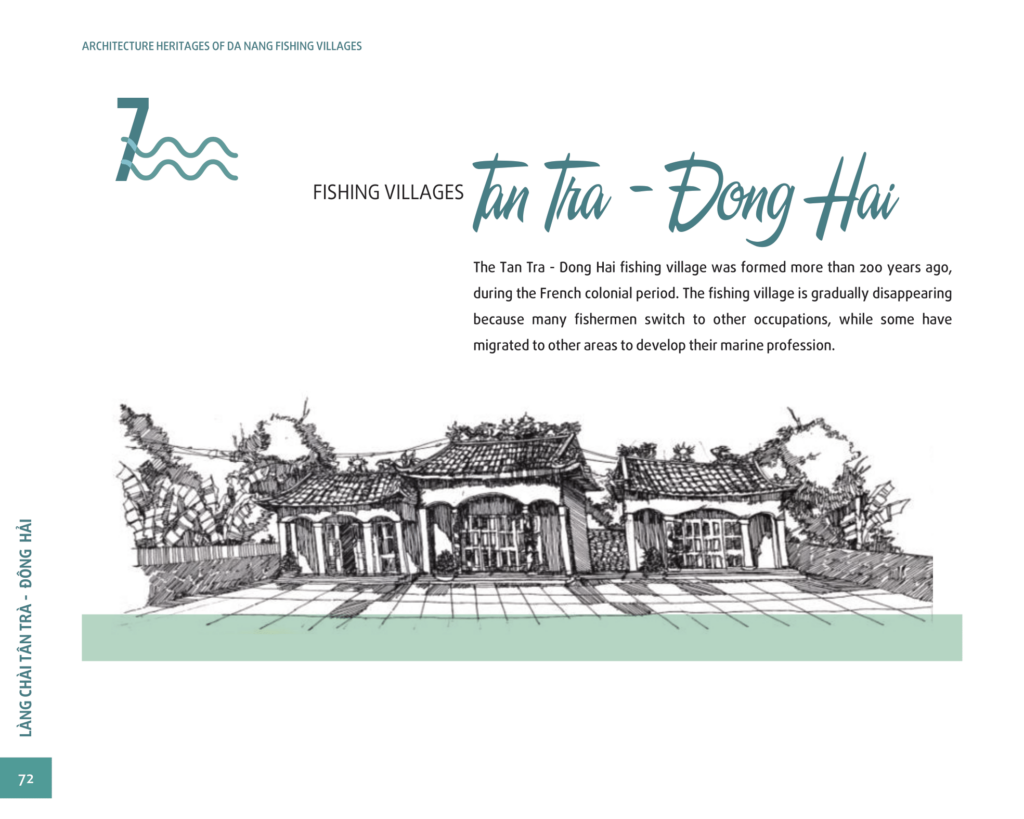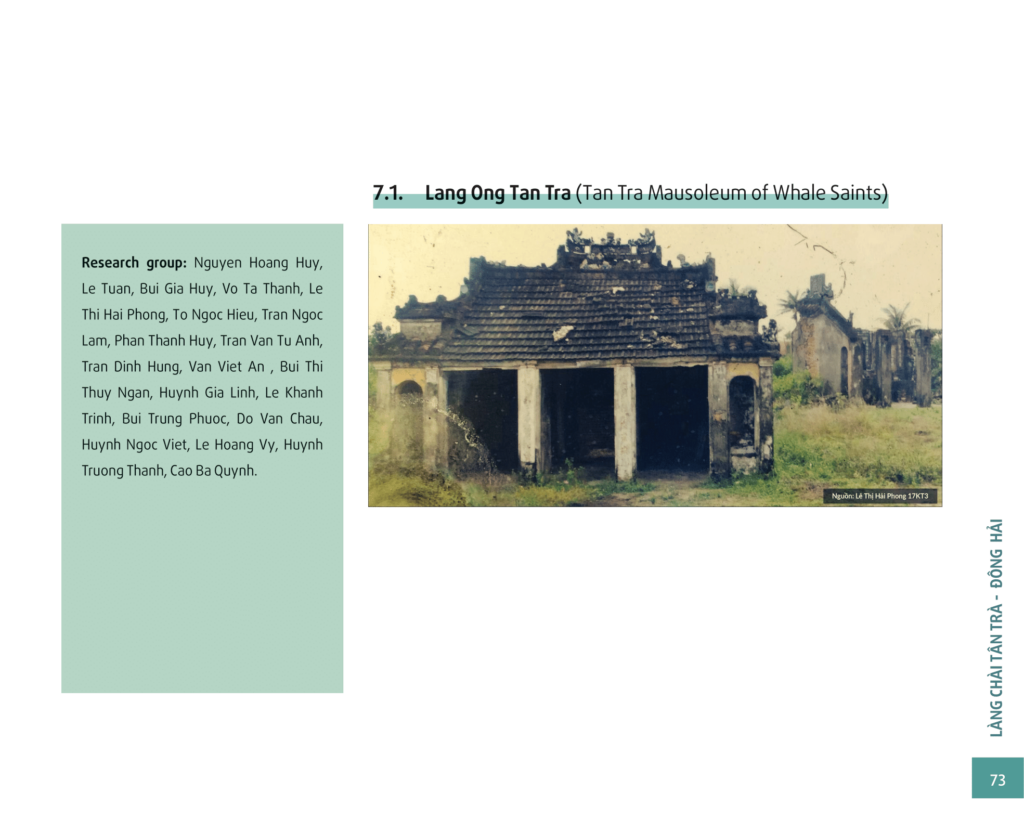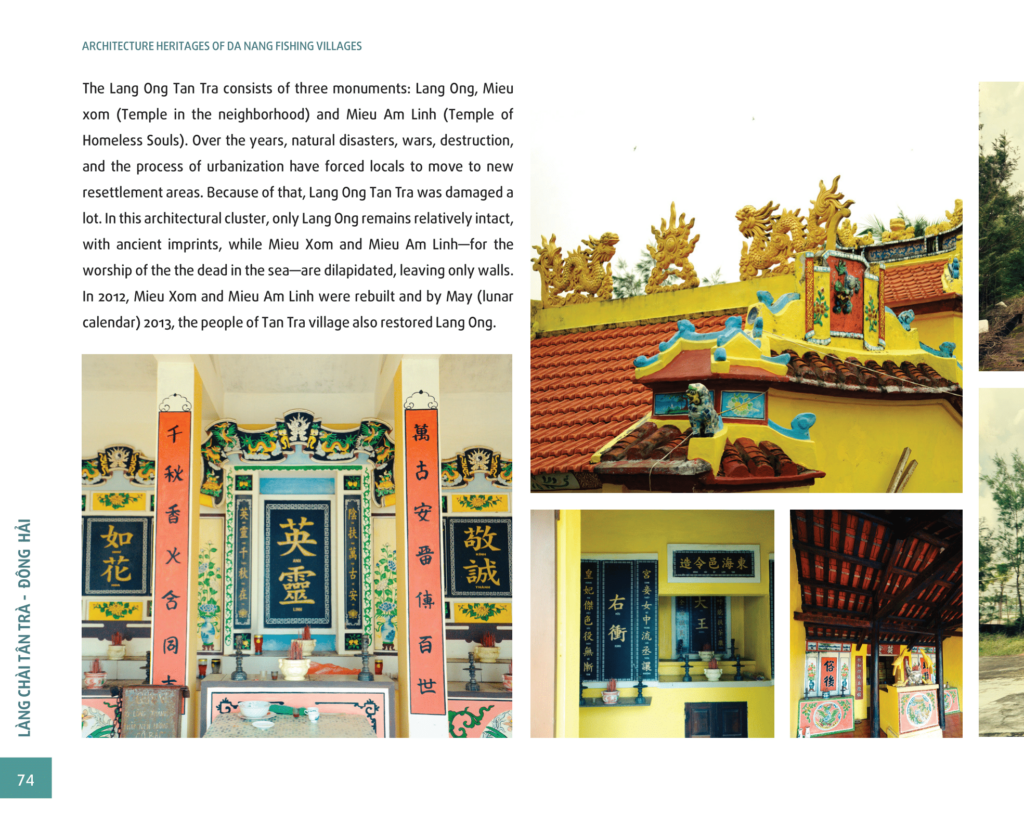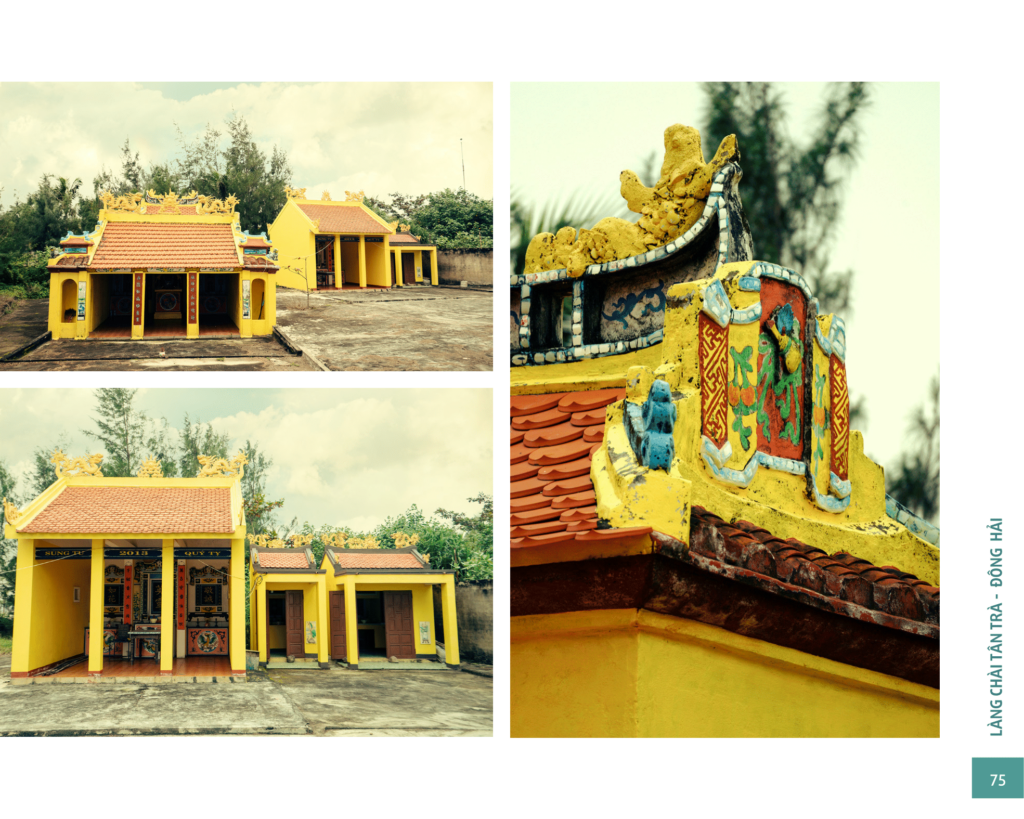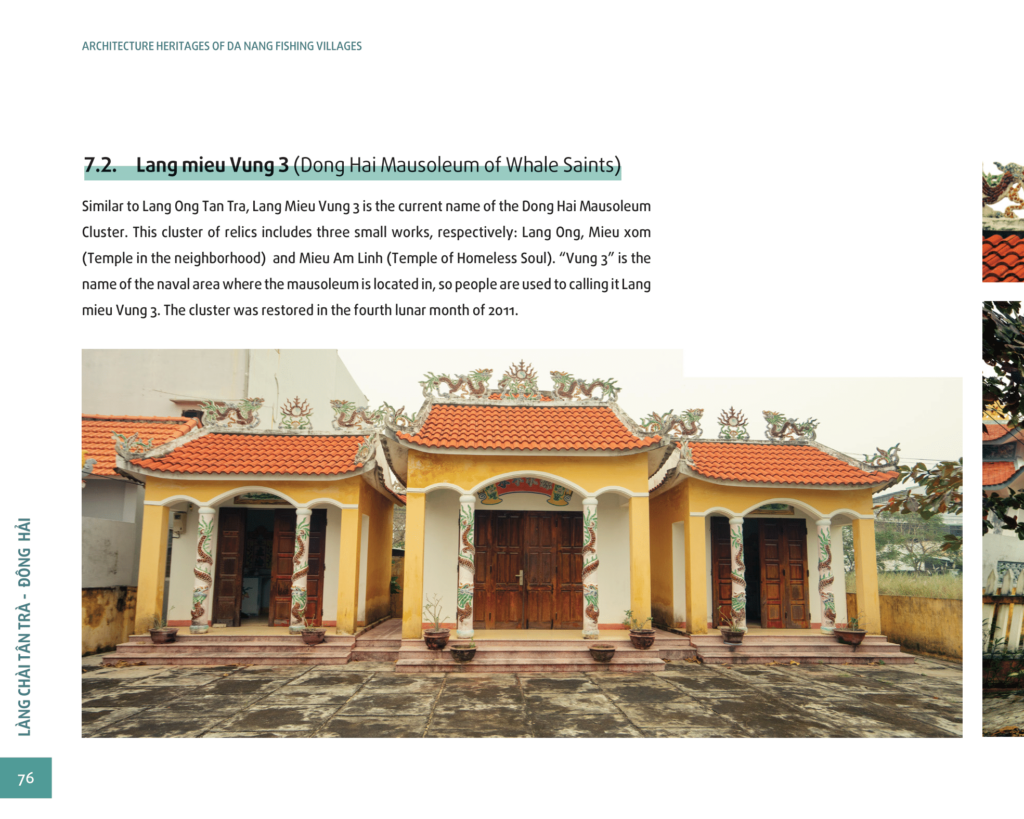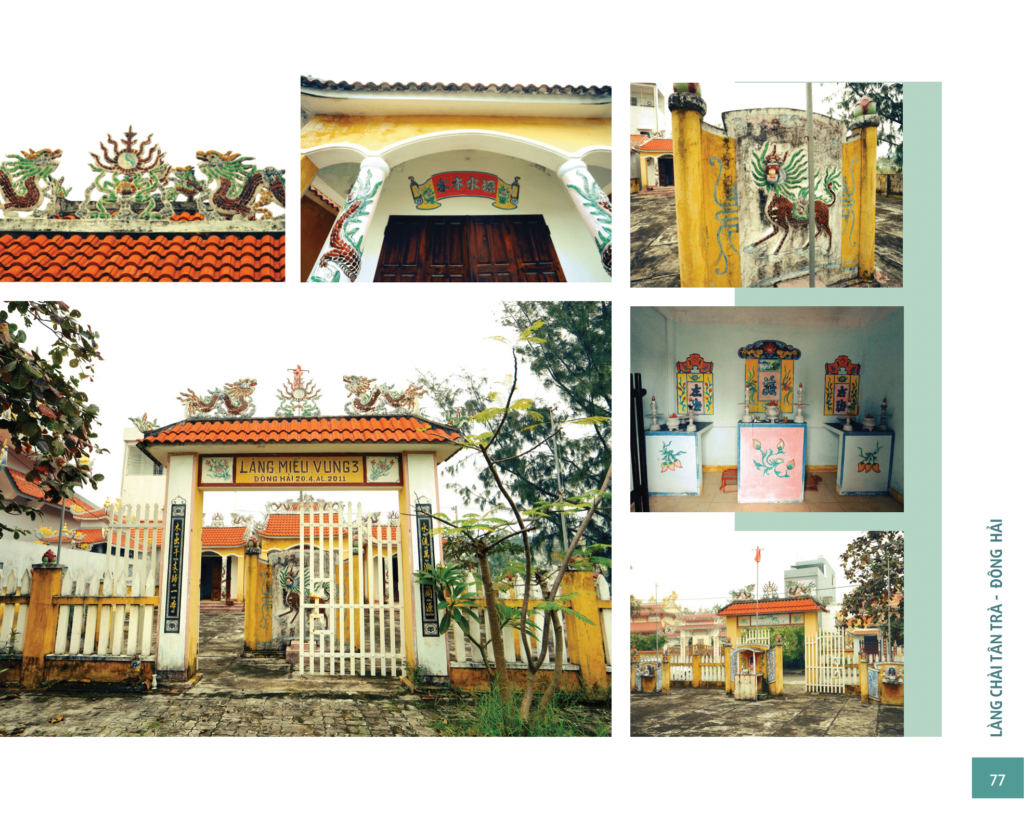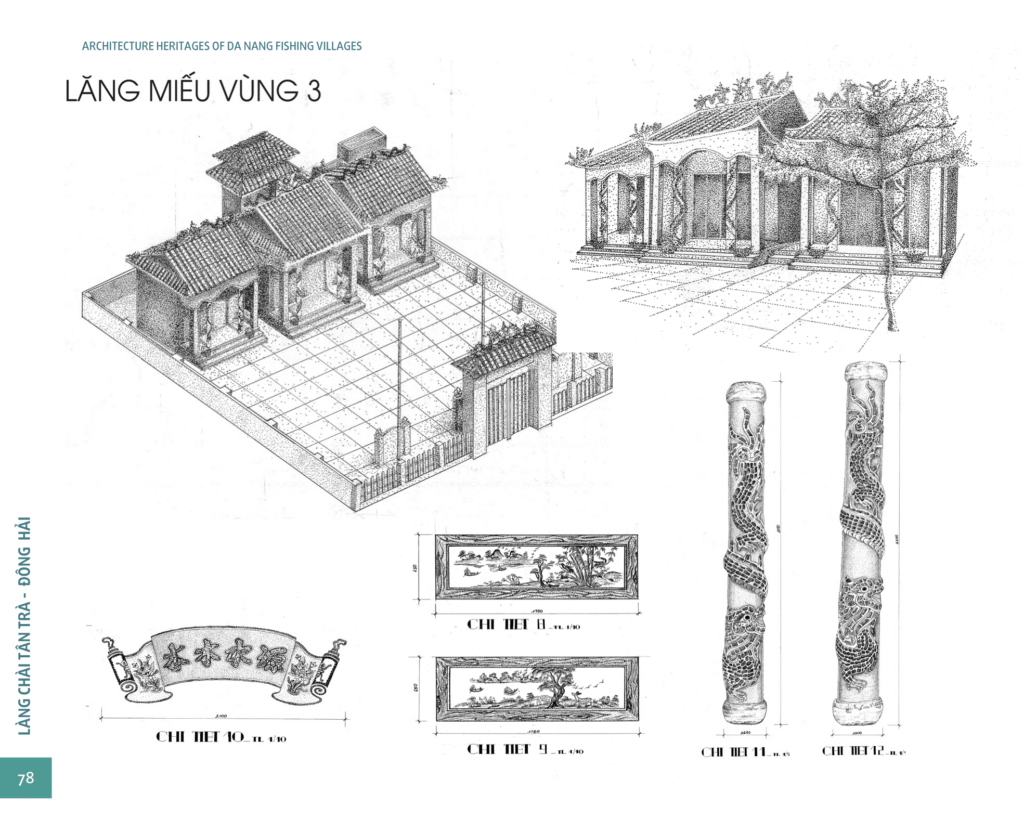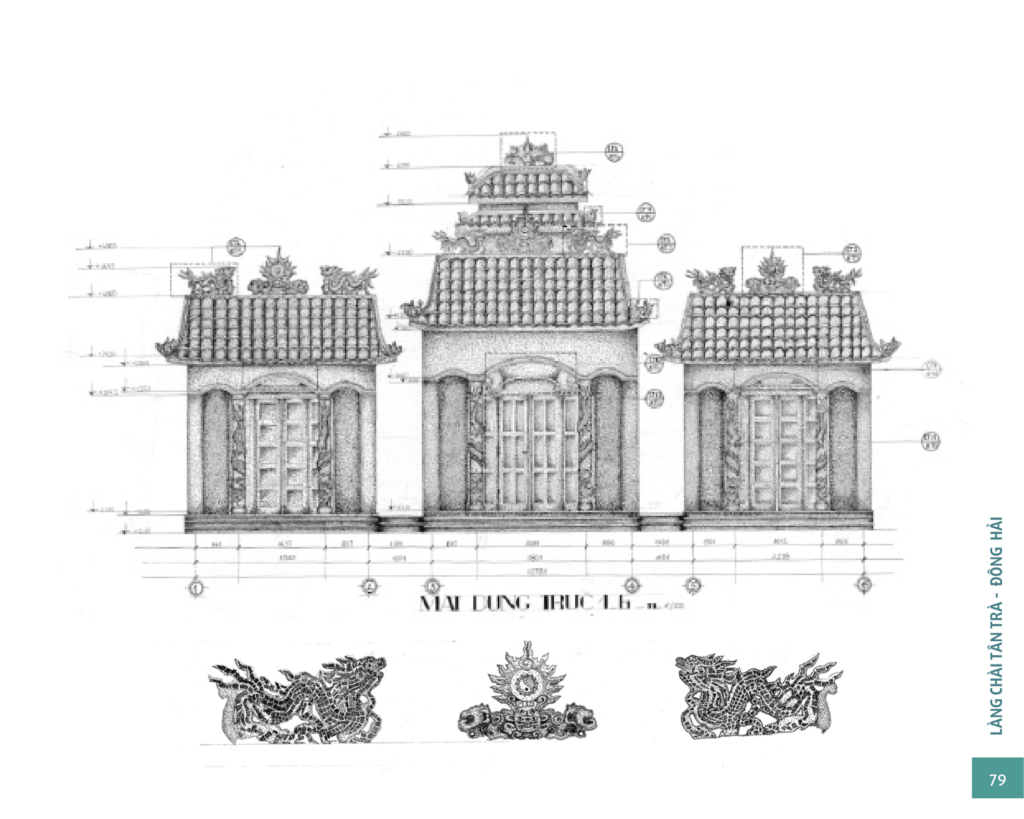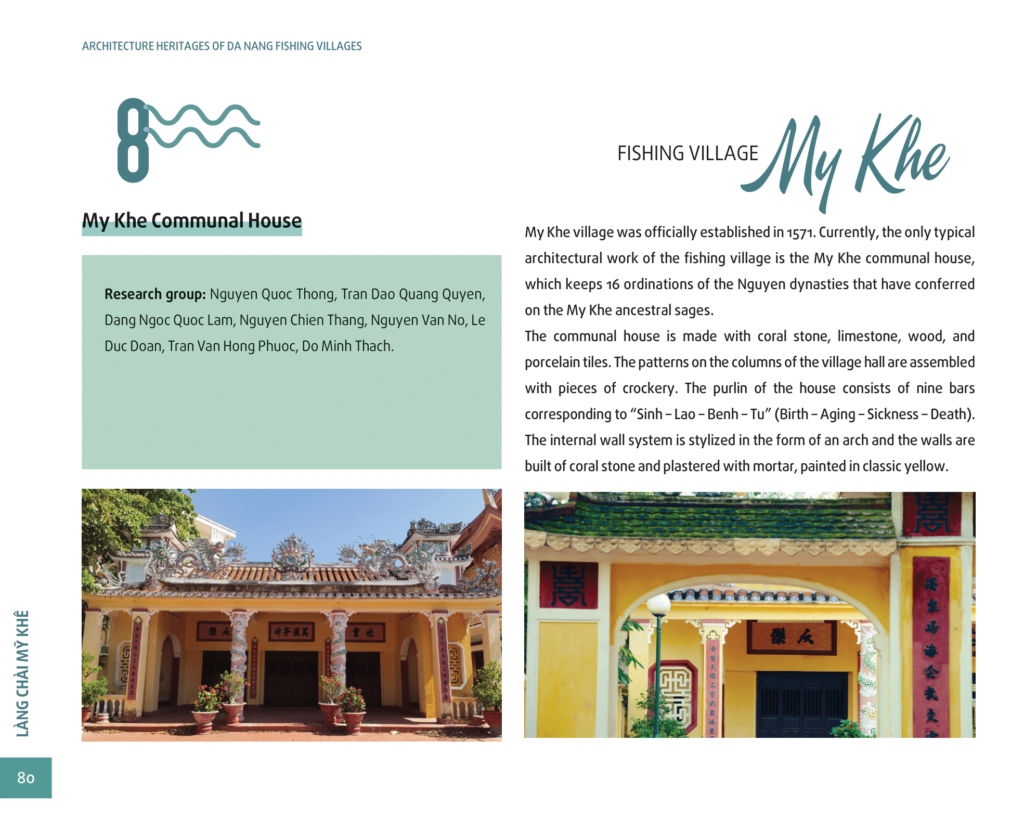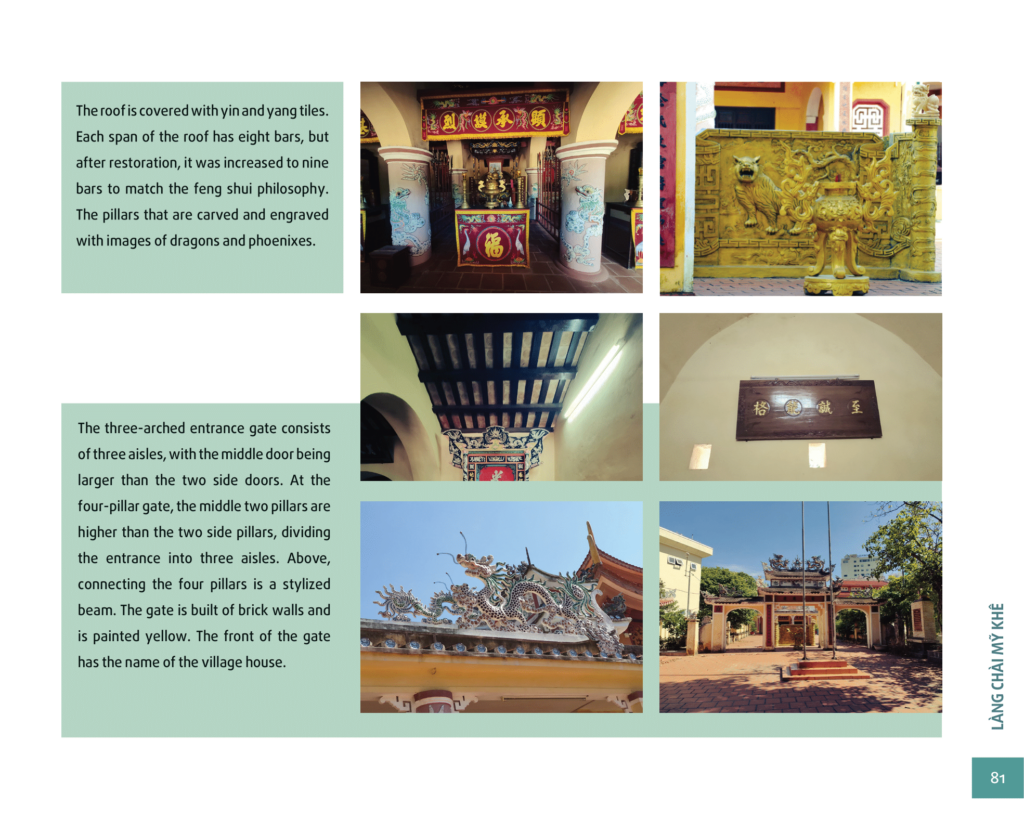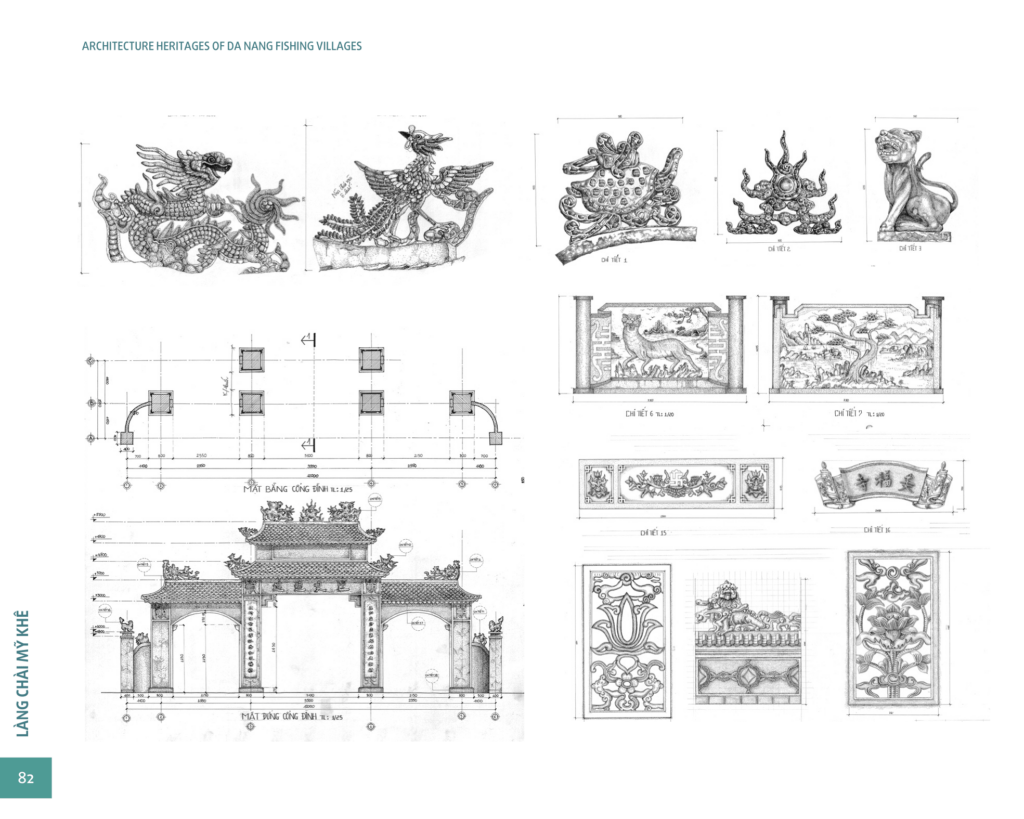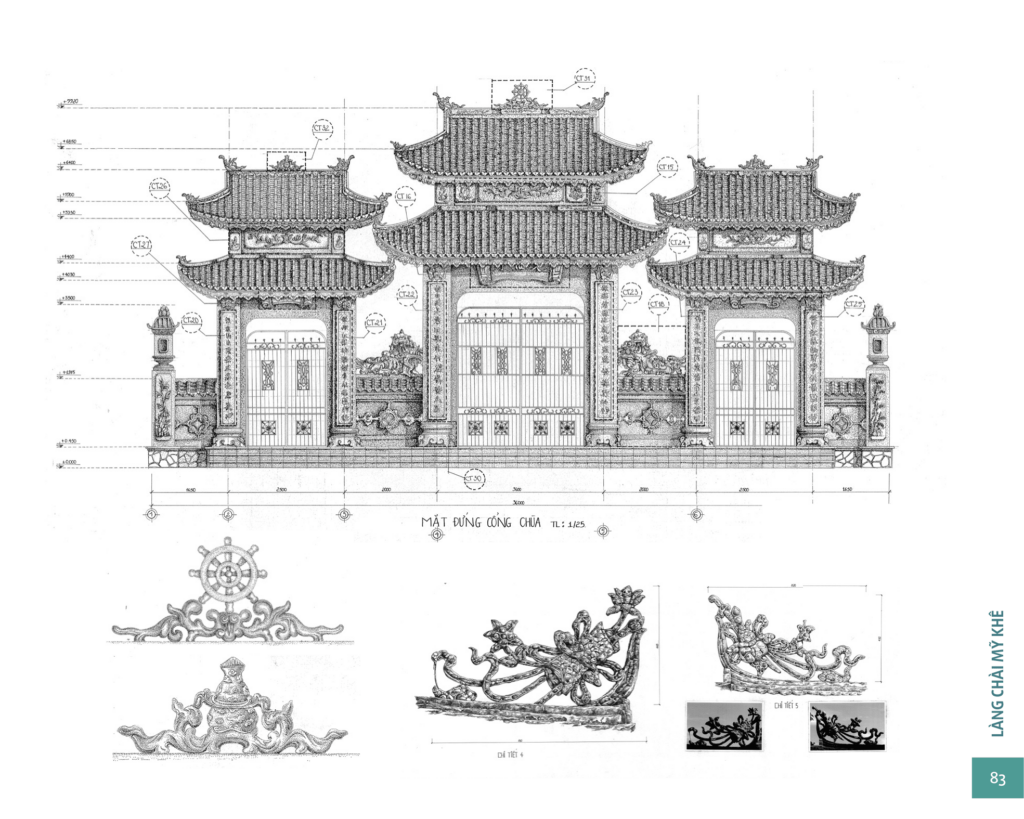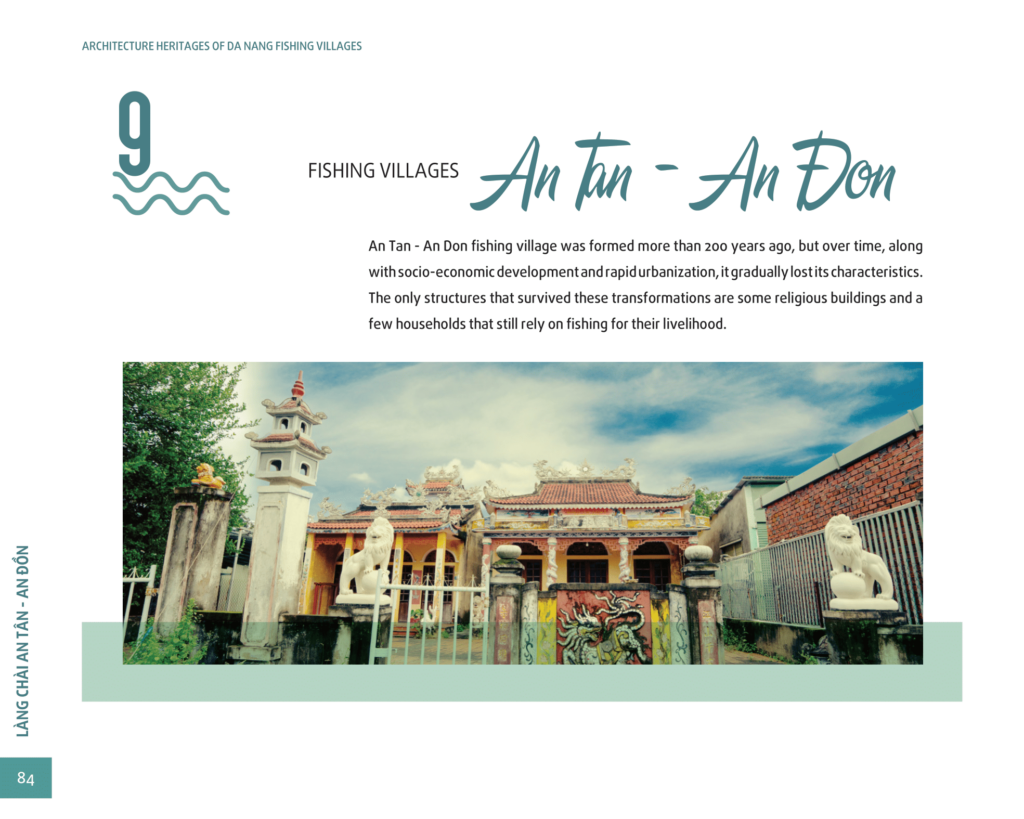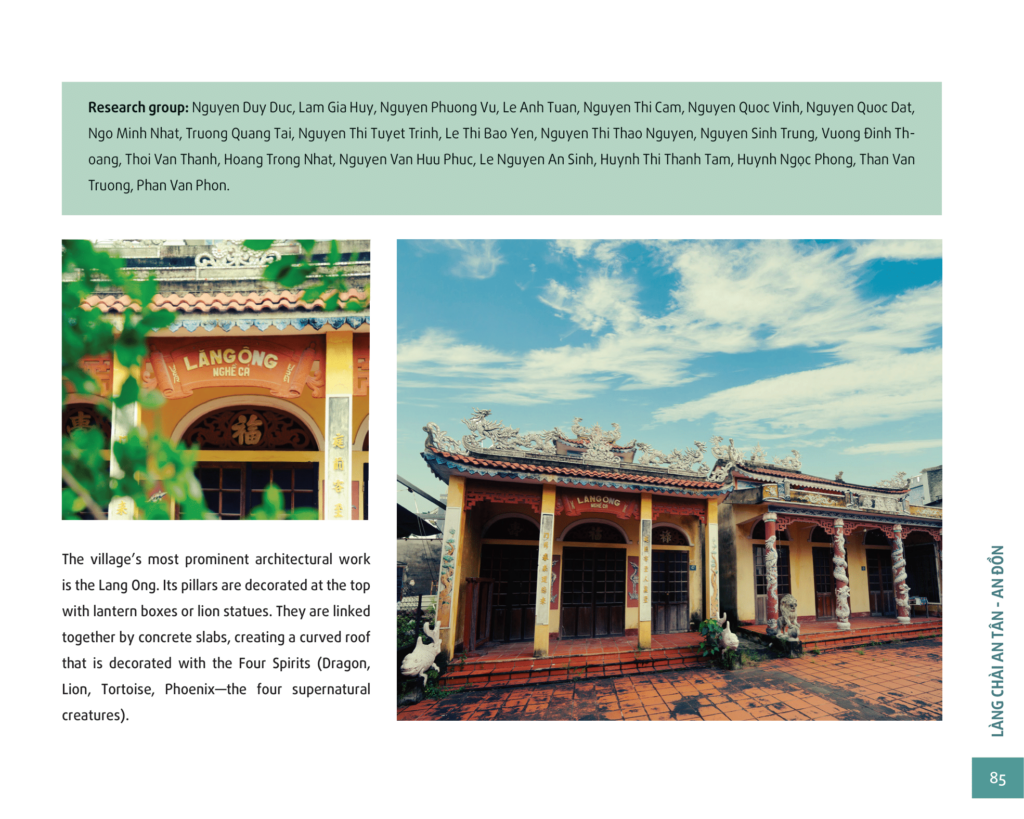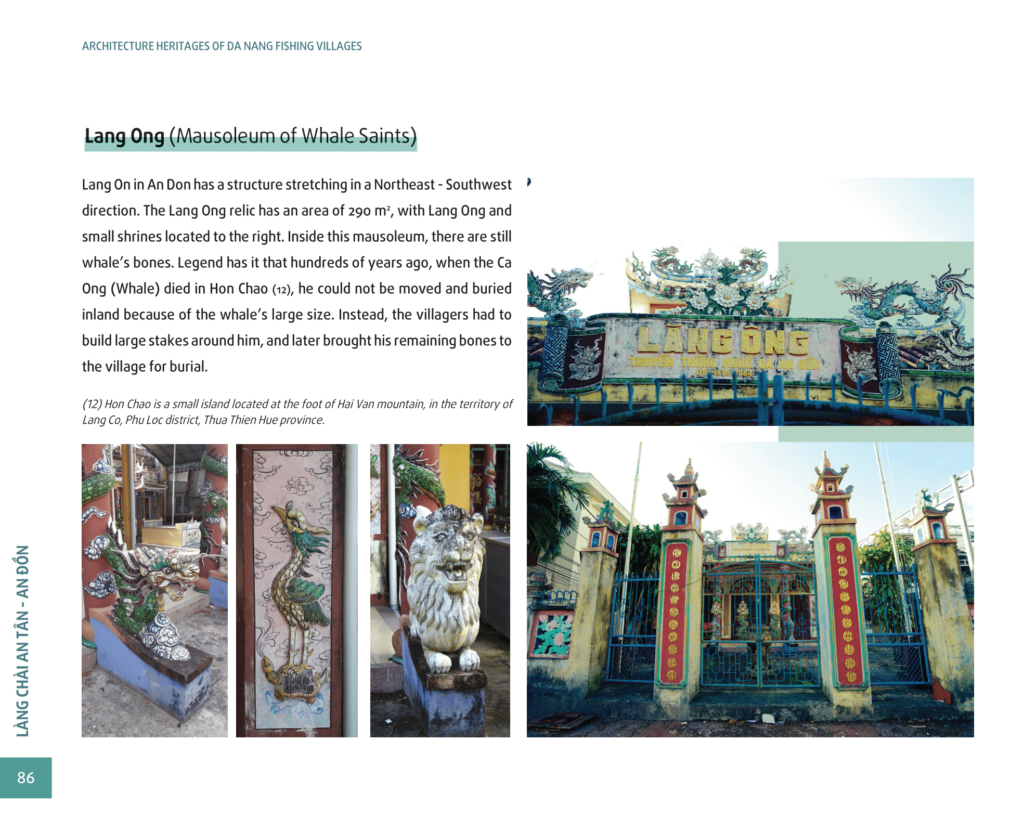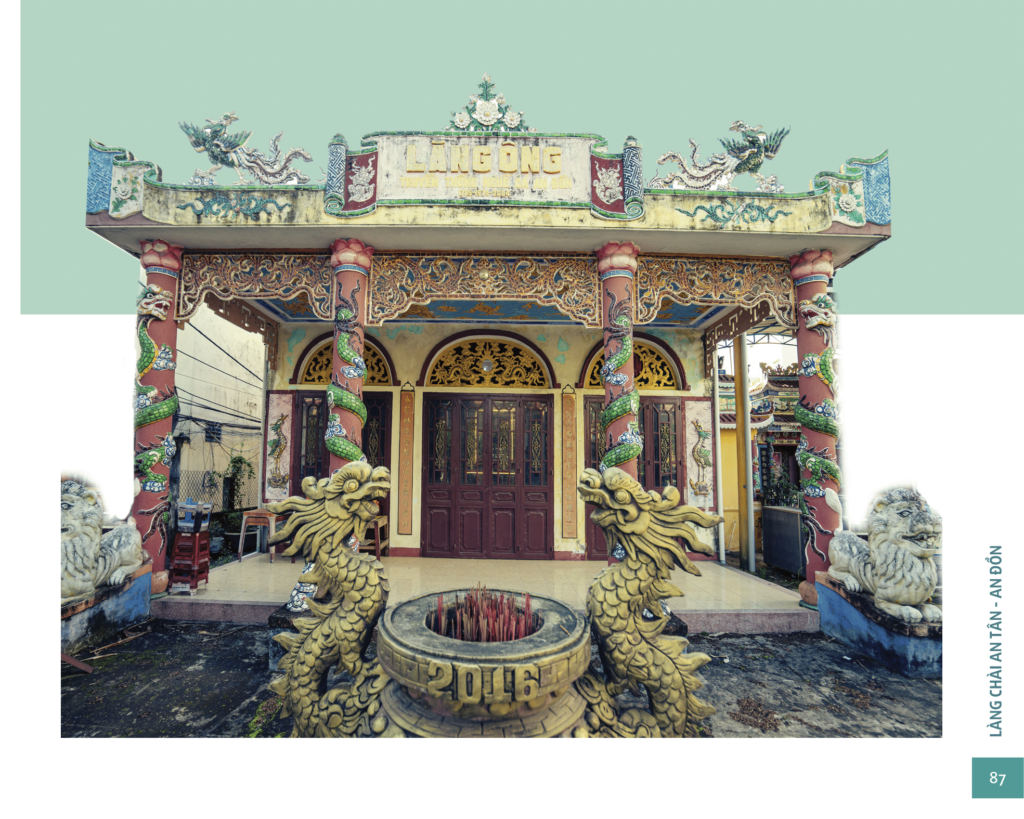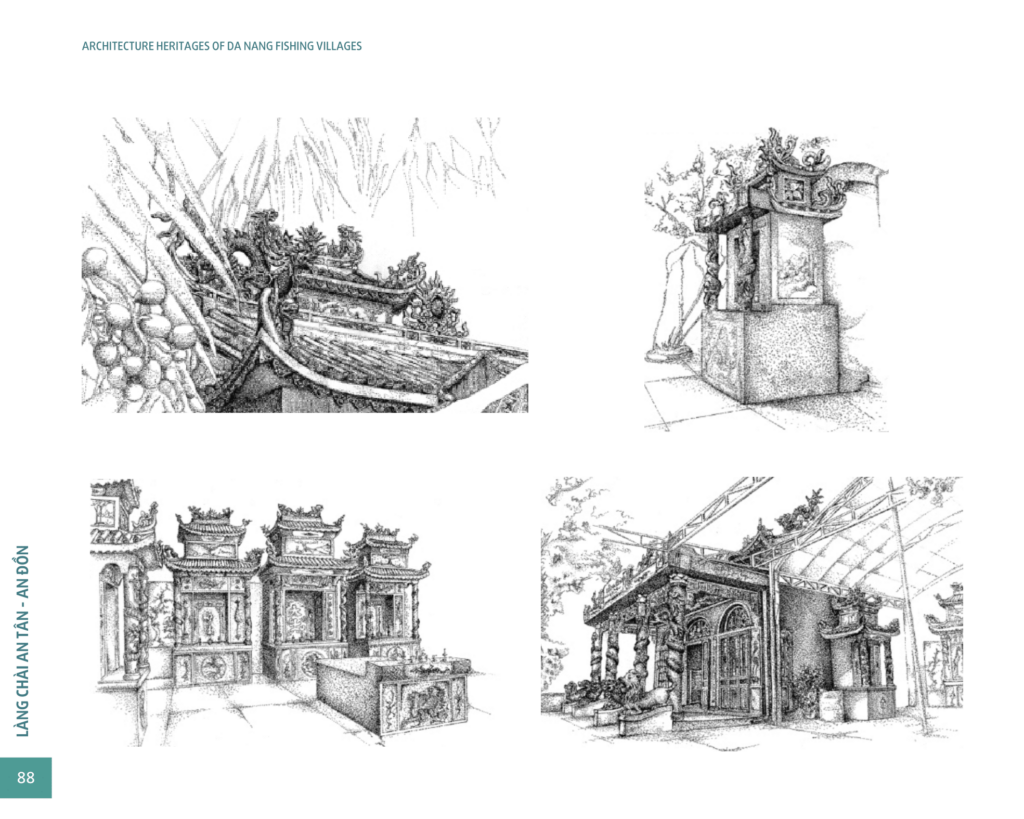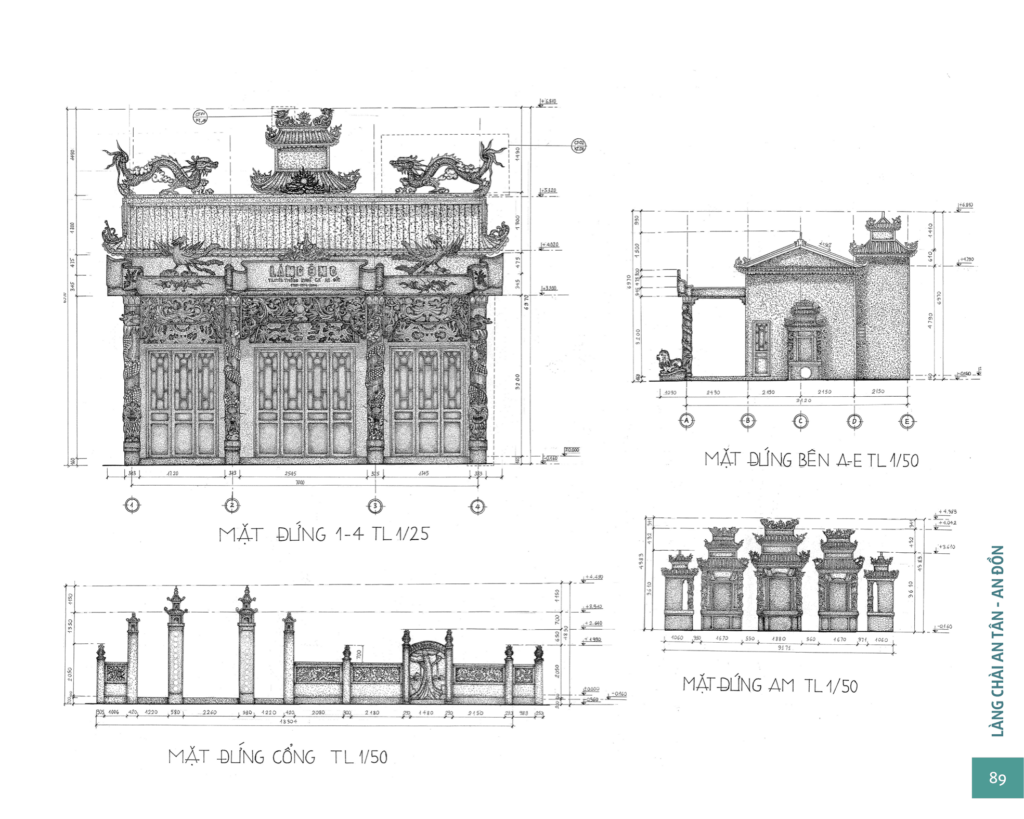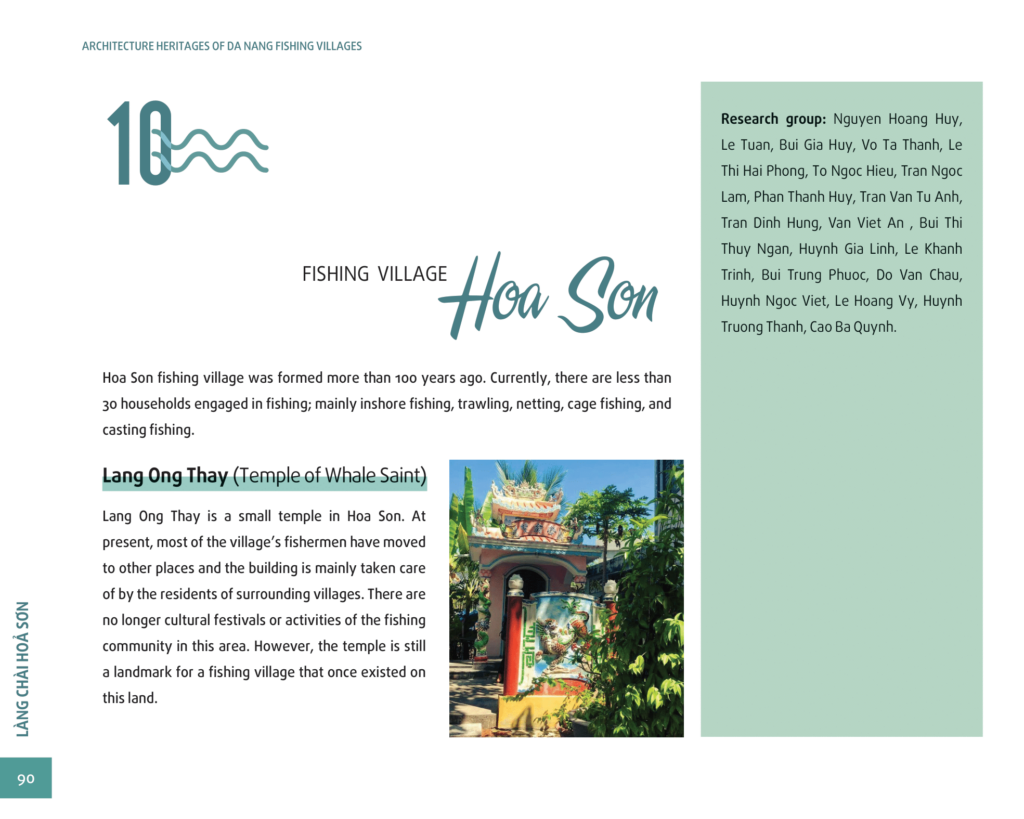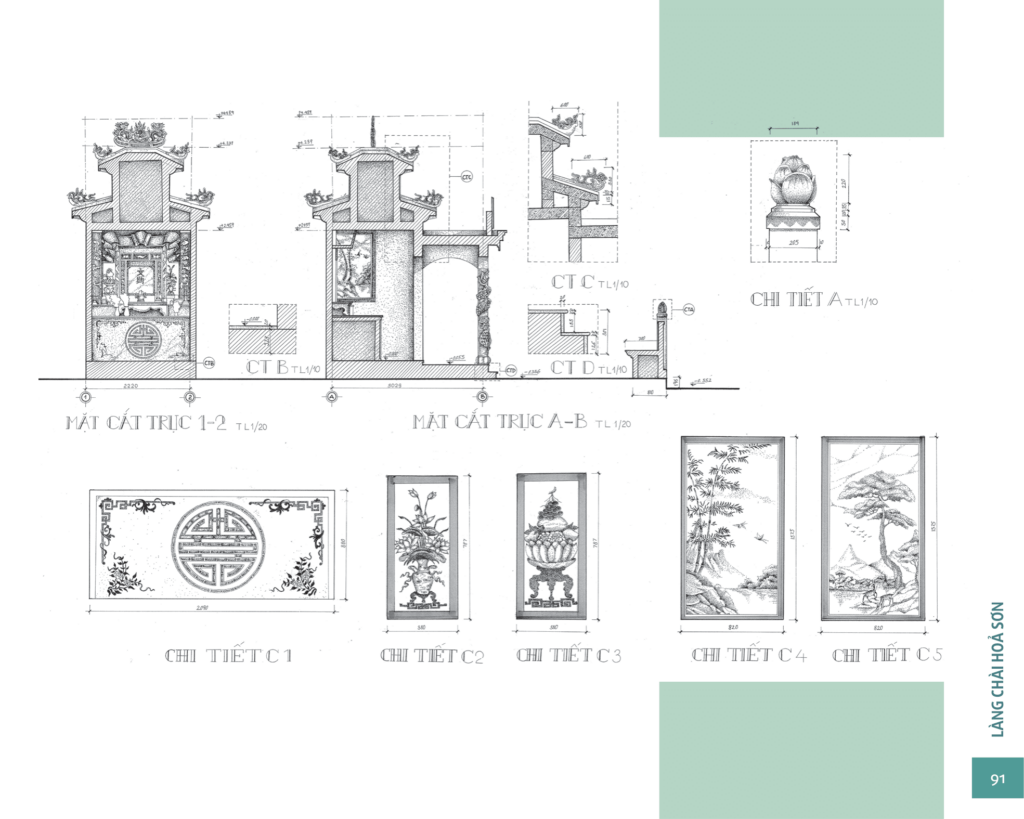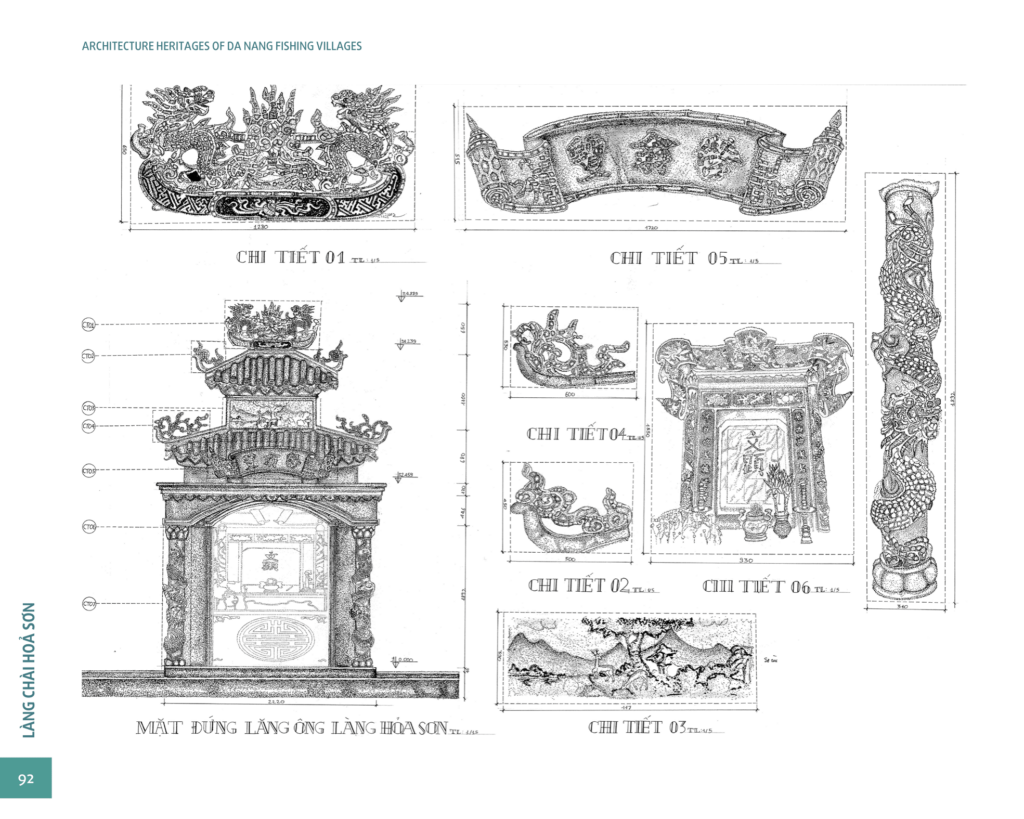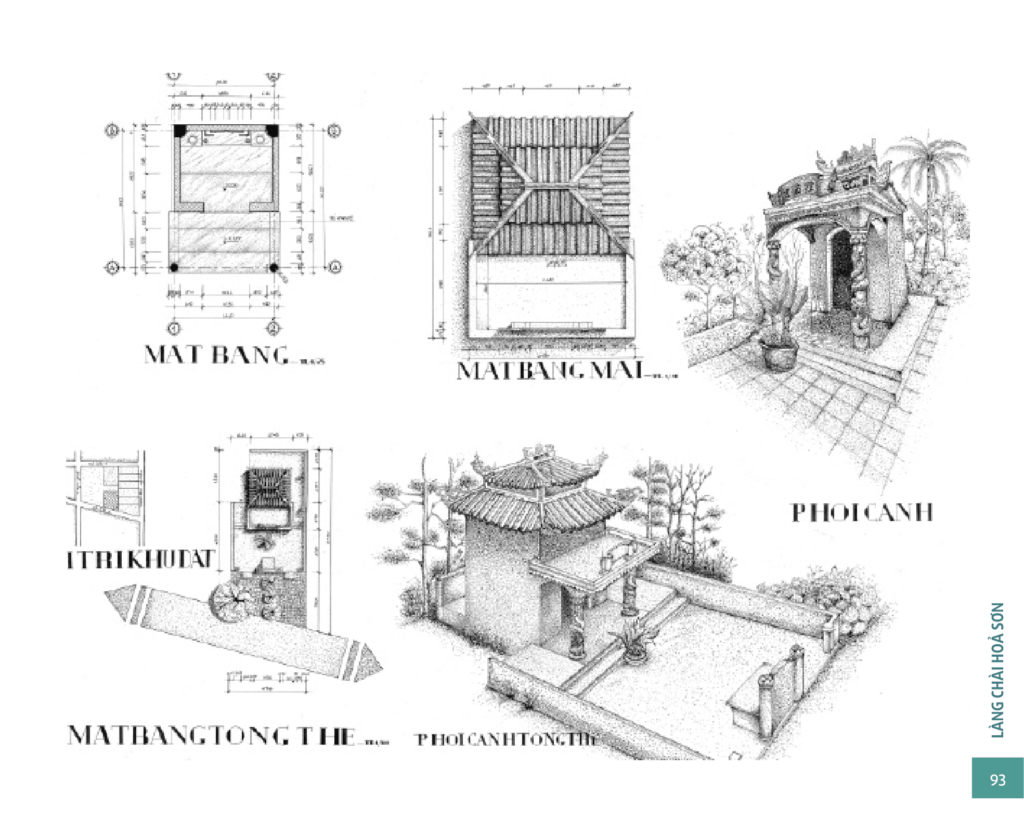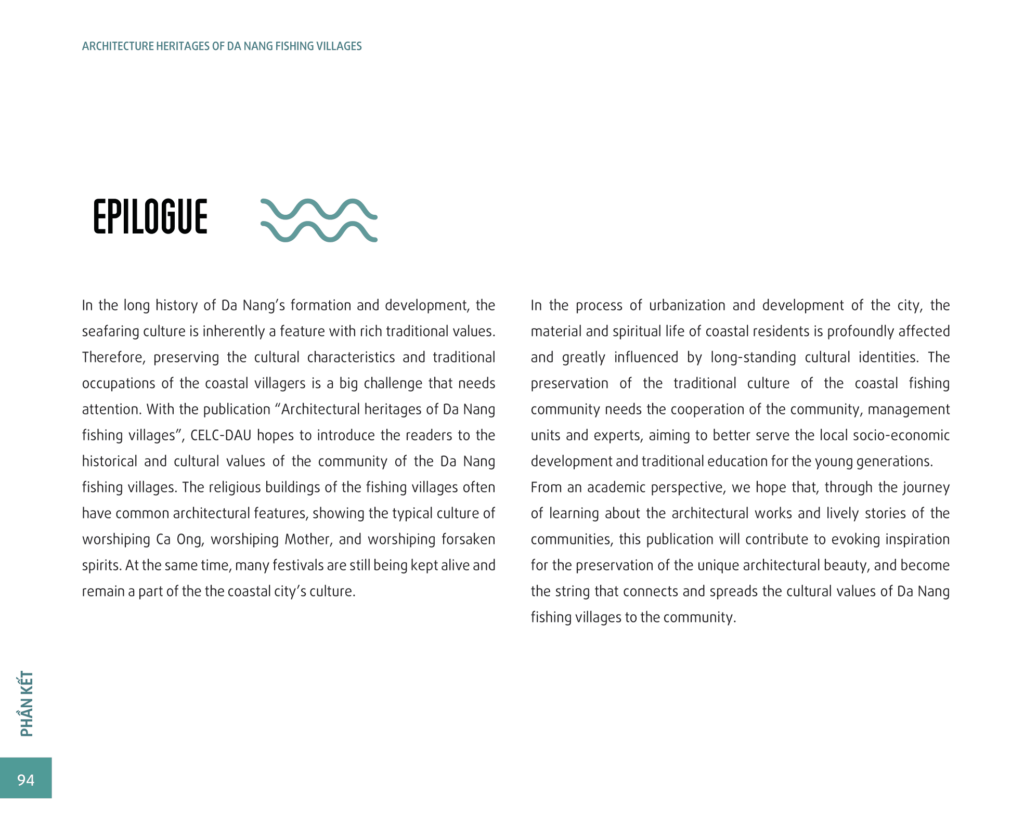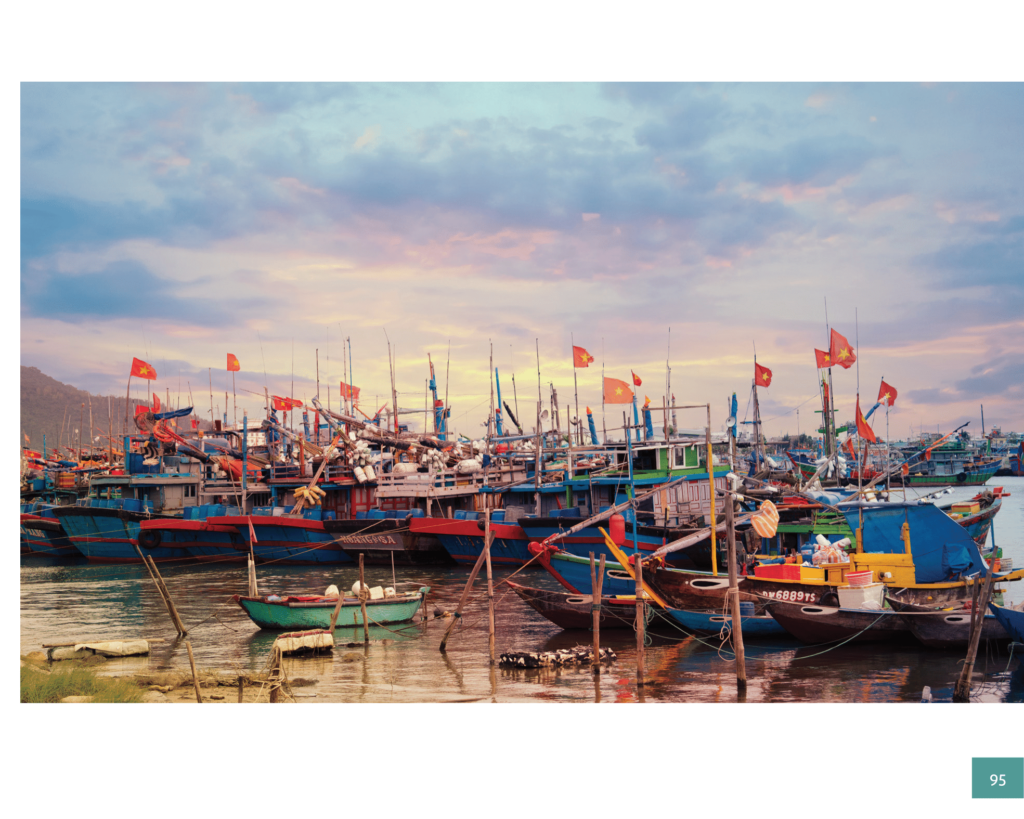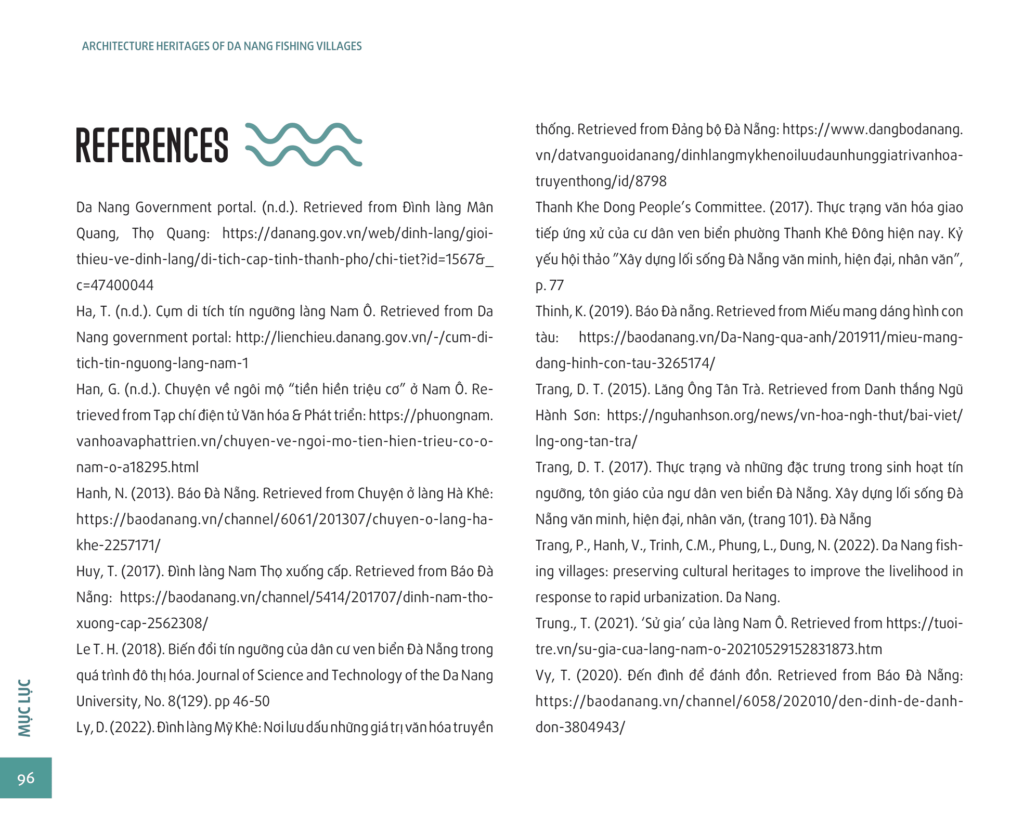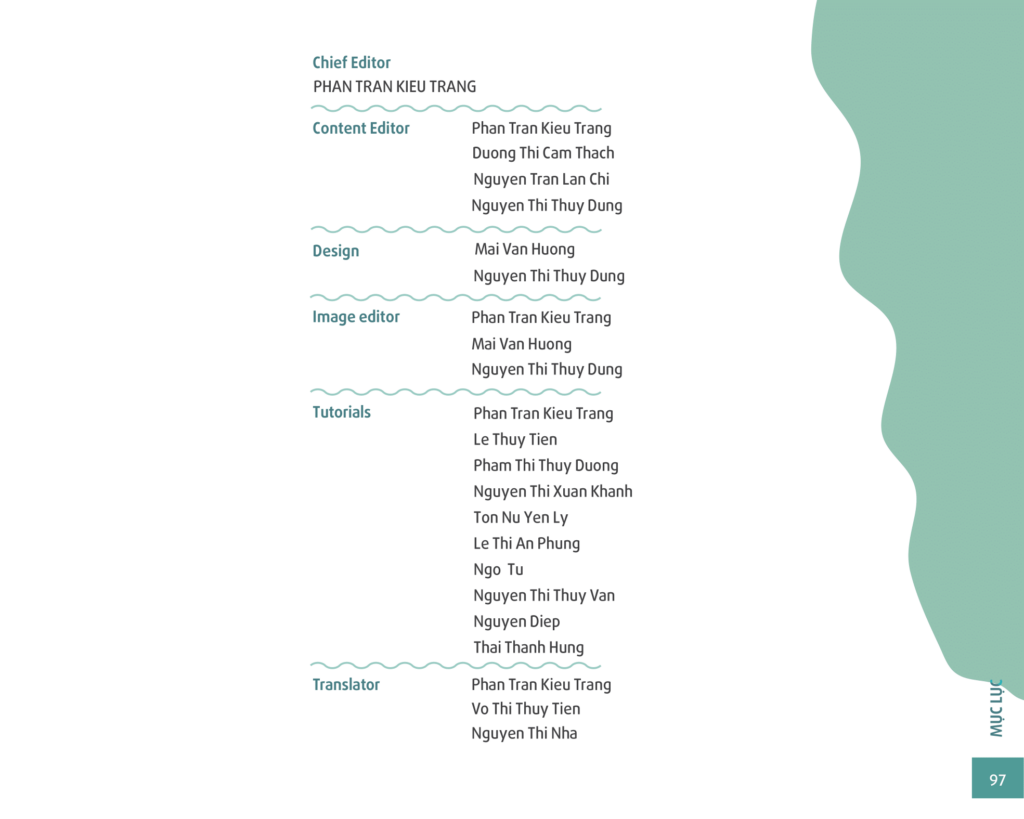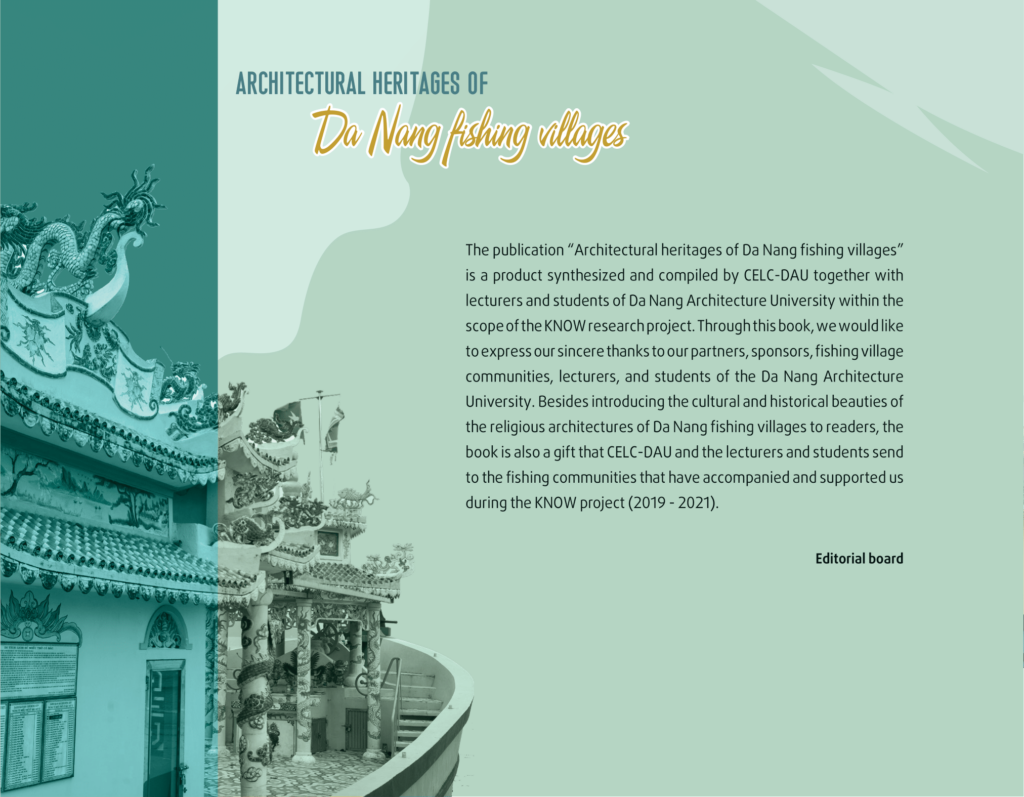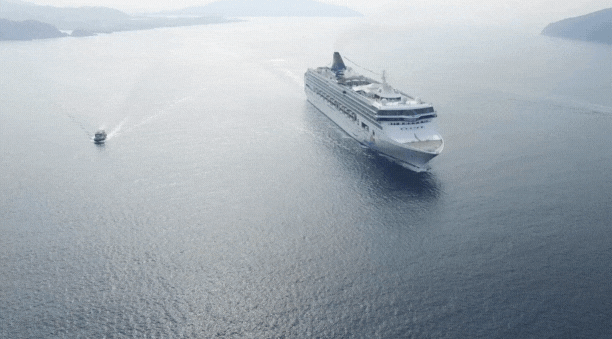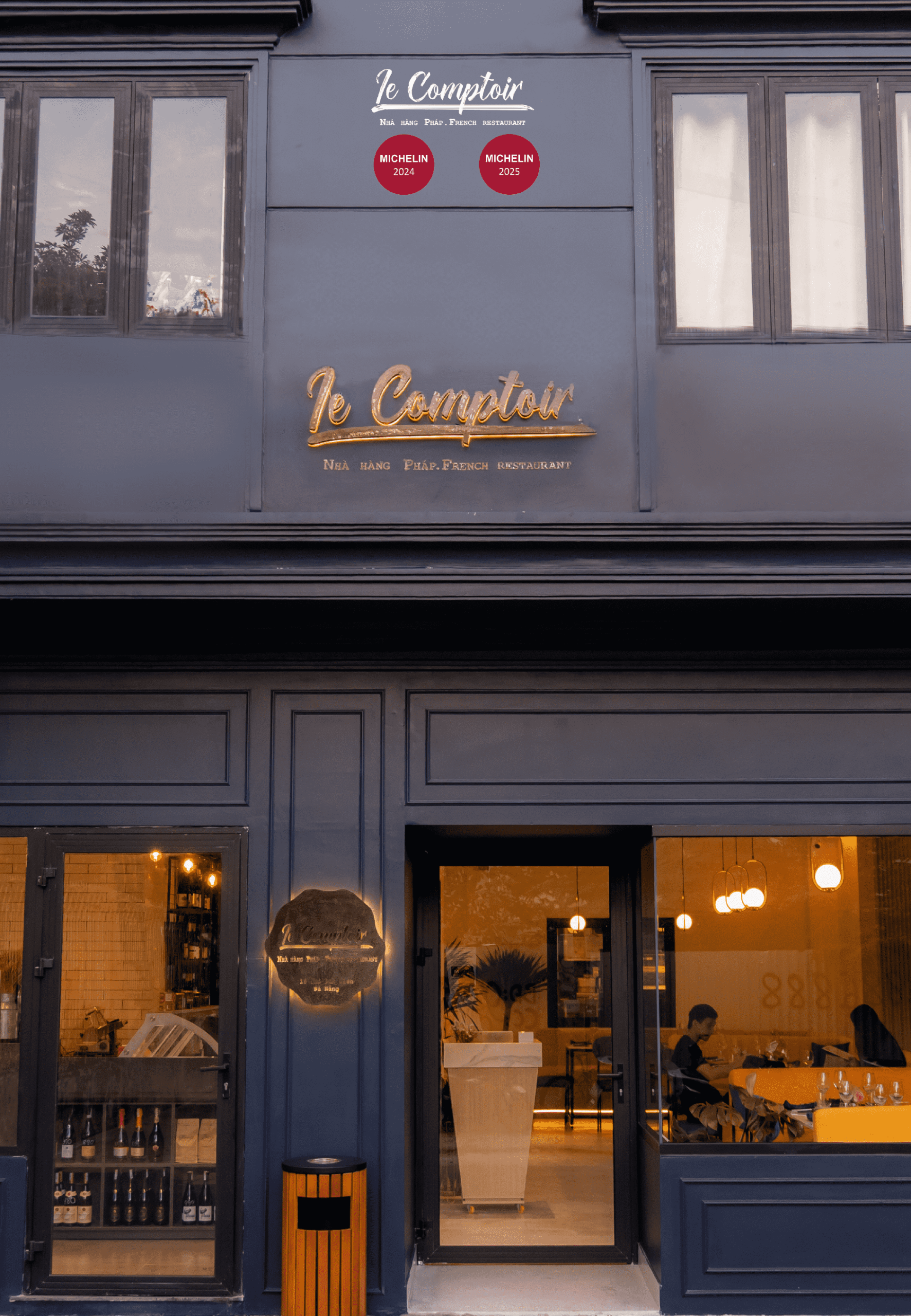ARCHITECTURAL HERITAGES OF Da Nang fishing villages – The project is part of the Knowledge in Action for Urban Equality (KNOW) Programme. KNOW is funded by UKRI through the Global Challenges Research Fund GROW Call, and led by The Bartlett Development Planning Unit
Da Nang is famous for its more than 70 kilometers of long and beautiful coastline, with a 15,000 km2 fishing ground and fishing villages that have existed for hundreds of years. However, recently, rapid urbanization and the expansion of high-rise coastal buildings have resulted in drastic changes in the livelihoods and habitation of communities. Some fishing villages have completely disappeared like My Khe, Tan Tra, Da Phuoc or are facing many challenges like Nam O, and Tho Quang. Many architectural works and temples are degraded or damaged. Within the fishing communities, the younger generation no longer clings to the sea, and the precious indigenous knowledge about the heritage of fishing villages is gradually receding into oblivion.
Realizing the cultural and historical values of the fishing villages, the Community Engagement Learning Center – Da Nang Architecture University (CELC-DAU) with the support of the Development Planning Unit, University College London (DPU, UCL) and the Asian Coalition for Housing Rights (ACHR) carried out the project “Da Nang Fishing Villages“:
Preserving cultural heritages to improve livelihoods in response to rapid “urbanisation” within the Knowledge in Action for Urban Equality (KNOW) project. The objective of the study is to build a database of fishing villages, focusing on architectural, cultural, and historical elements that are disappearing in the process of urbanization. The project aims to connect communities and promote the strengths of fishing villages to create more sustainable livelihoods in the context of urban development, highlighting the importance of studying the evolution of fishing villages to contribute significantly to the development orientation of the city.
The non-academic publication “Architectural heritages of Da Nang fishing villages” is a product synthesized and compiled by CELC-DAU together with lecturers and students of Da Nang Architecture University within the scope of the KNOW research project. In this book, collected data on selected religious sites of fishing villages are documented through photos and technical drawings, and complemented with additional information about their history, restoration records, and assessments of their architectural value and landscape, focusing on four main types:
– Lang Ong (Mausoleum of Whale Saints): the place to worship the Whales, which are considered the Saints saving fishermen’s lives in storms and disasters at sea
– Mieu Ba (Temple of Holy Mother): the place to worship “Holy Mother” who governs the land, brings peace and fortune to people, and is associated with the notion of “Mother Earth”.
– Dinh Co Hon (Temple of Homeless Souls): a place to worship the homeless, martyrs, or those who died at sea.
– Village communal house: the place to worship the village’s ancestors.
There are also other works such as valuable pagodas in some villages. In general, most of the buildings exhibit similar elements of the traditional architecture of Central Vietnam, with three compartments and two “wings” (3 gian 2 chai), yin and yang tiles with dragons, and phoenixes motifs on the roof. However, each building has its own characteristics depending on the respective village’s features and stories contributed by its communities. Despite obstacles and interruptions due to the impact of the Covid-19 pandemic, the book represents a great effort of the lecturers and students of Da Nang Architecture University for the KNOW project.
Through this book, we would like to express our sincere thanks to our partners, sponsors, fishing village communities, lecturers, and students of the Da Nang Architecture University. Besides introducing the cultural and historical beauties of the religious architectures of Da Nang fishing villages to readers, the book is also a gift that CELC-DAU and the lecturers and students send to the fishing communities that have accompanied and supported us during the KNOW project (2019 – 2021).




